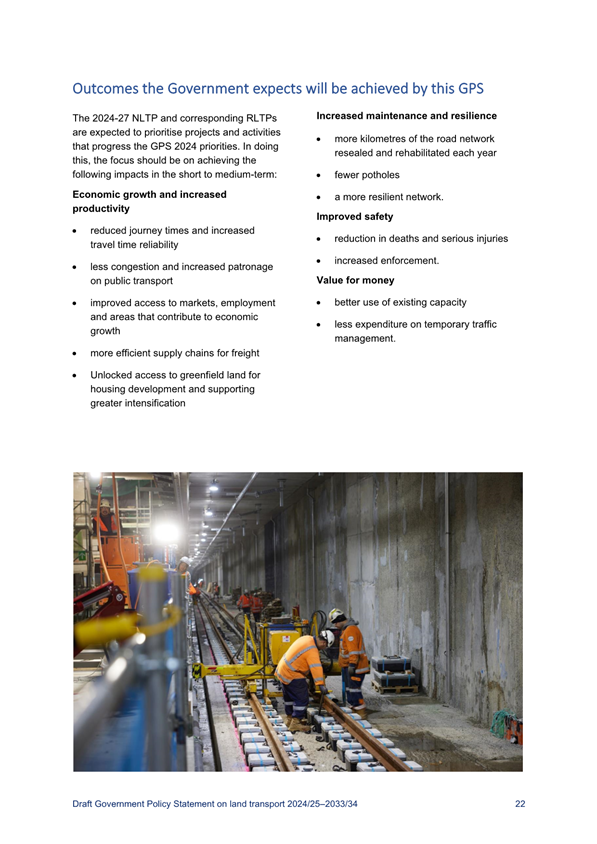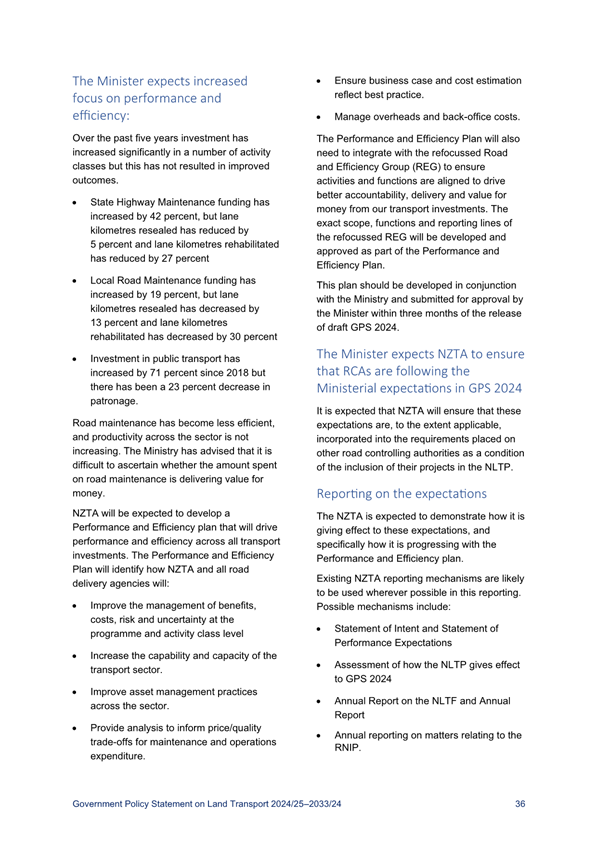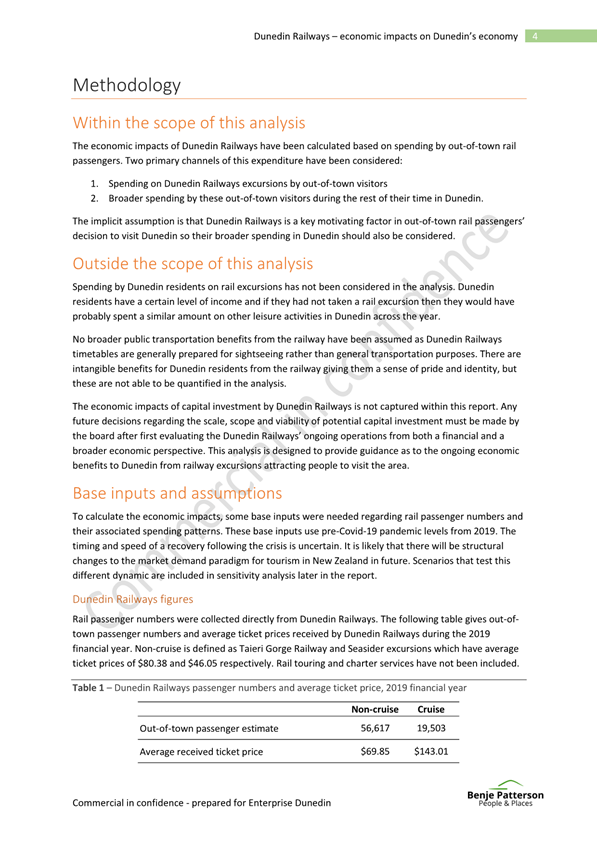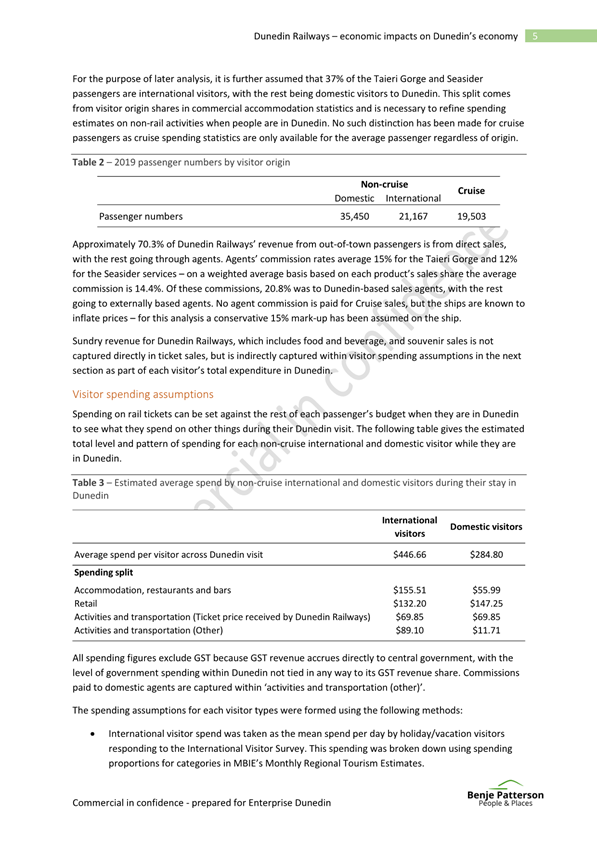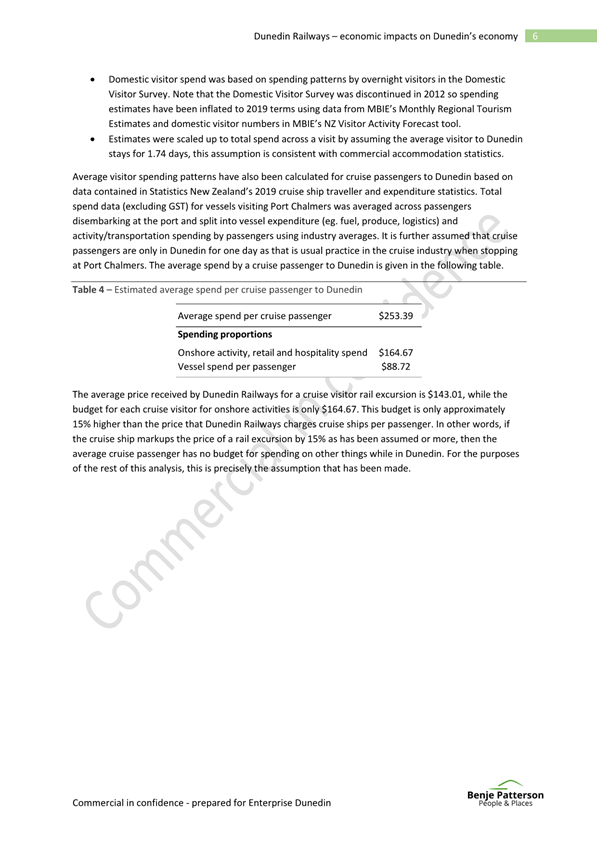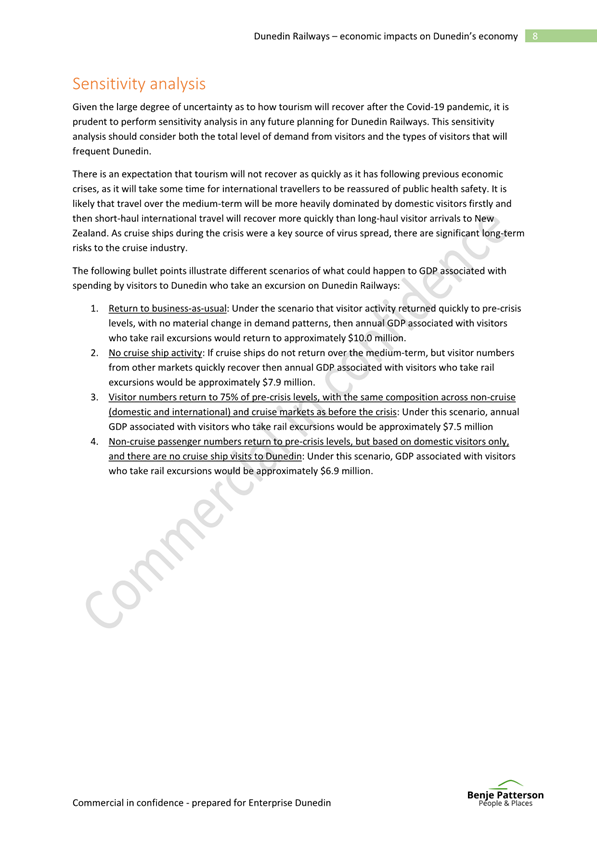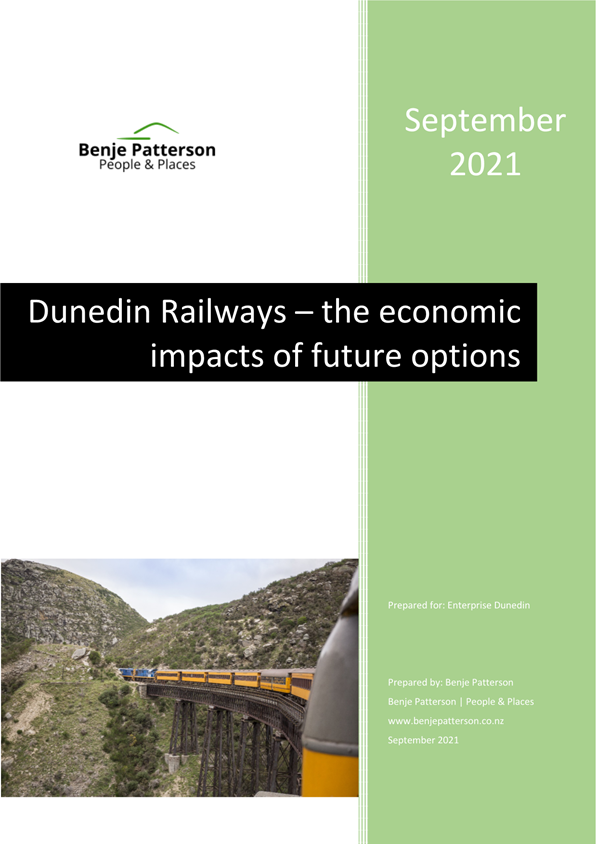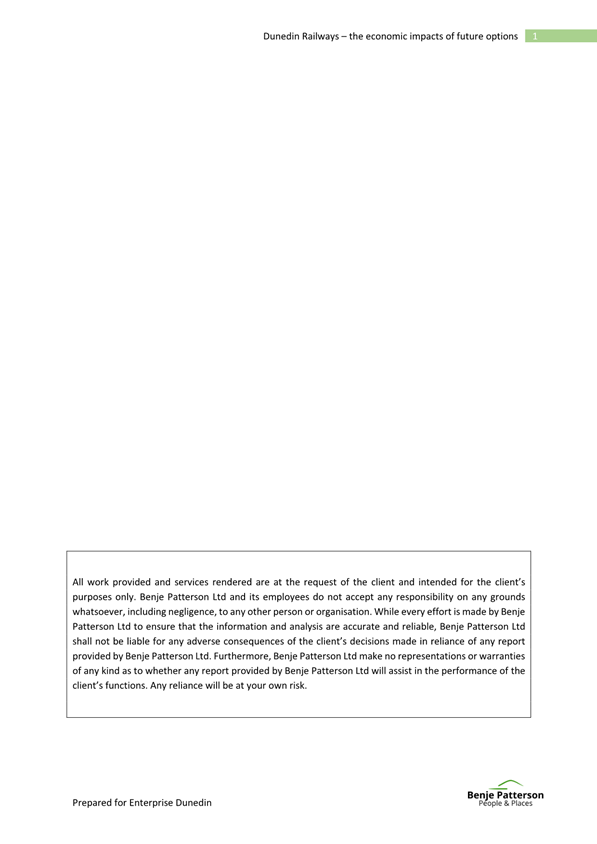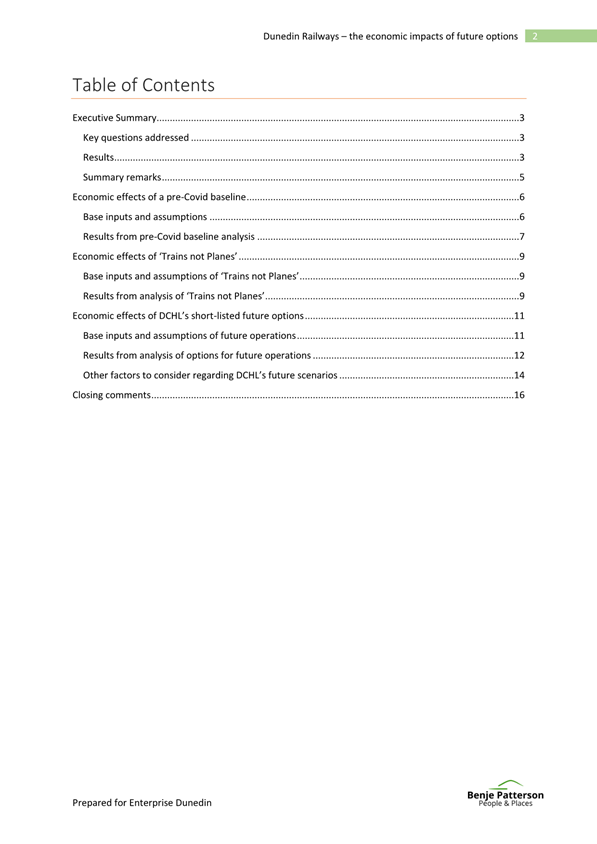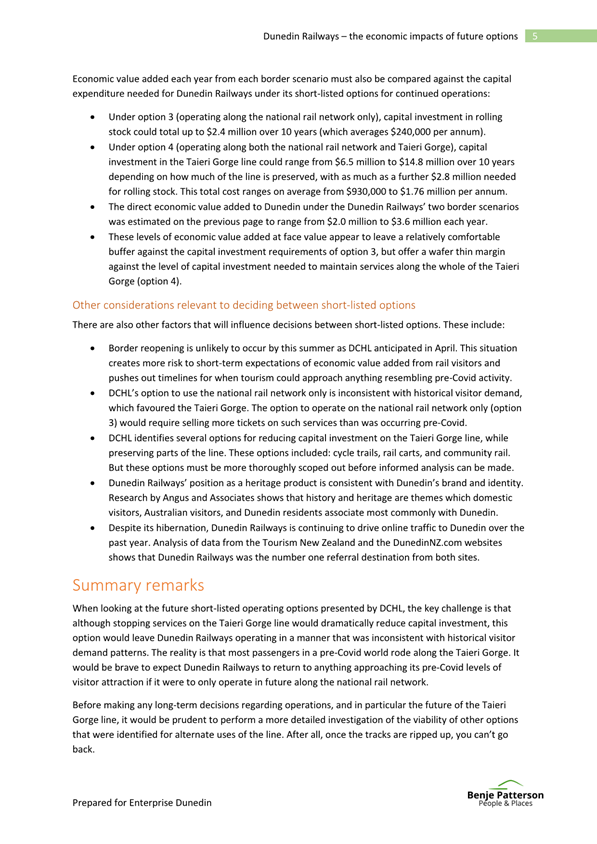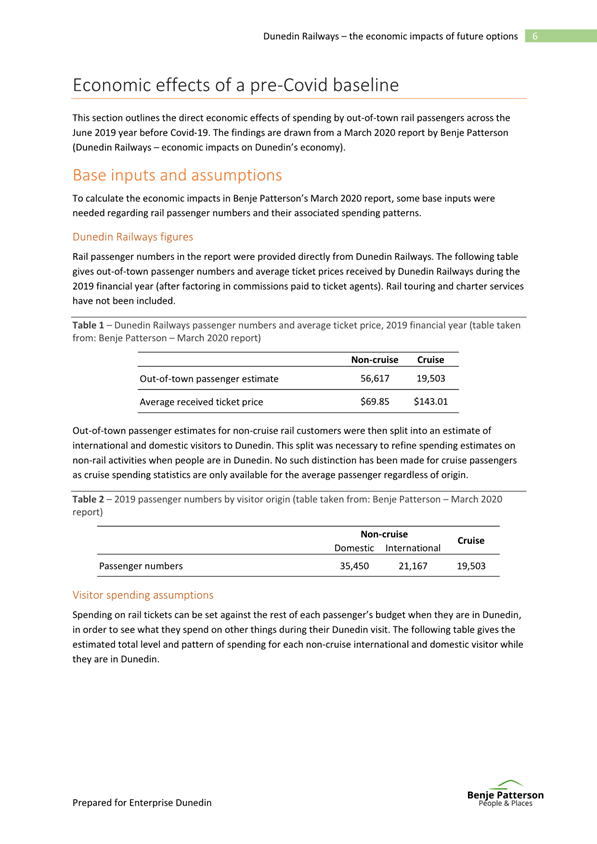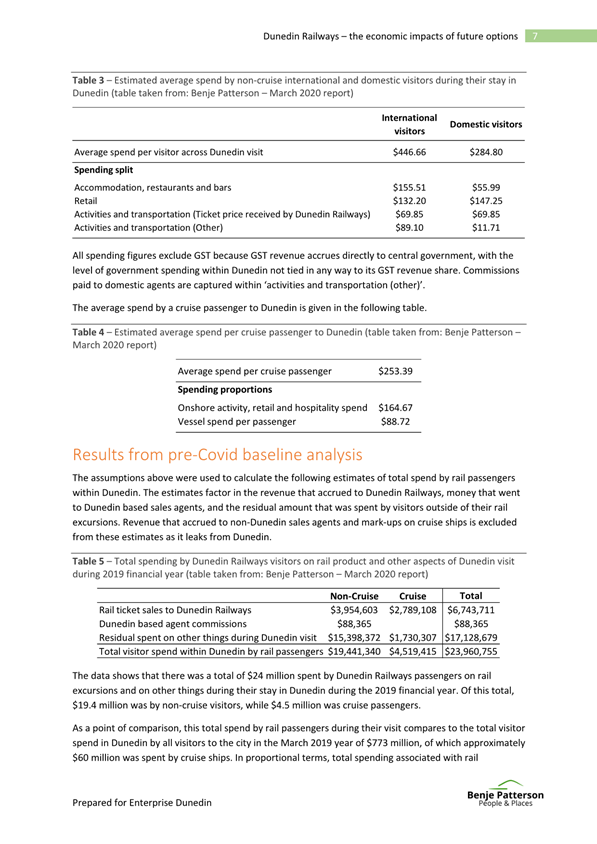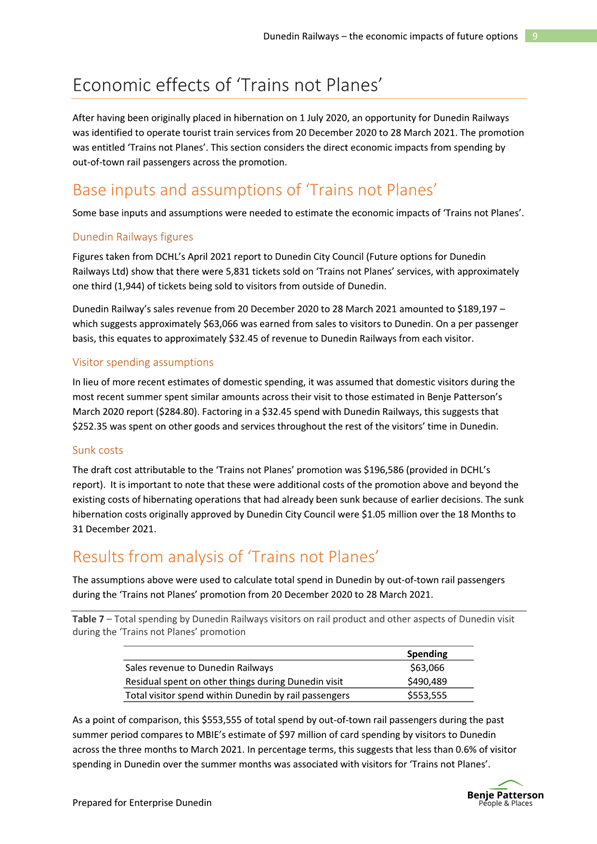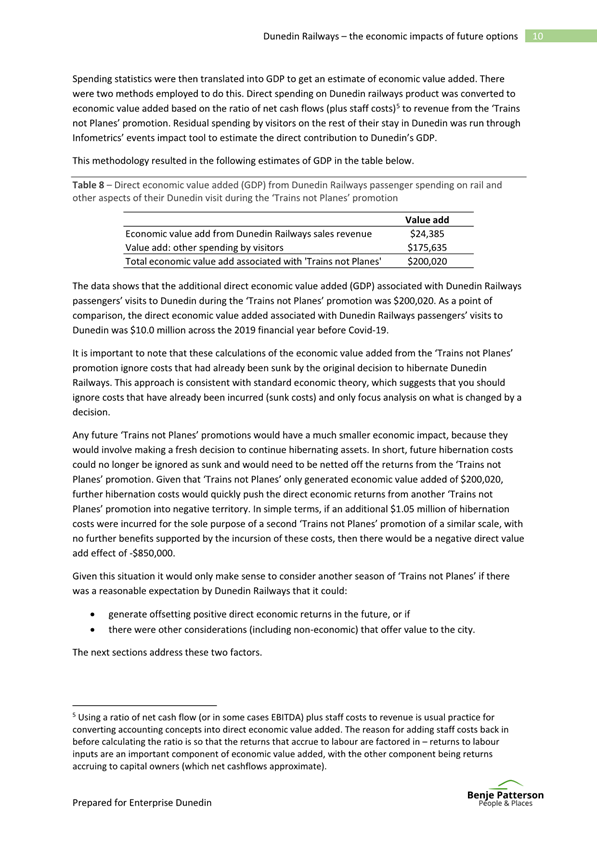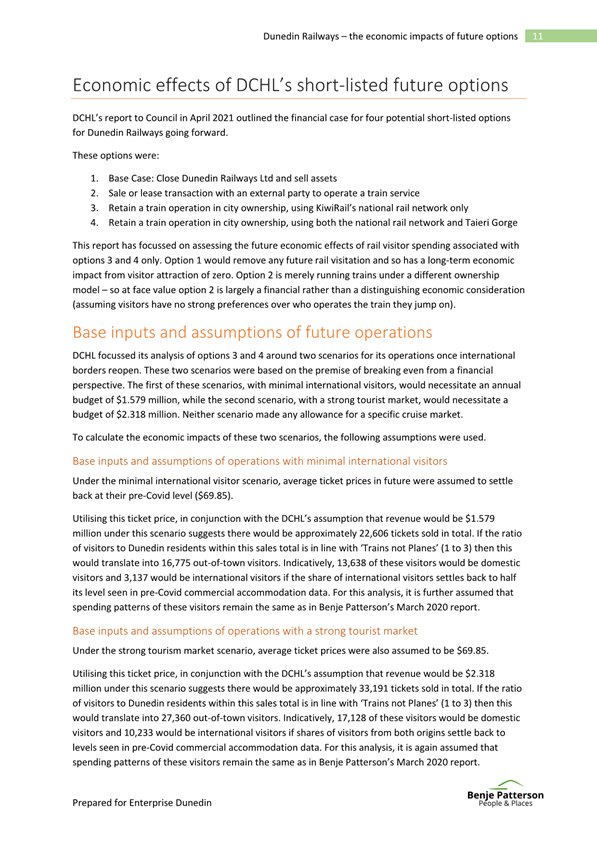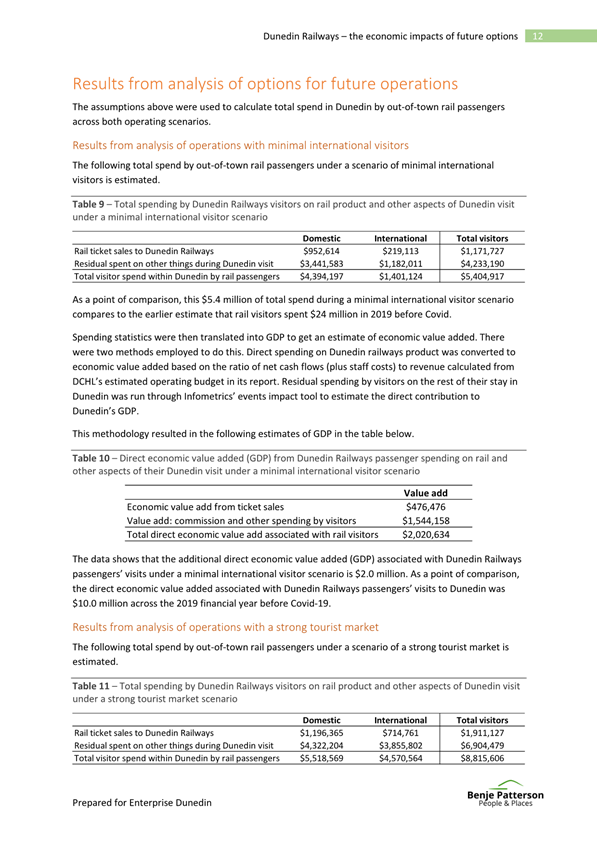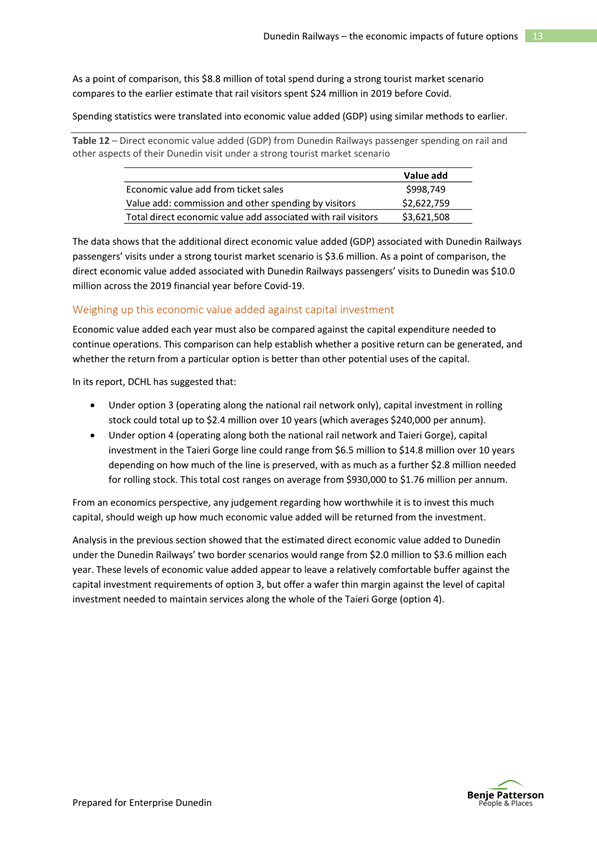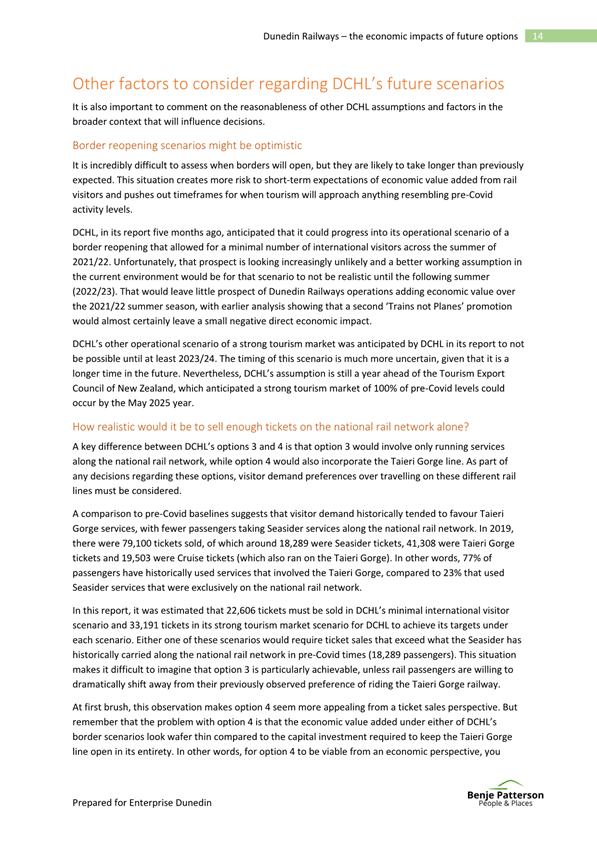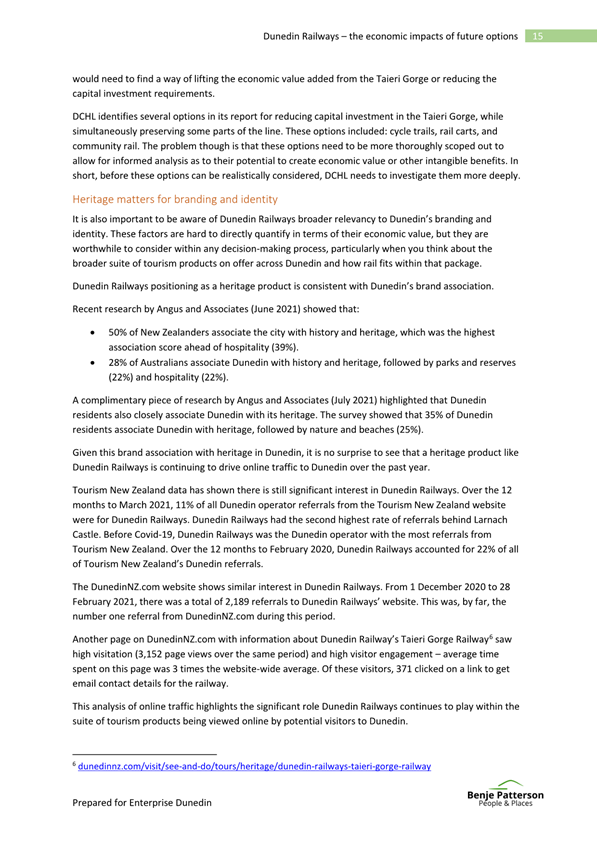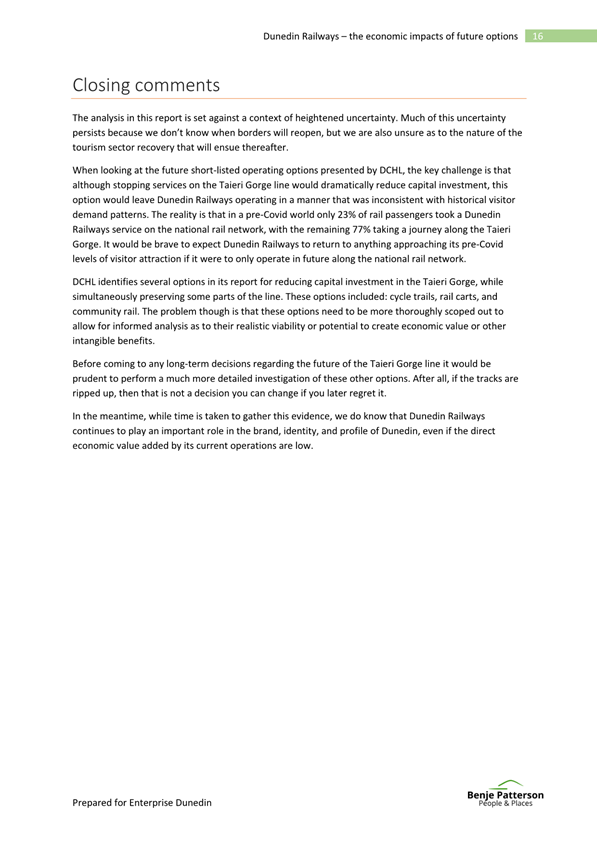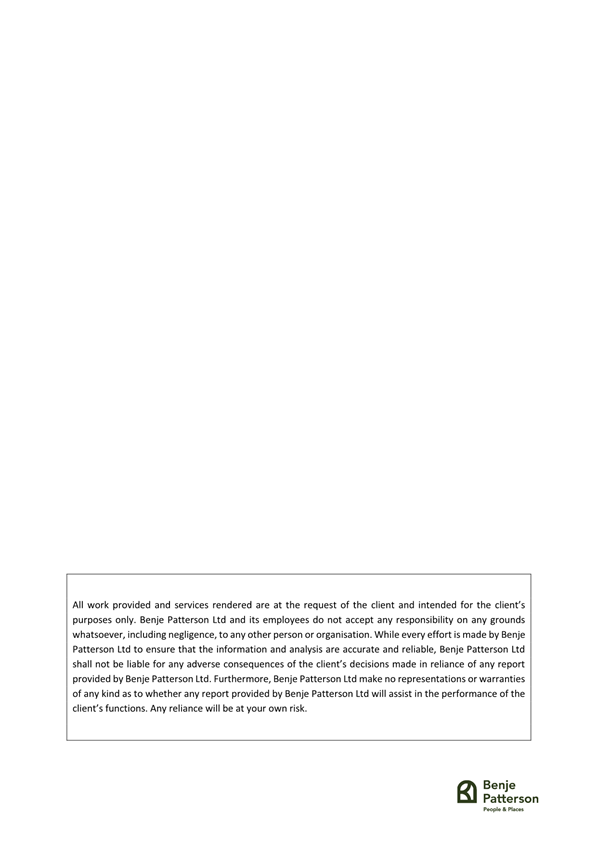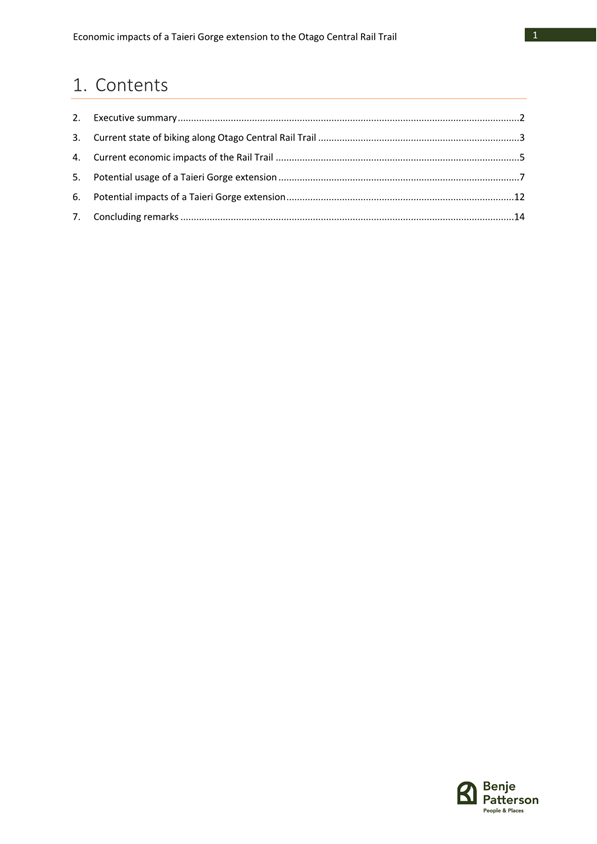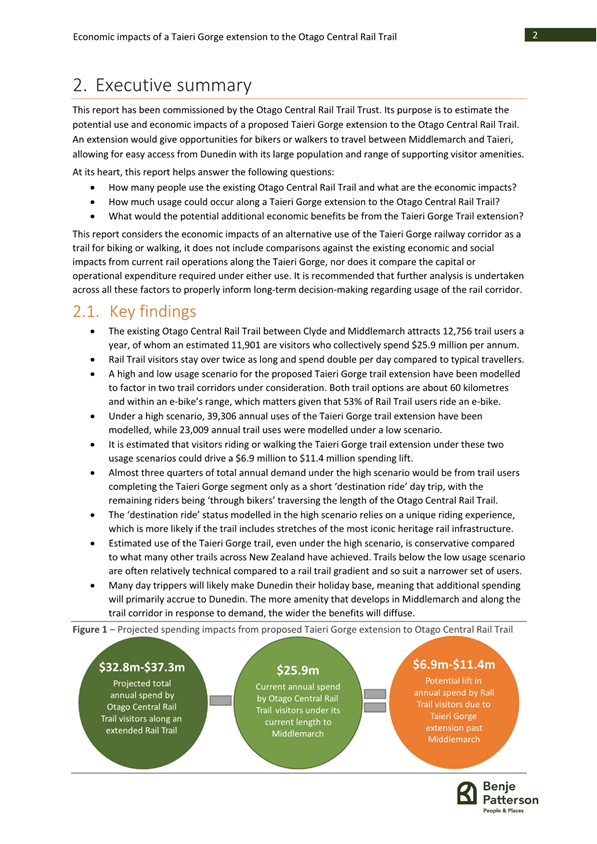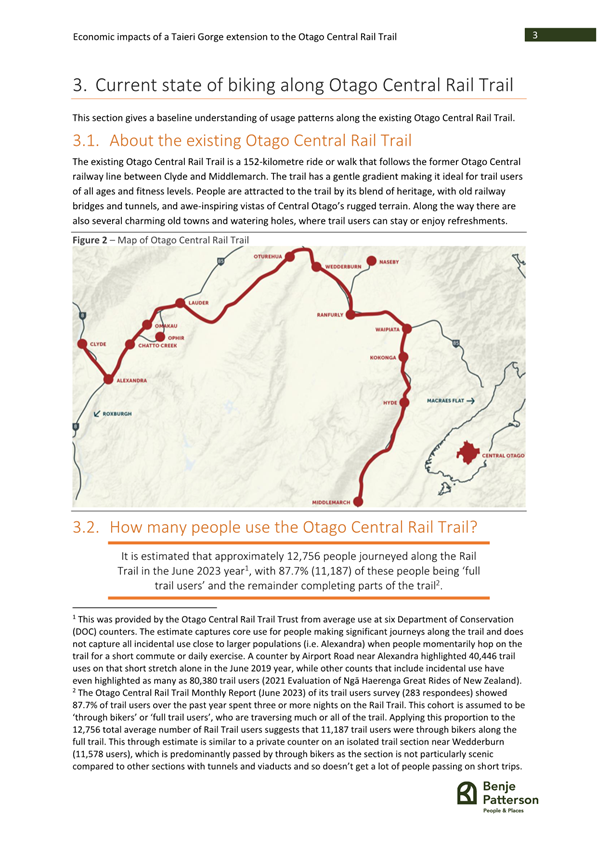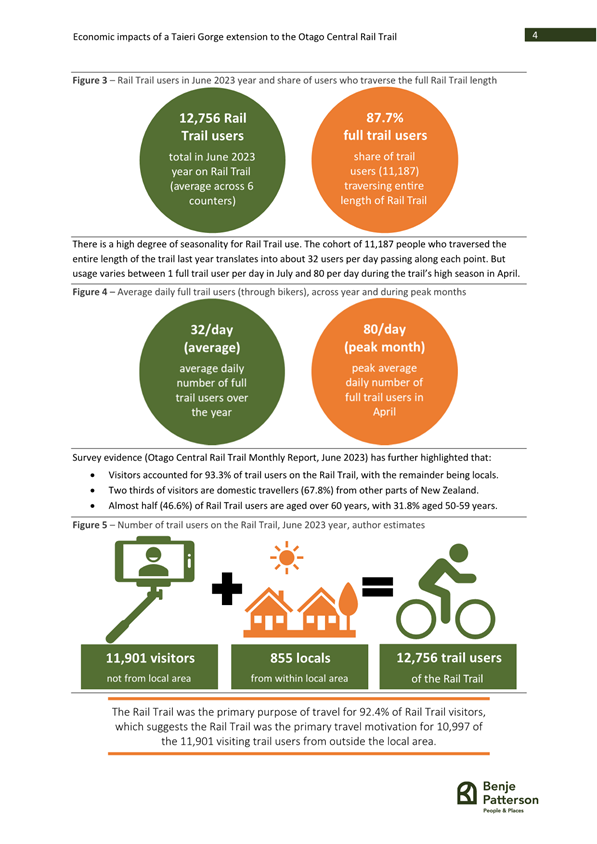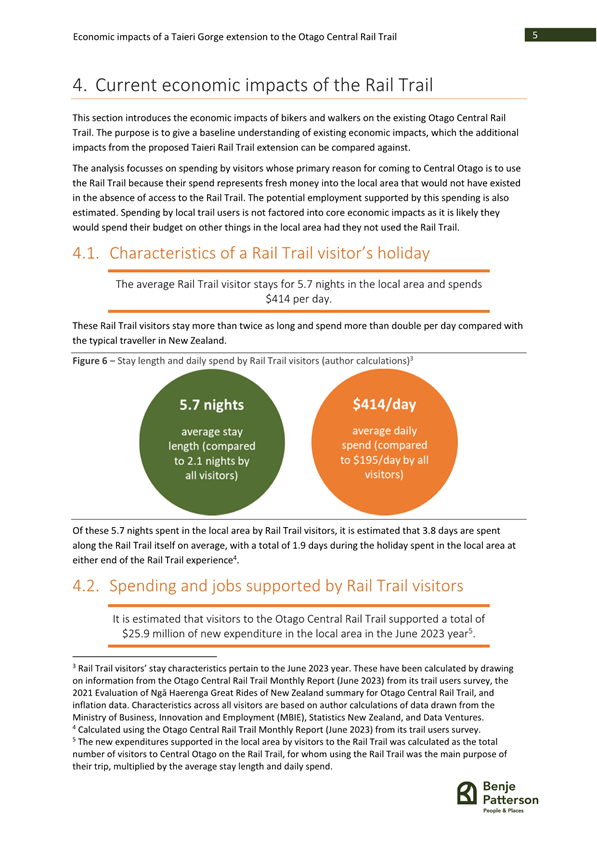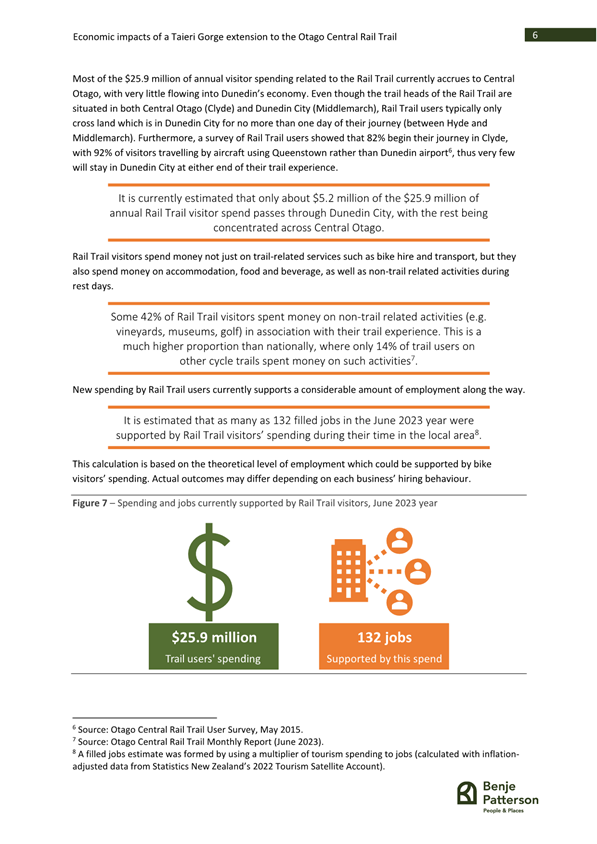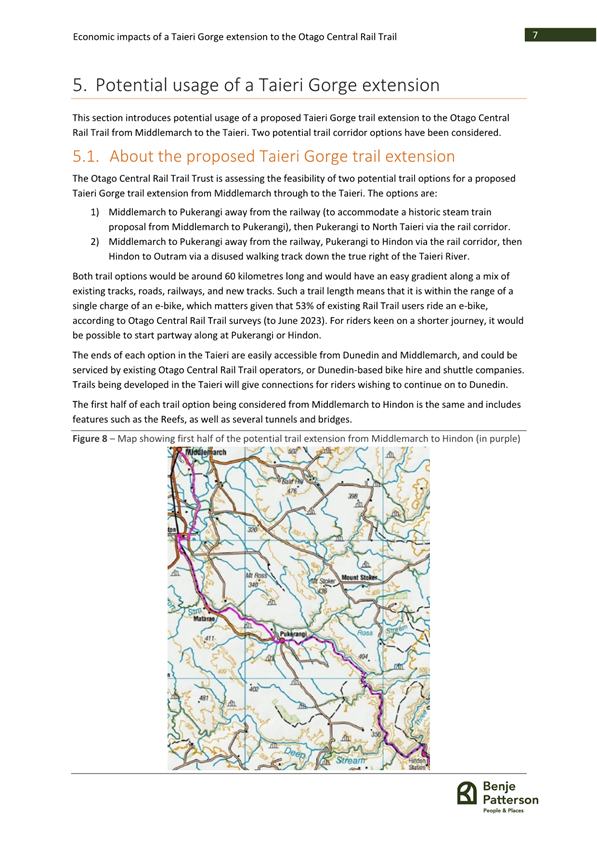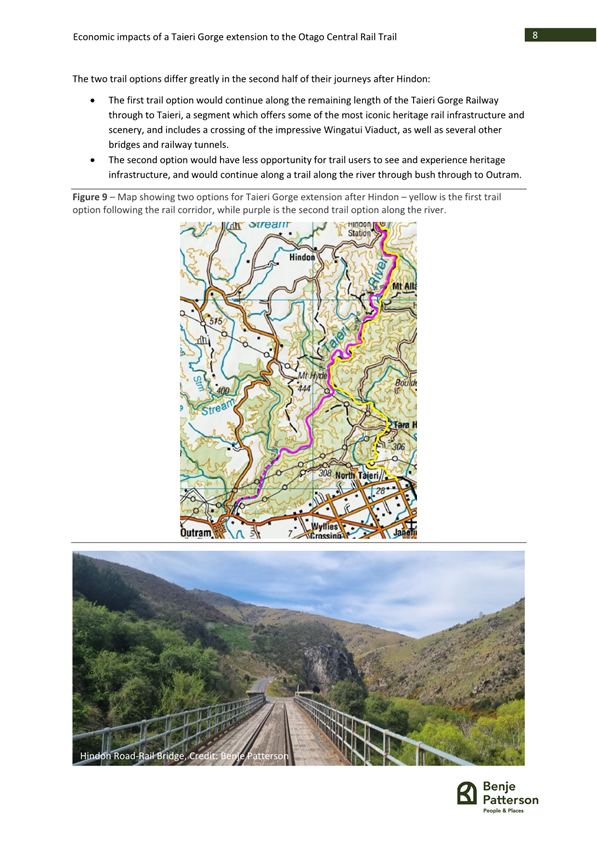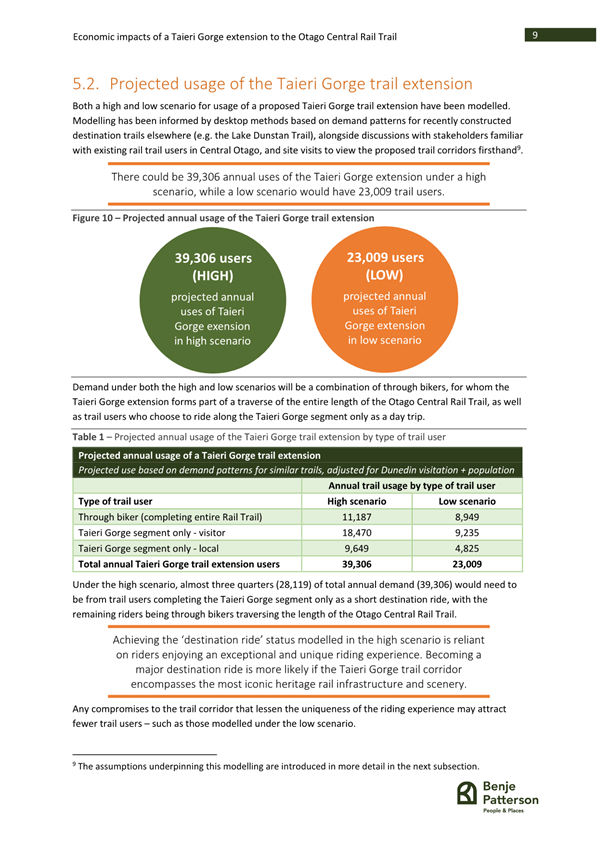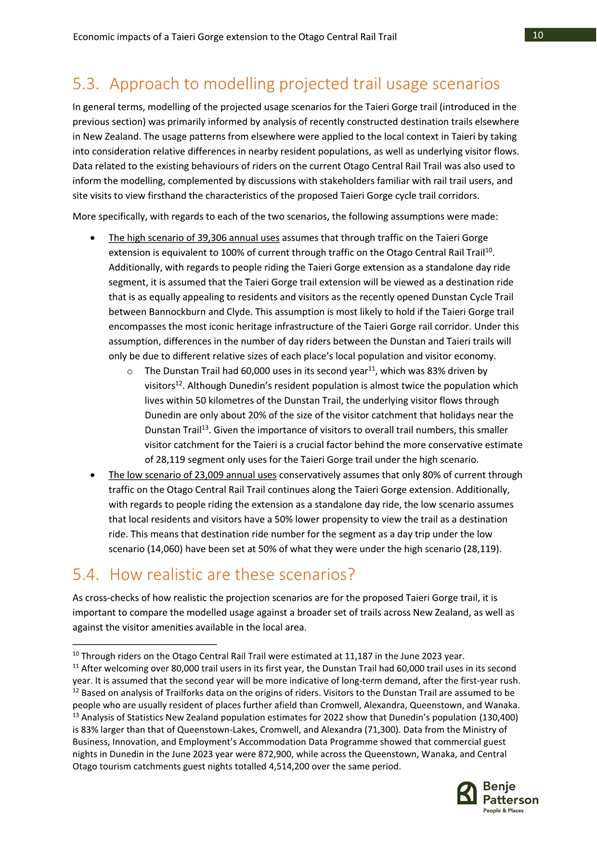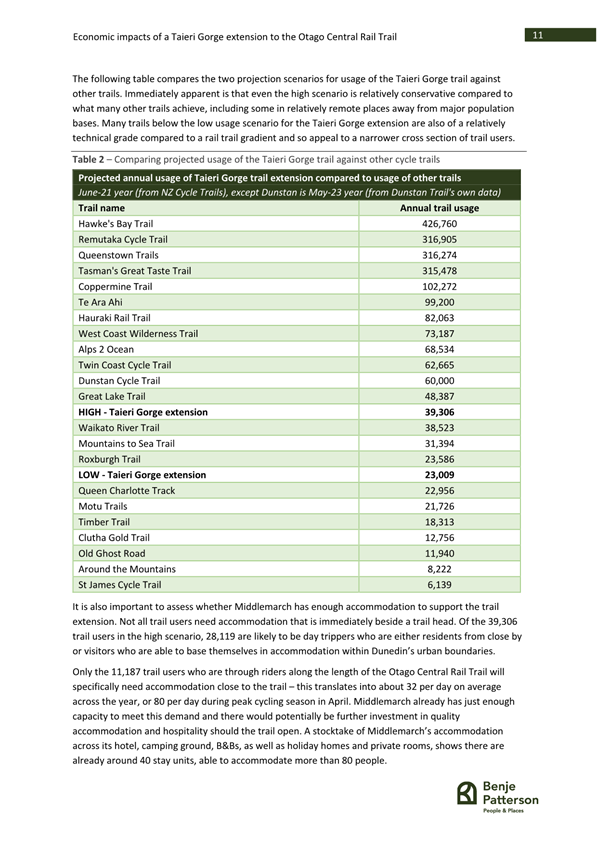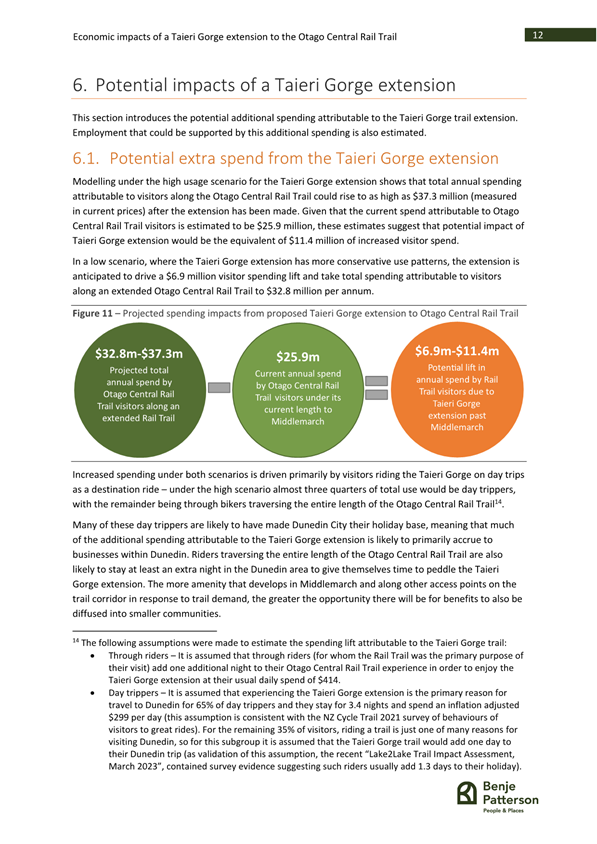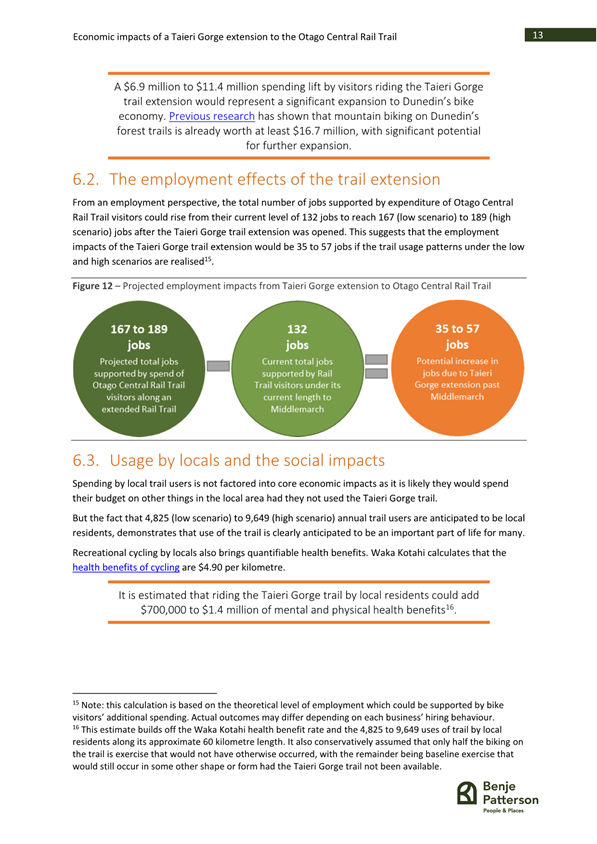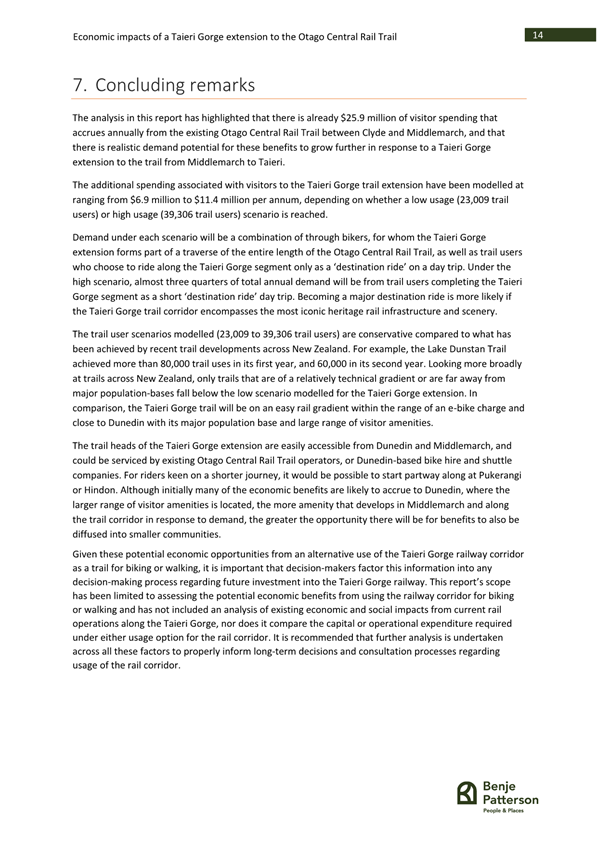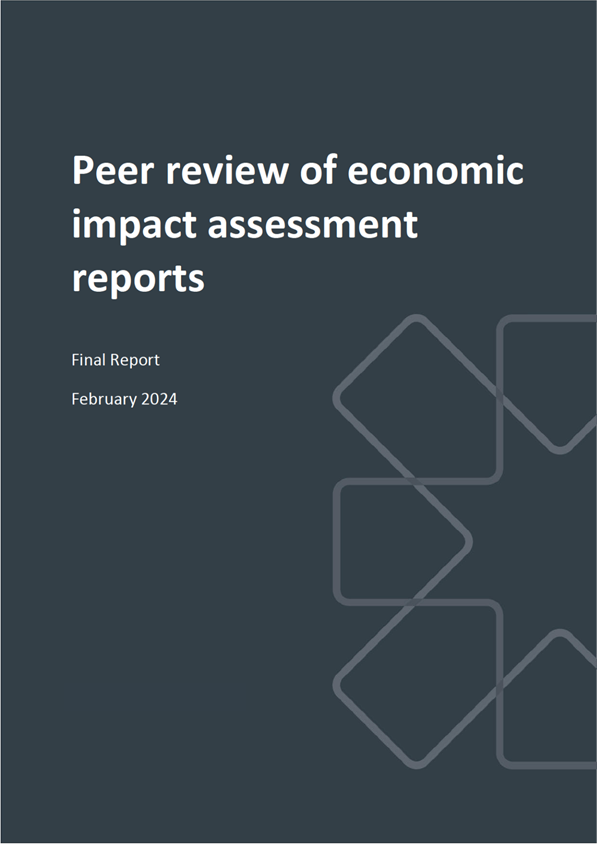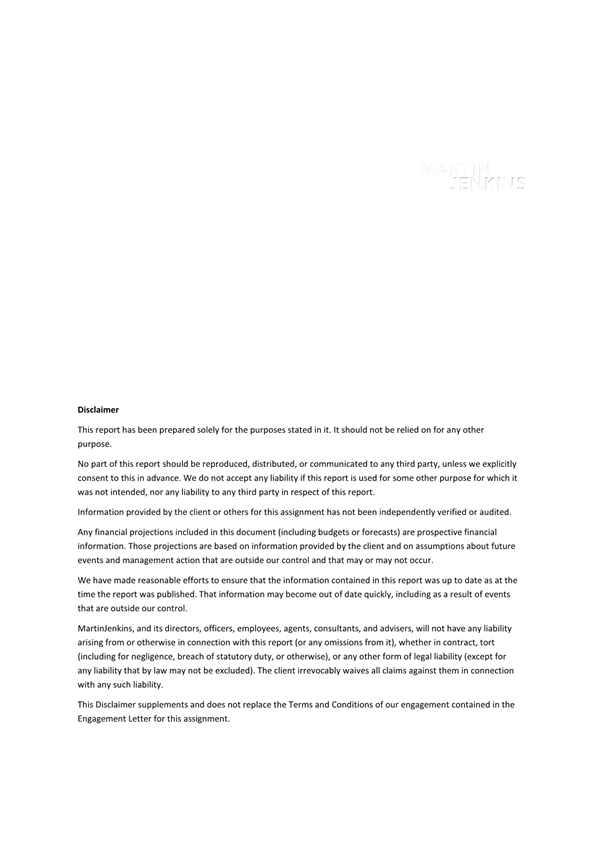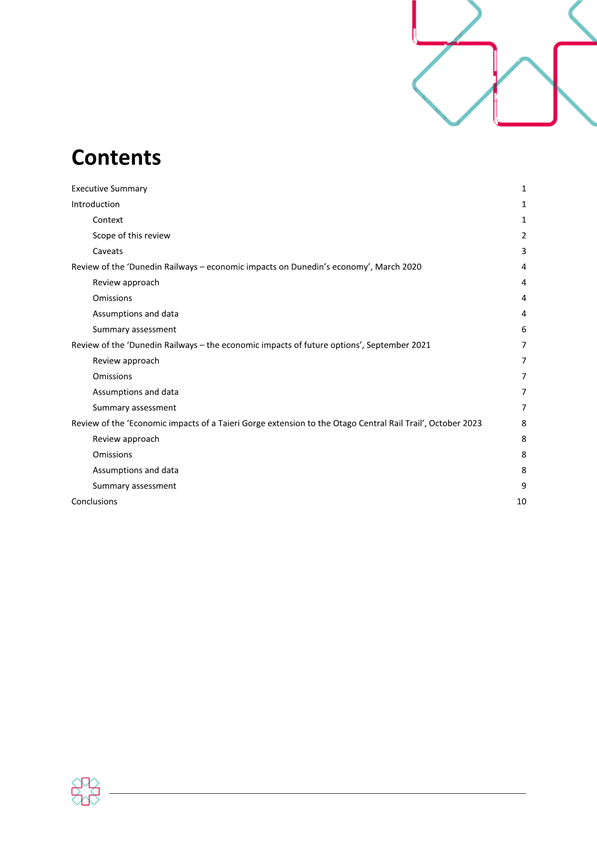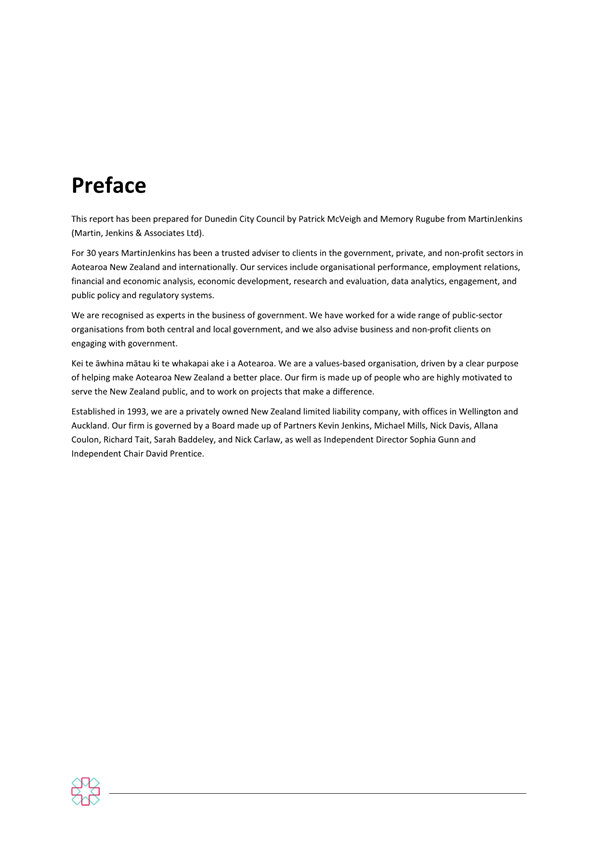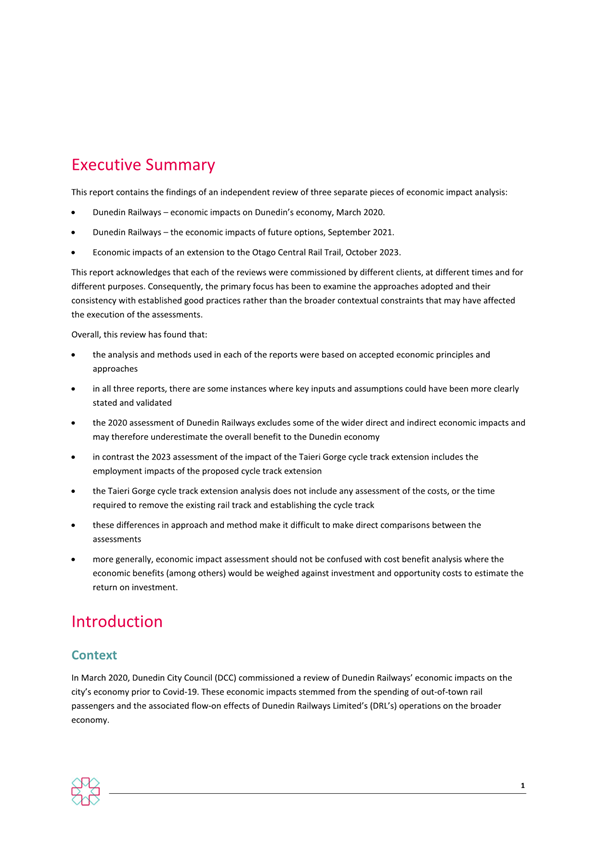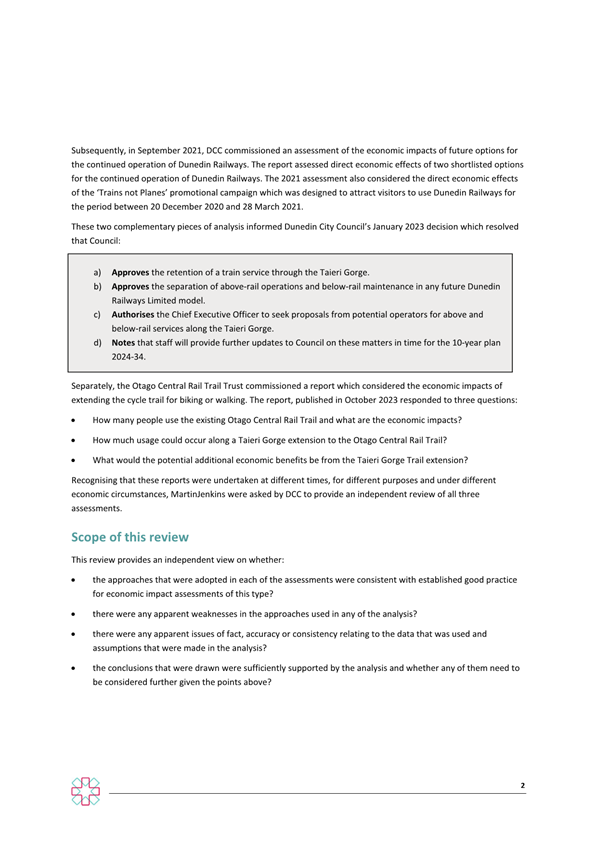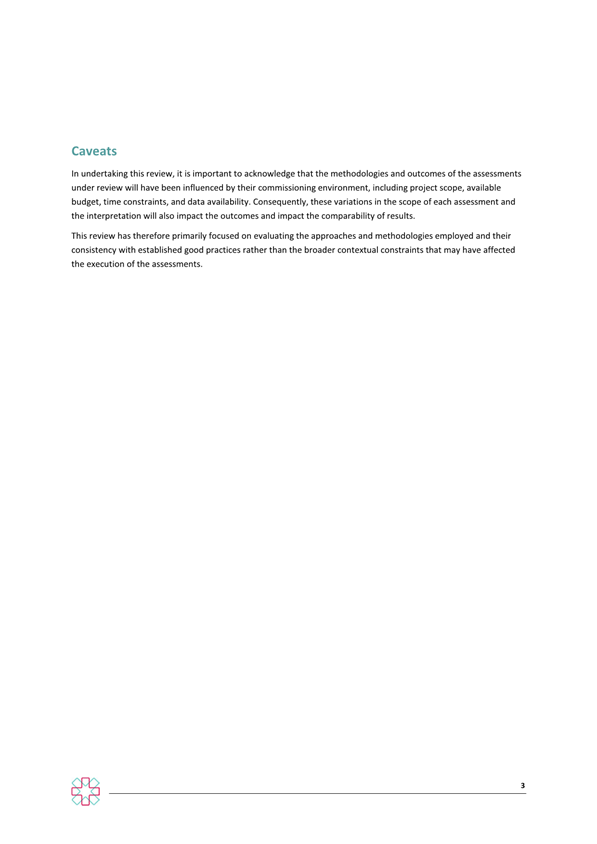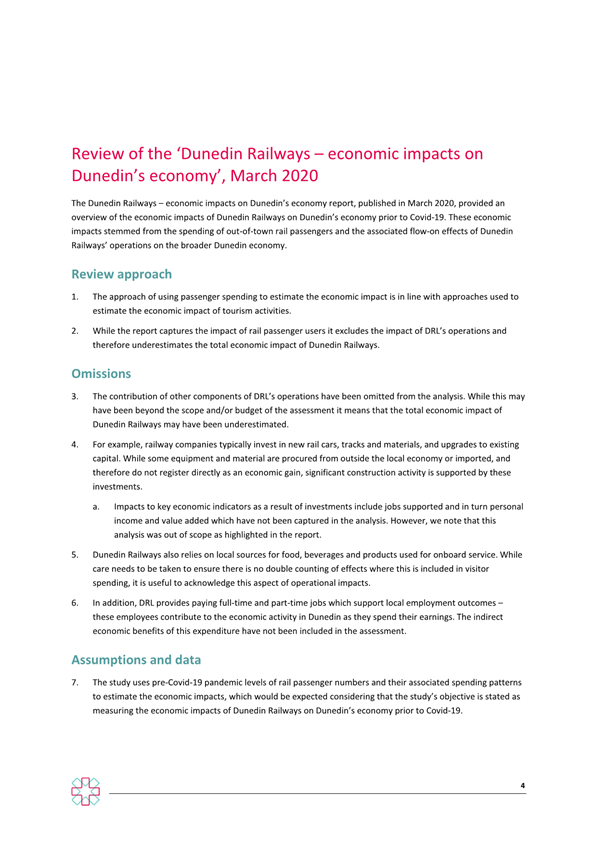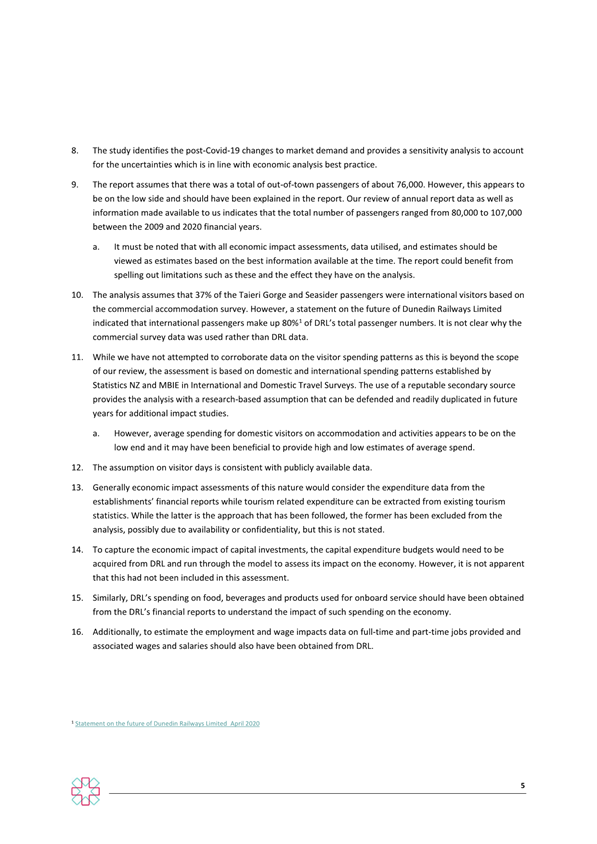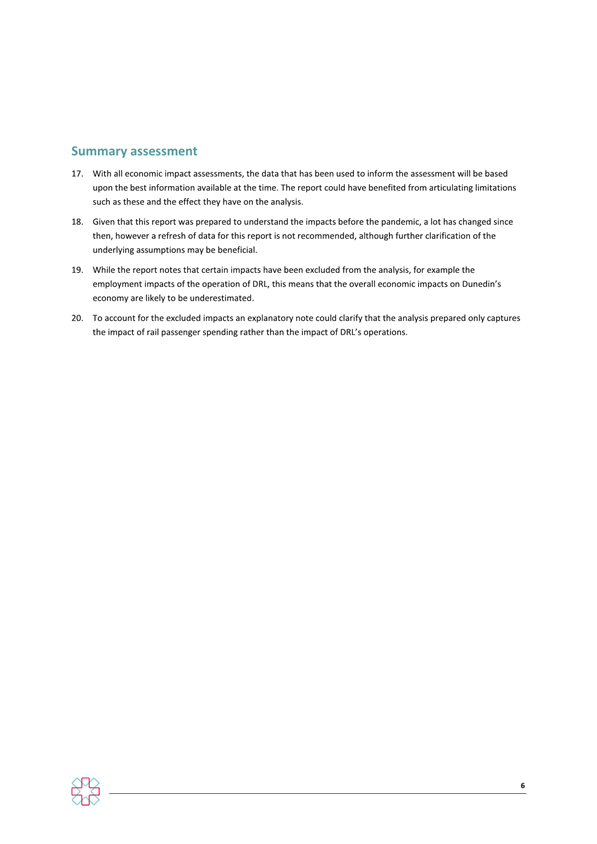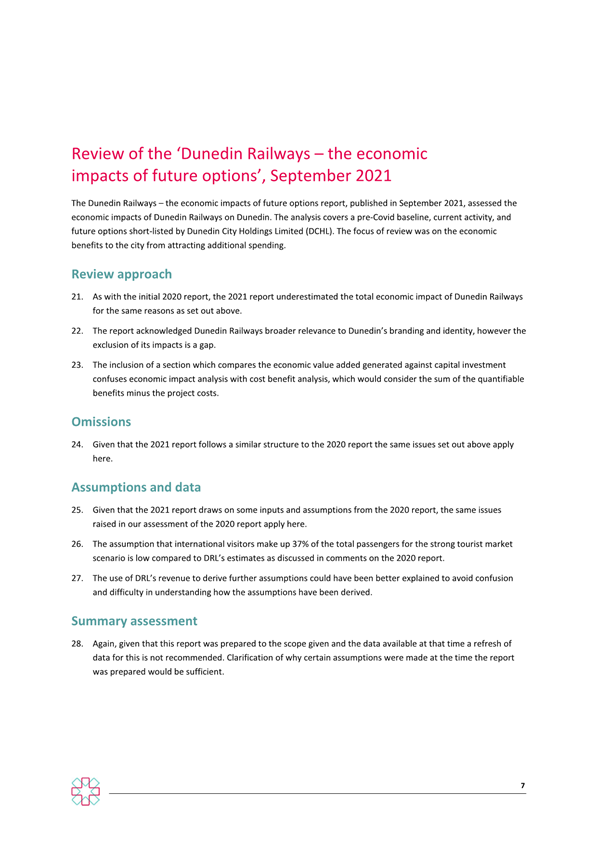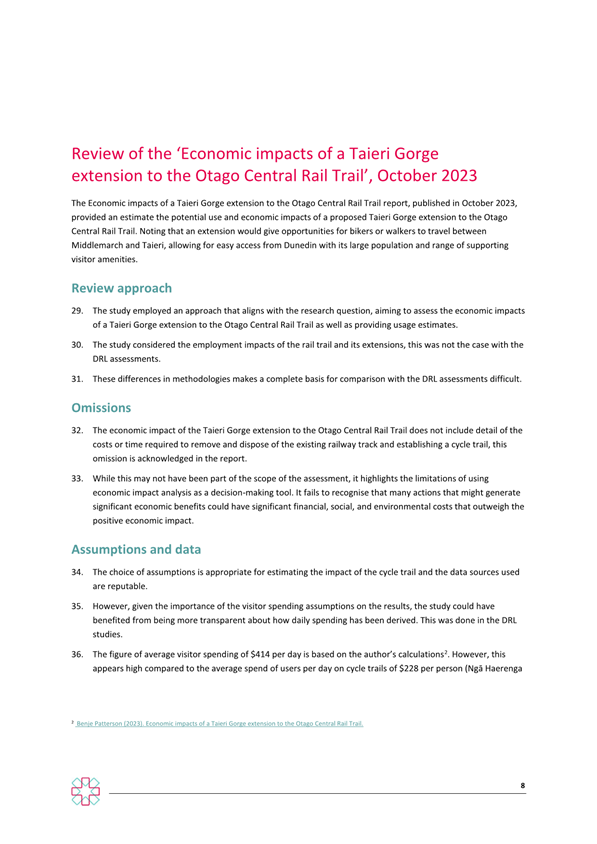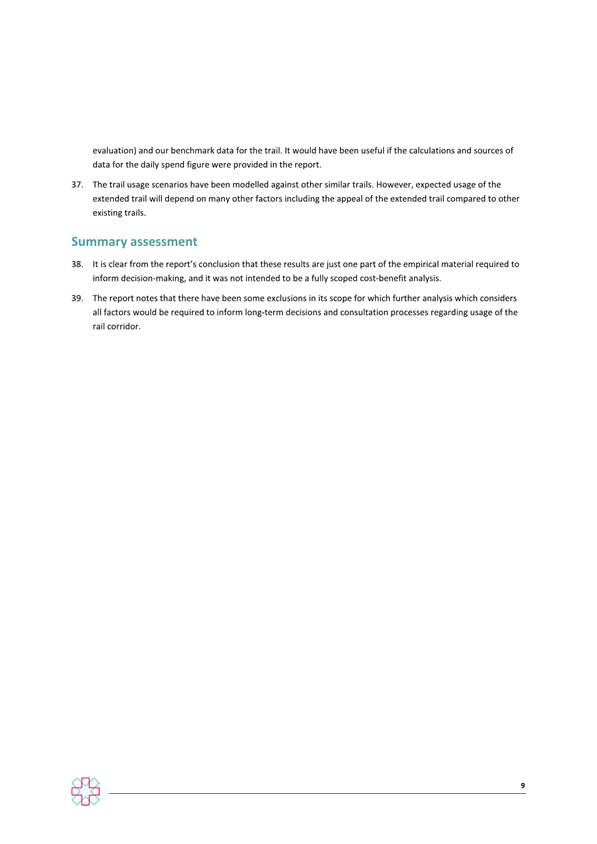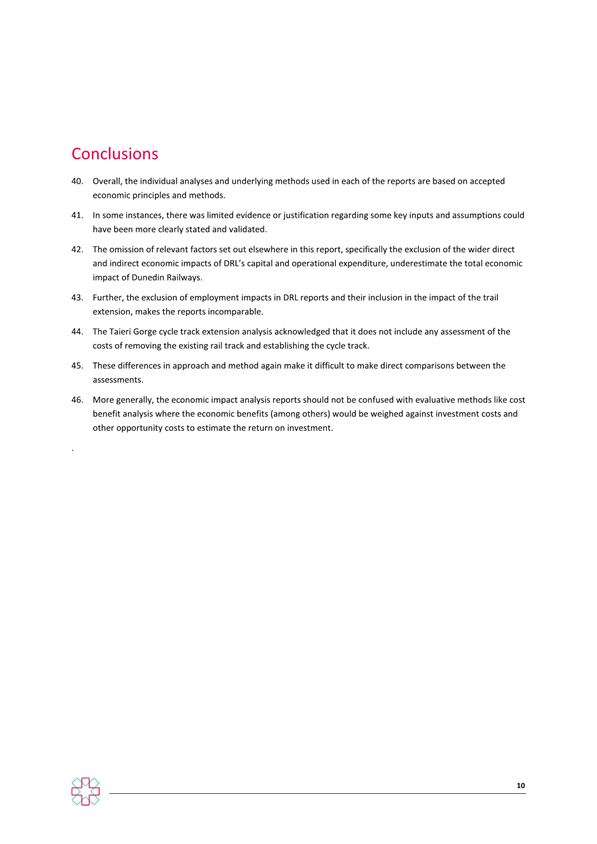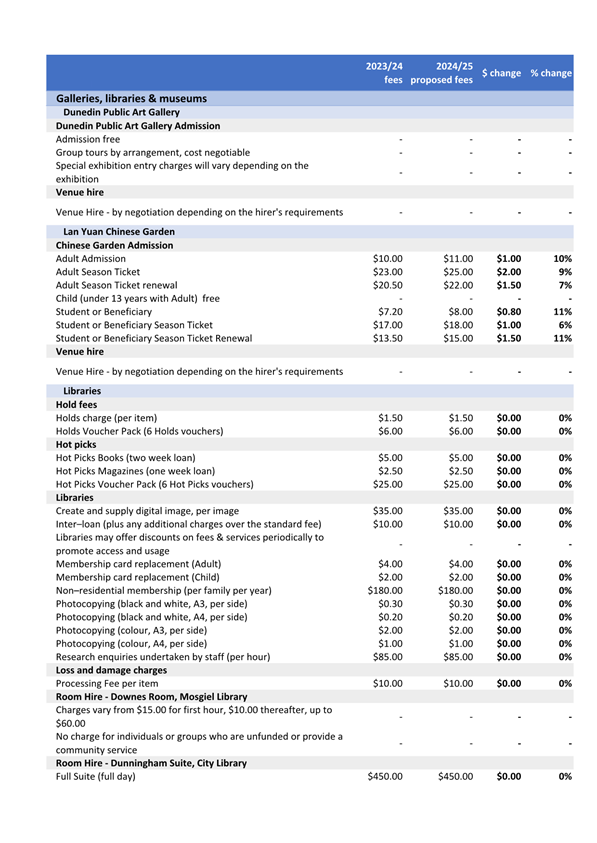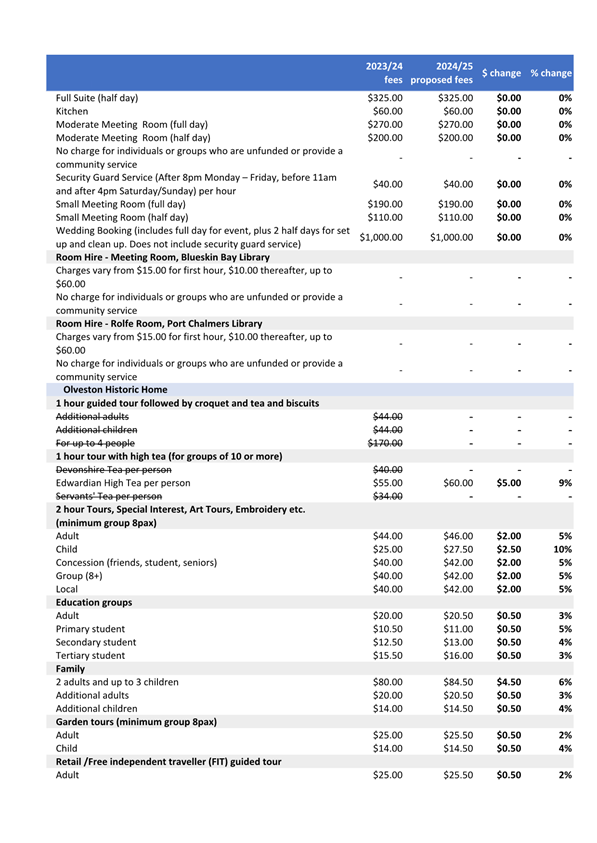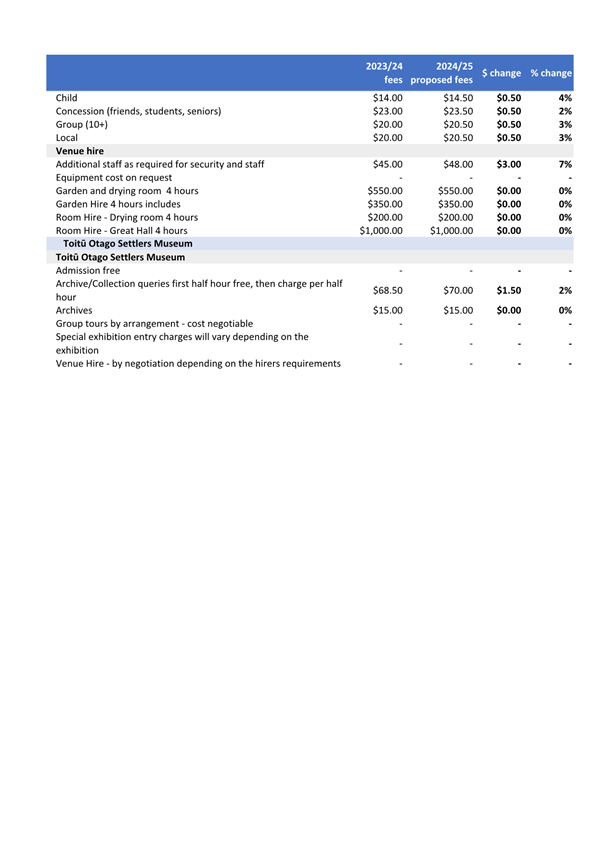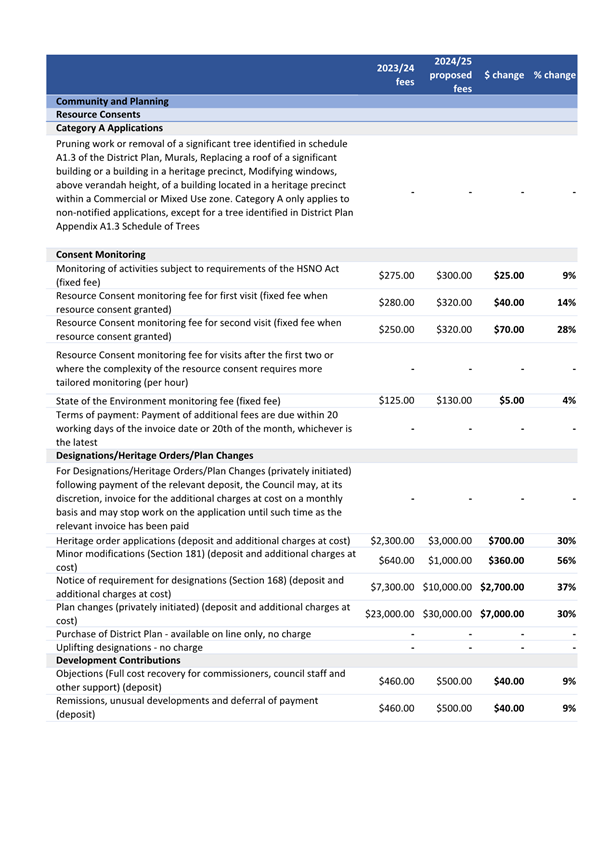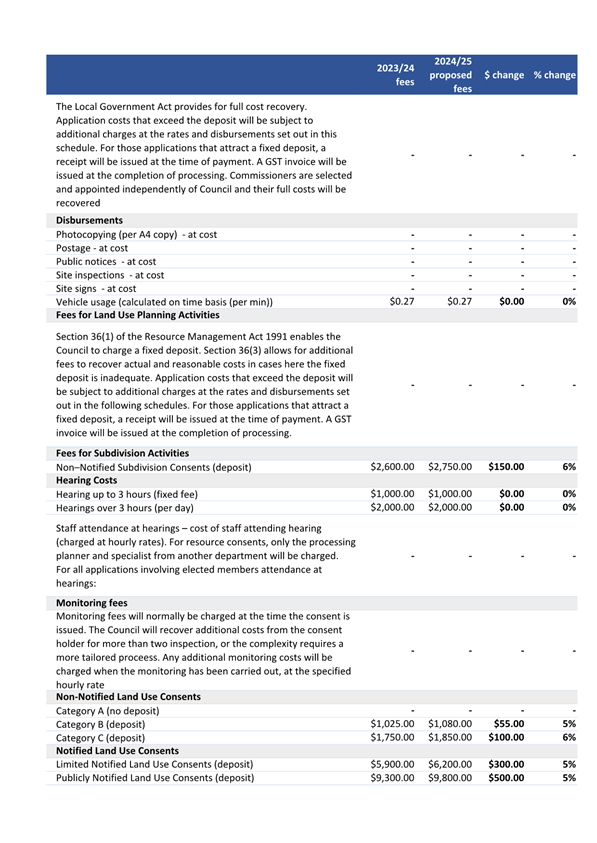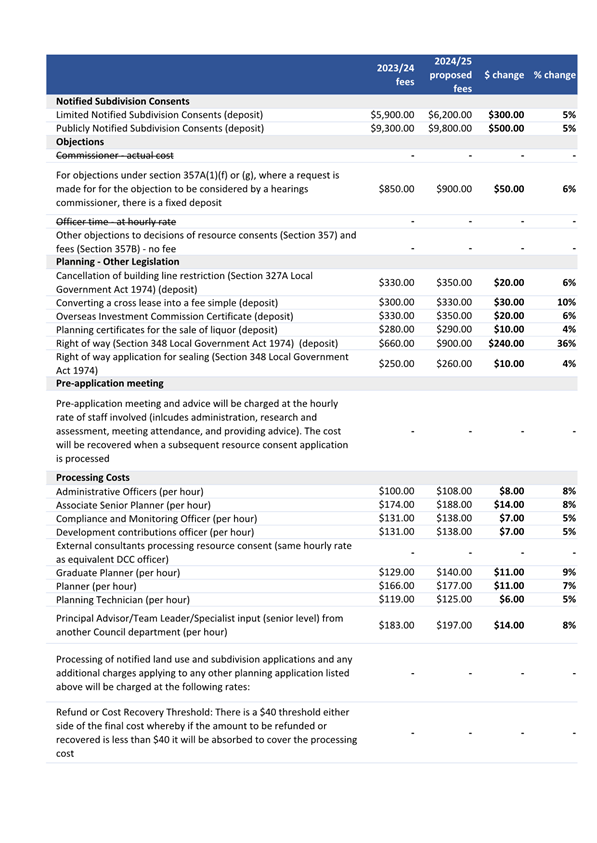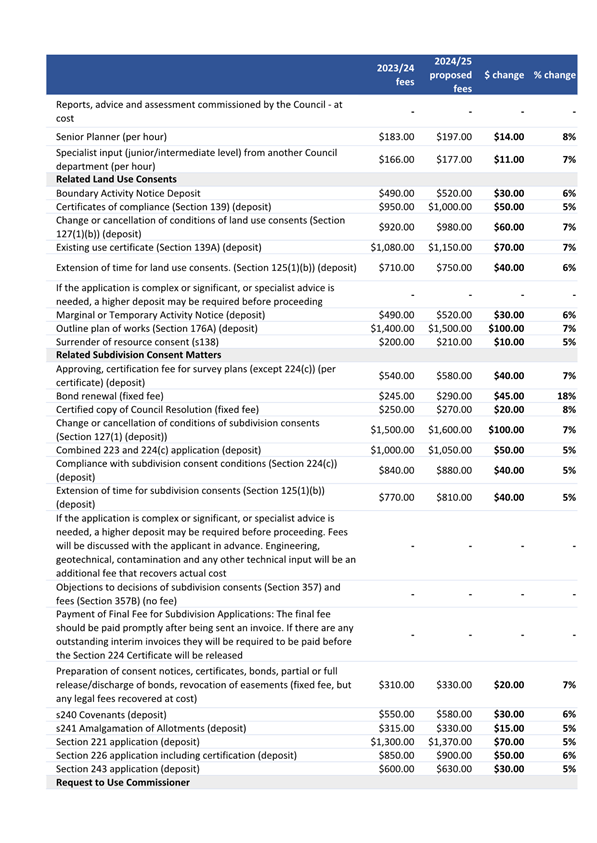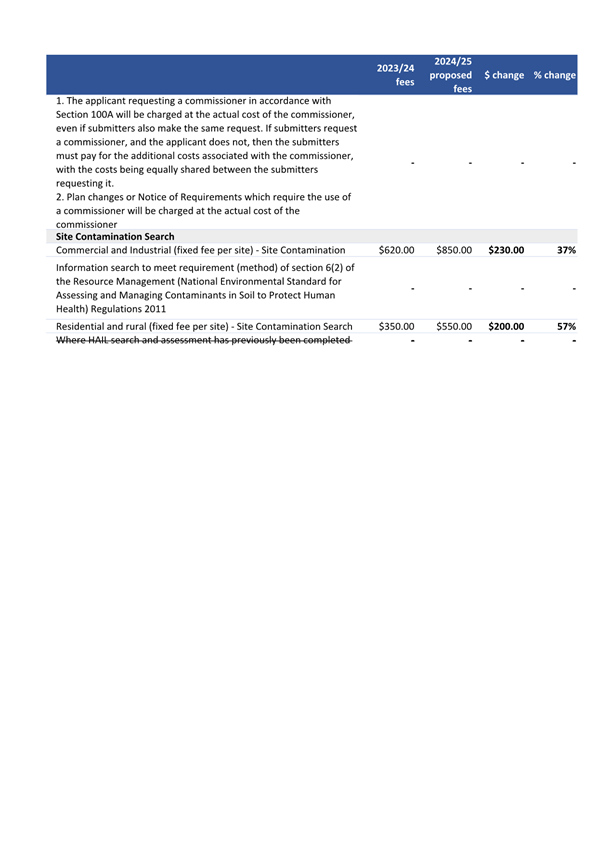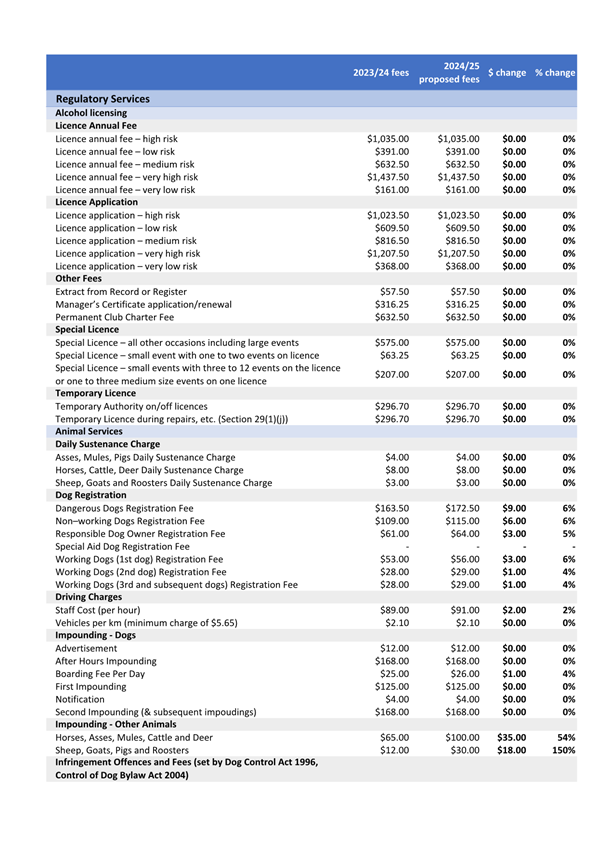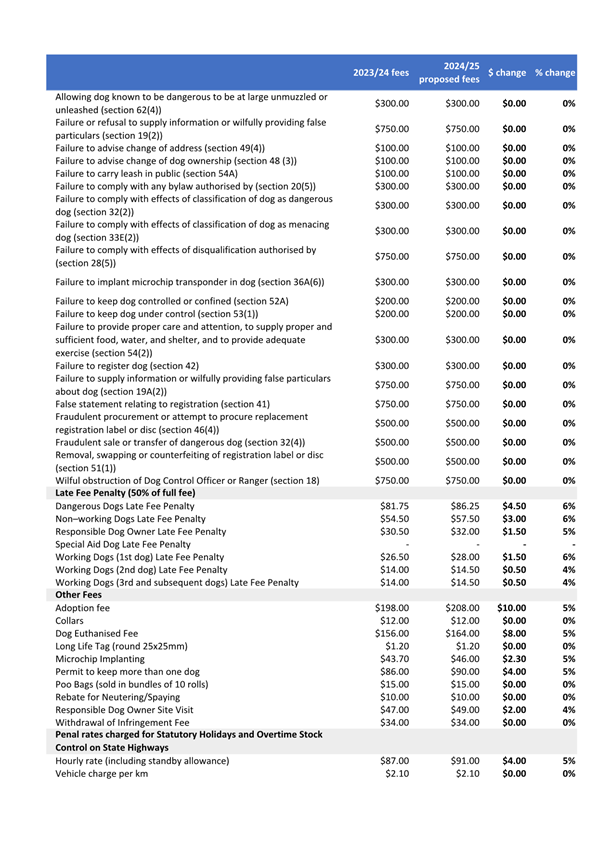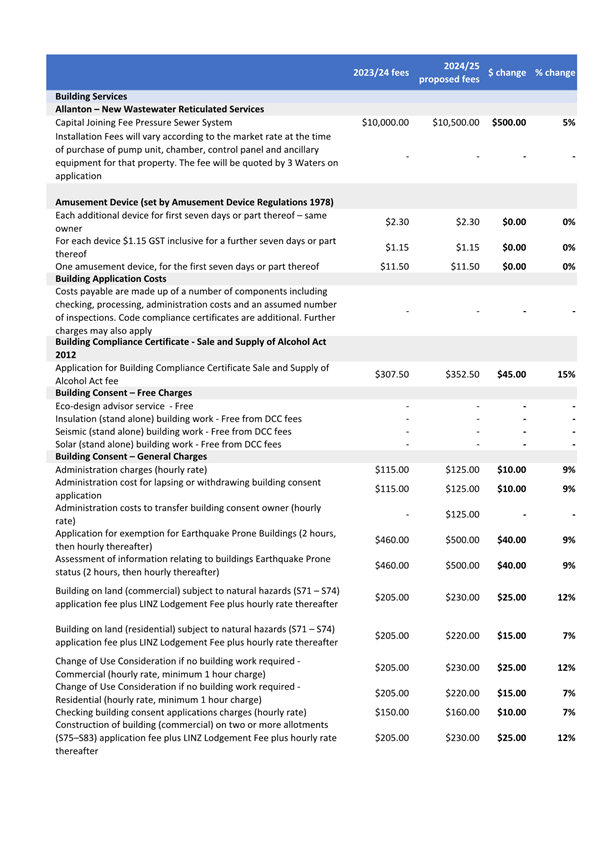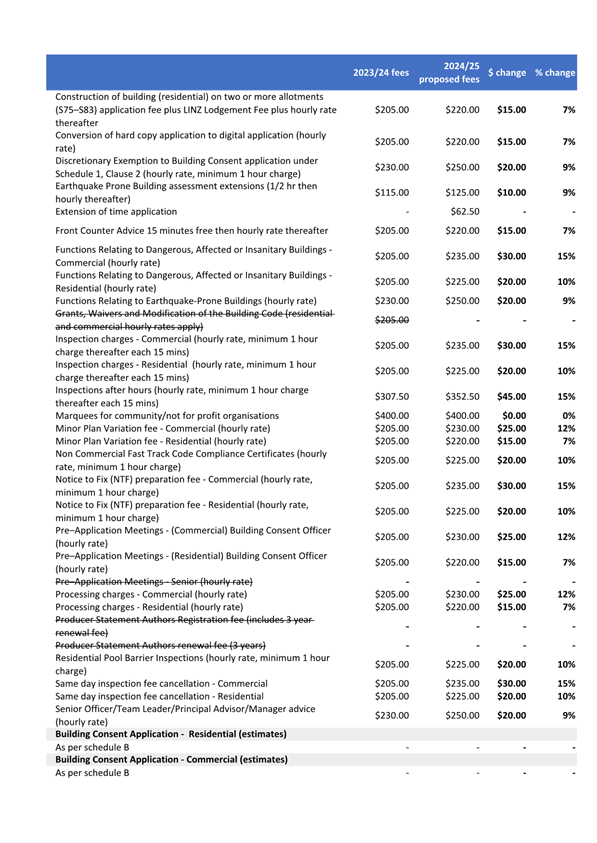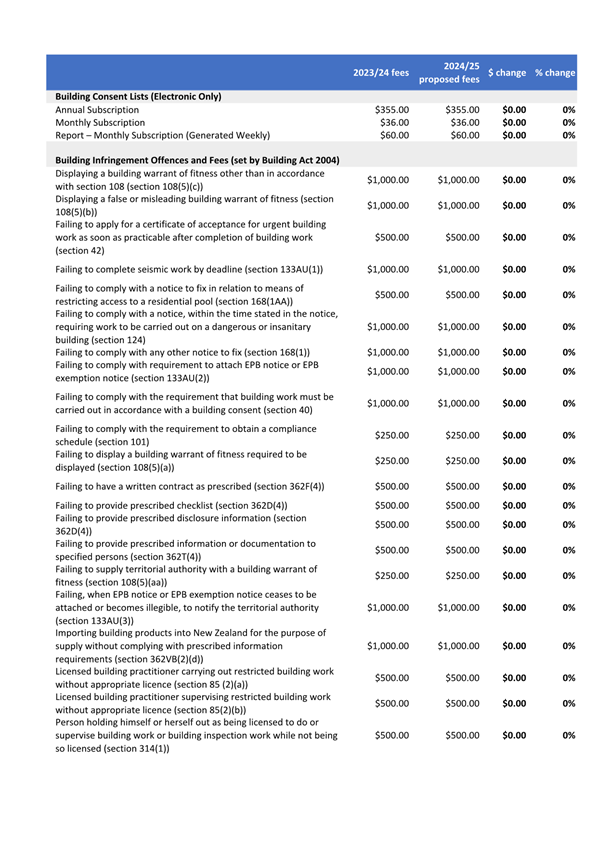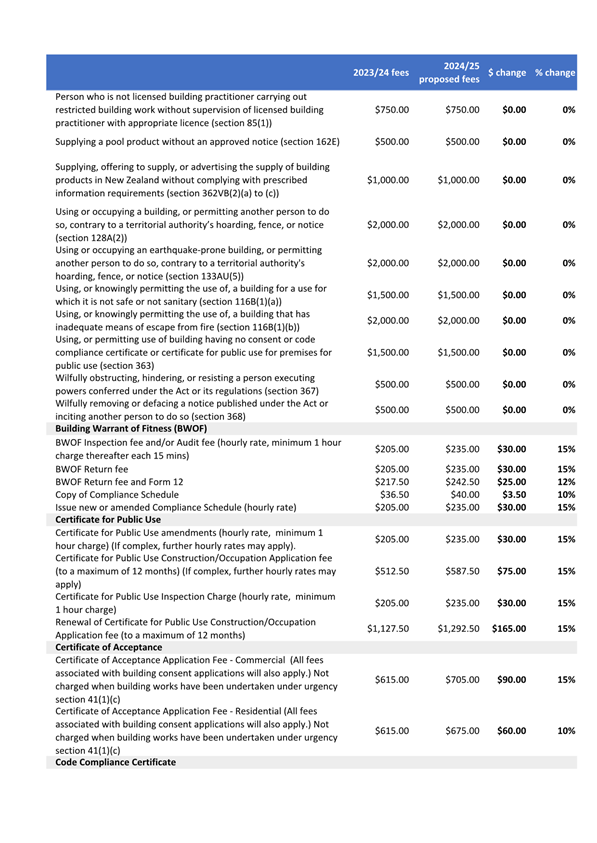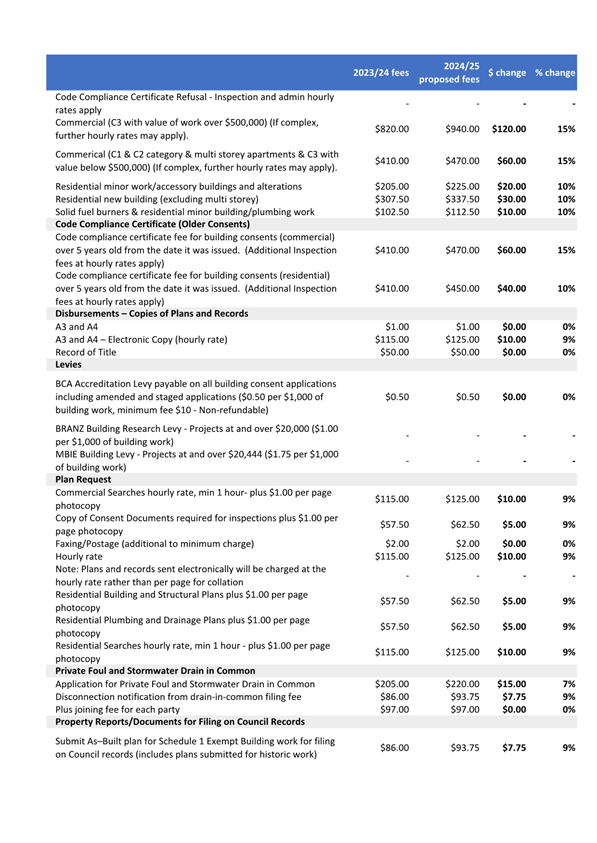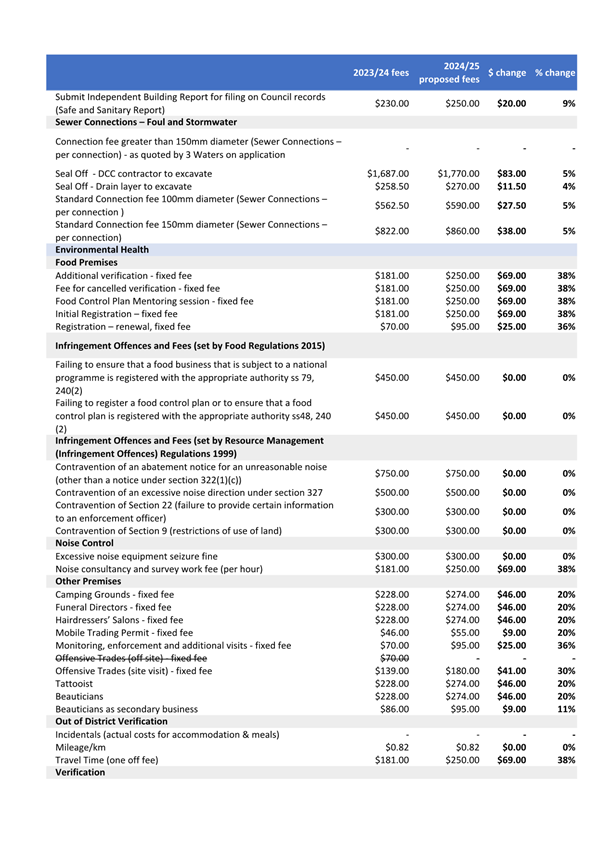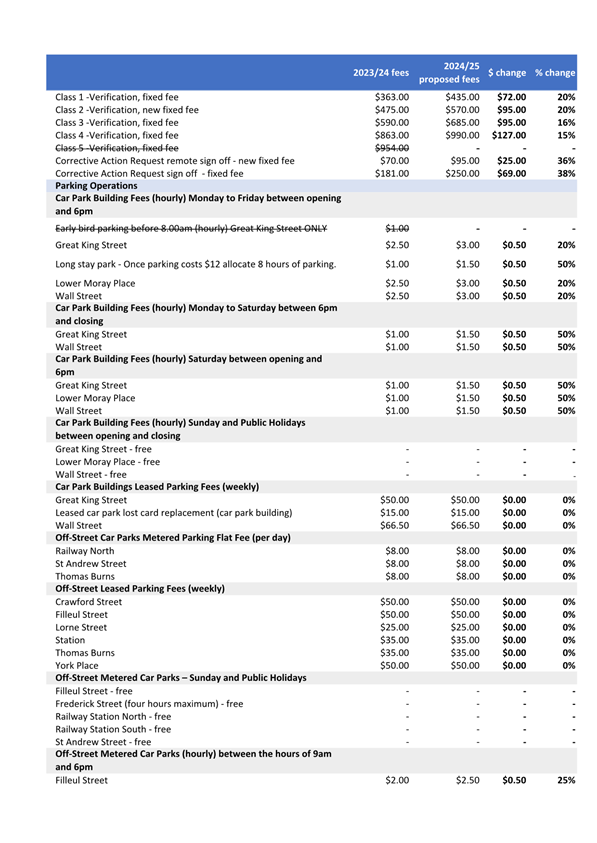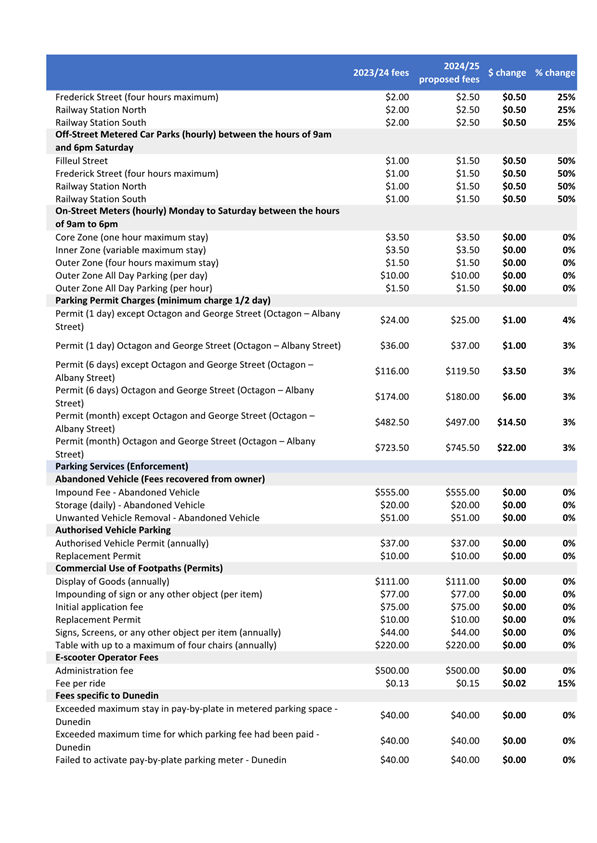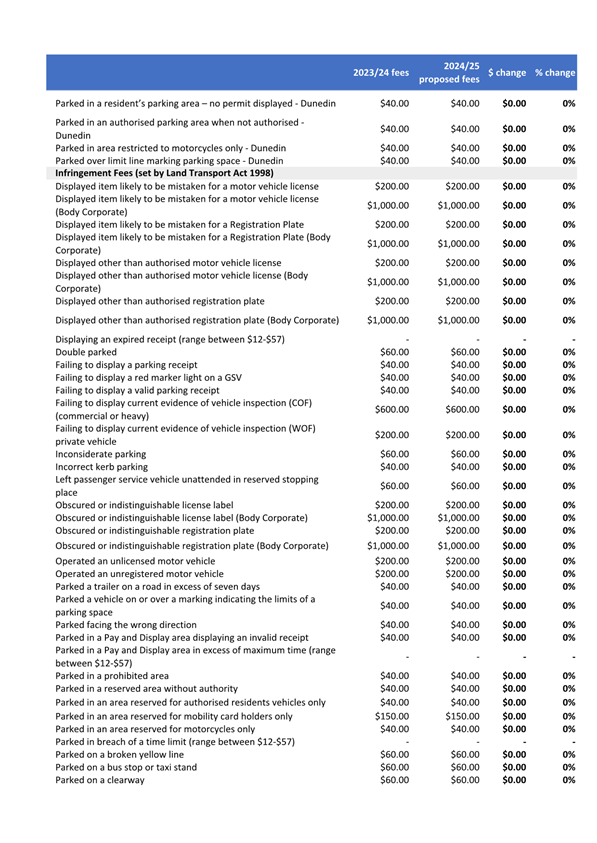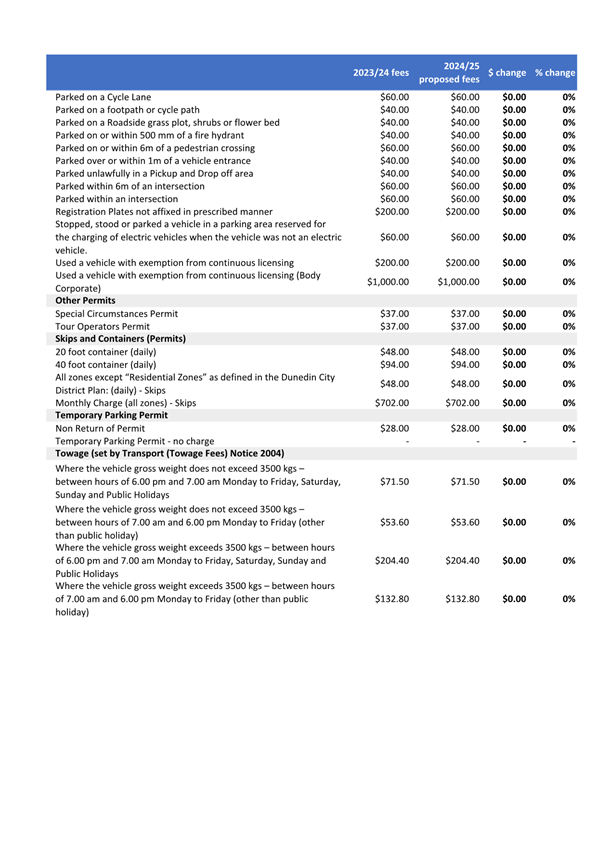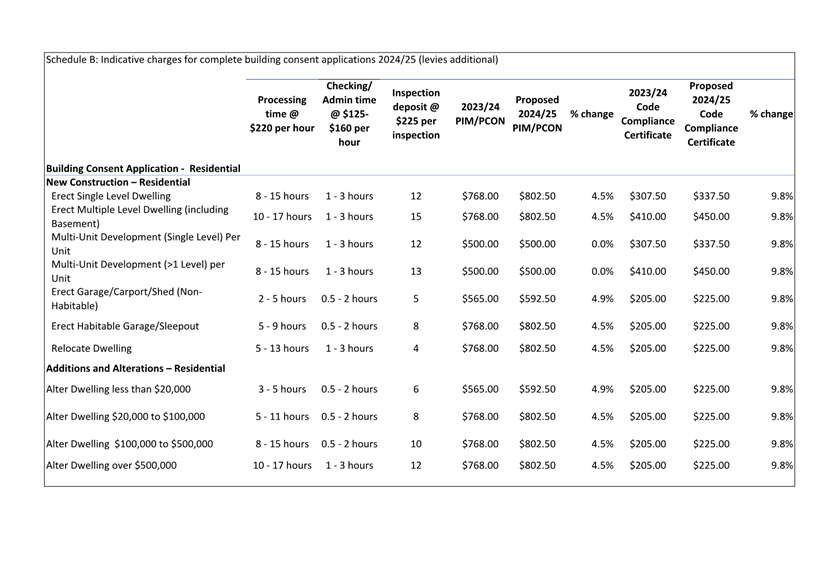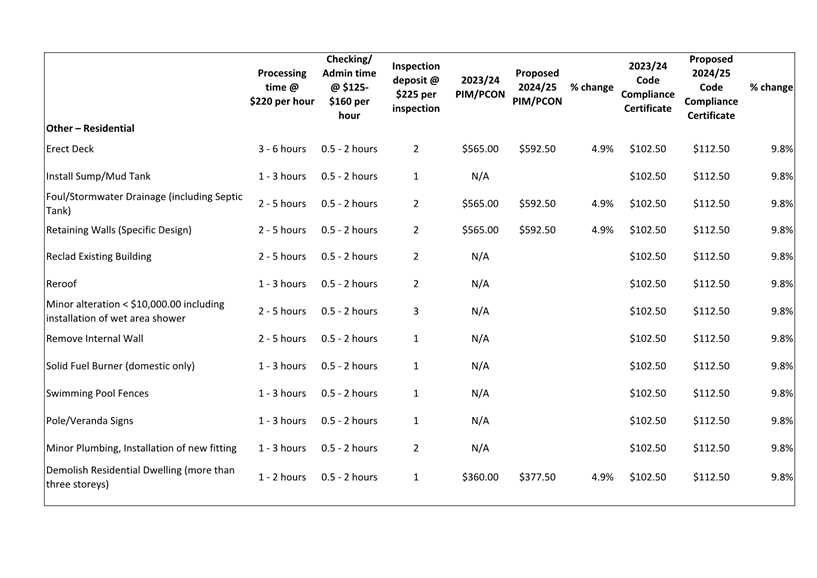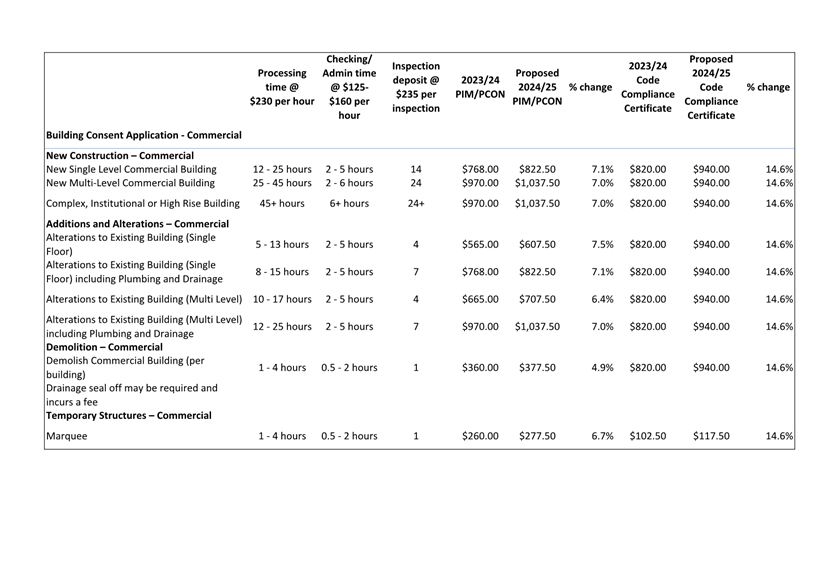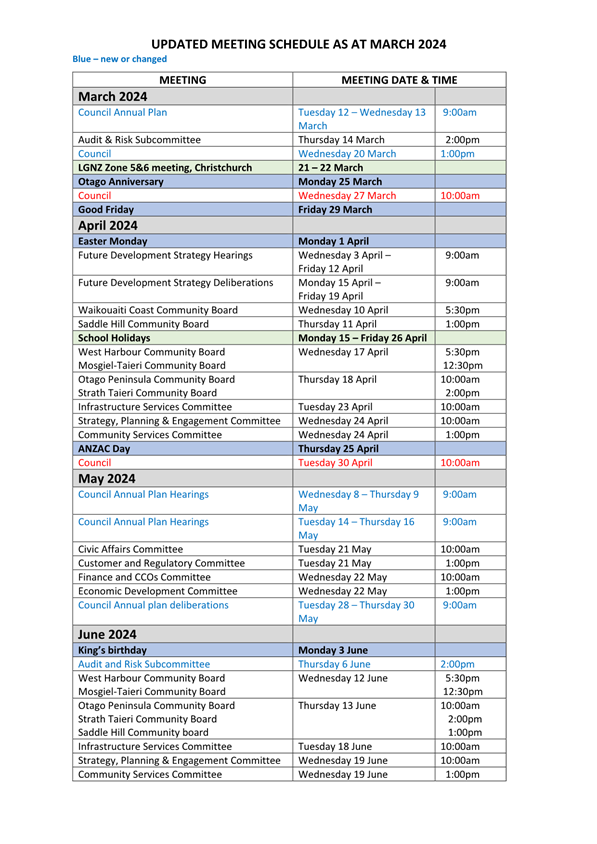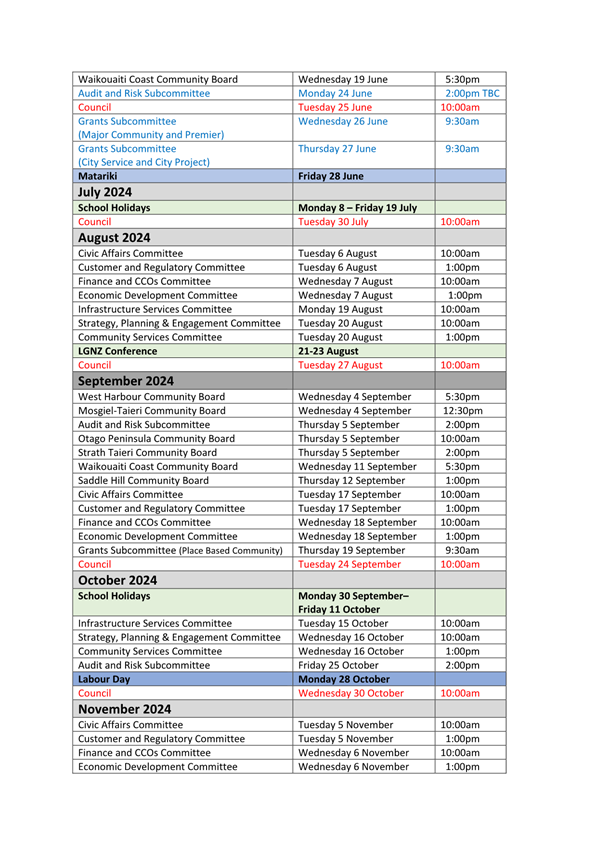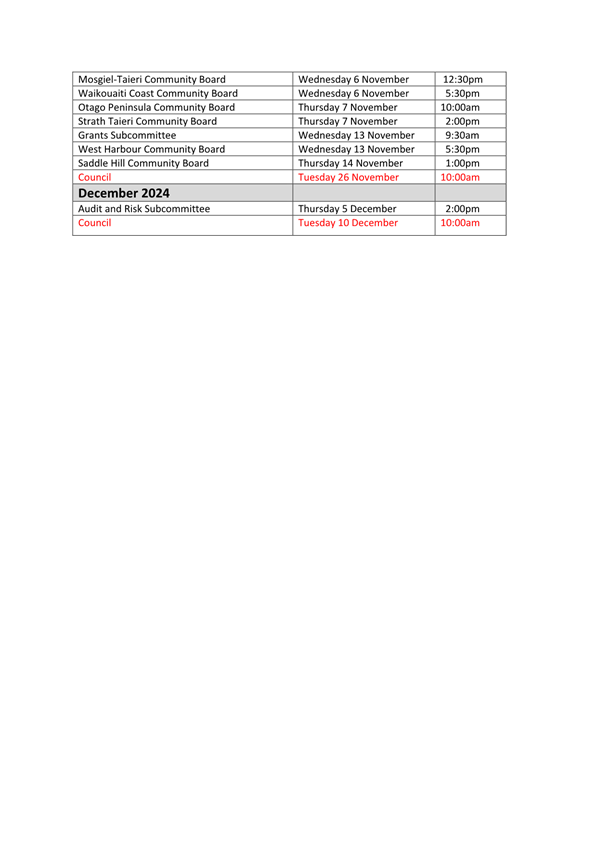
Notice of Meeting:
I hereby give notice that an ordinary meeting of the Dunedin
City Council will be held on:
Date: Tuesday
12 March 2024
Time: 9:00
a.m.
Venue: Council
Chamber, Dunedin Public Art Gallery, The Octagon, Dunedin
Sandy Graham
Council
PUBLIC AGENDA
|
Mayor
|
Mayor Jules Radich
|
|
|
Deputy Mayor
|
Cr Cherry Lucas
|
|
|
Members
|
Cr Bill Acklin
|
Cr Sophie Barker
|
|
|
Cr David Benson-Pope
|
Cr Christine Garey
|
|
|
Cr Kevin Gilbert
|
Cr Carmen Houlahan
|
|
|
Cr Marie Laufiso
|
Cr Mandy Mayhem
|
|
|
Cr Jim O'Malley
|
Cr Lee Vandervis
|
|
|
Cr Steve Walker
|
Cr Brent Weatherall
|
|
|
Cr Andrew Whiley
|
|
Senior Officer Sandy
Graham, Chief Executive Officer
Governance Support Officer Lynne
Adamson
Lynne Adamson
Governance Support Officer
Telephone: 03 477 4000
governance.support@dcc.govt.nz
www.dunedin.govt.nz
Note: Reports
and recommendations contained in this agenda are not to be considered as
Council policy until adopted.
|

|
Council
12 March 2024
|
ITEM TABLE OF CONTENTS PAGE
1 Opening 4
2 Public
Forum 4
3 Apologies 4
4 Confirmation
of Agenda 4
5 Declaration
of Interest 5
Reports
6 CEO
Overview Report - Annual Plan 2024/25 17
7 Rating
Method 2024/25 34
8 Draft
Capital Budget Including Zero Carbon Options 2024/25 45
9 Three
Waters - Operating Budget 2024/25 125
10 Roading
and Footpaths - Operating Budget 2024/25 138
11 Waste
Management - Operating Budget 2024/25 146
12 Property
- Operating Budget 2024/25 157
13 Community
Housing Fees and Charges 165
14 Reserves
and Recreational Facilities - Operating Budget 2024/25 174
15 Options
for the replacement of the Hockey Turfs at Logan Park 189
16 Governance
and Support Services - Operating Budget 2024/25 200
17 Dunedin
Railways 2024/25 209
18 DCC
Grants - Update Report 282
19 Economic
Development - Operating Budget 2024/25 287
20 Galleries,
Libraries and Museums - Operating Budget 2024/25 294
21 Tuhura
Otago Museum - DCC Funding Approach 304
22 Community
and Planning - Operating Budget 2024/25 310
23 Regulatory
Services - Operating Budget 2024/25 322
24 Revised
meeting schedule March - December 2024 344
Resolution to Exclude the Public 348
|

|
Council
12 March 2024
|
1 Opening
Rev Greg Hughson will
open the meeting with a prayer on behalf of the Dunedin Interfaith Society.
2 Public
Forum
There is no public forum.
3 Apologies
At the close of the agenda no
apologies had been received.
4 Confirmation
of agenda
Note:
Any additions must be approved by resolution with an explanation as to why they
cannot be delayed until a future meeting.
|

|
Council
12 March 2024
|
Declaration of Interest
EXECUTIVE SUMMARY
1. Members
are reminded of the need to stand aside from decision-making when a conflict
arises between their role as an elected representative and any private or other
external interest they might have.
2. Elected
members are reminded to update their register of interests as
soon as practicable, including amending the register at this meeting if
necessary.
3 Staff
are reminded to update their register of interests as soon as practicable.
RECOMMENDATIONS
That the Council:
a) Notes/Amends if
necessary the Elected Members' Interest Register attached as Attachment A; and
b) Confirms/Amends the
proposed management plan for Interests.
c) Notes the proposed
management plan for the Executive Leadership Team’s Interests.
Attachments
|
|
Title
|
Page
|
|
⇩a
|
Elected Members'
Interest Register
|
6
|
|
⇩b
|
Executive Leadersship
Team Interest Register
|
15
|
|

|
Council
12 March 2024
|
Reports
CEO Overview Report - Annual Plan 2024/25
Department: Civic and Finance
EXECUTIVE SUMMARY
1 On
16 February 2024, the Water Services Act Repeal Act 2024 (the Repeal Act) was
enacted. Given the significant changes to 3 Water reform, the Repeal Act
provides the ability to prepare an enhanced Annual Plan for the 2024/25 year,
rather than completing a 10 year plan 2024-34.
2 At
its meeting on 27 February, Council approved the preparation of a 2024/25
Annual Plan for community consultation. The 2024/25 Annual Plan will be
followed by the completion of a 9 year plan for the period 2025-34.
3 This
report provides an overview of the budgets to be included in the draft 2024/25
Annual Plan (the draft Annual Plan). The draft Annual Plan is an update
of year four of the 10 year plan 2021-31. Draft Income Statements are at
Attachment A, and draft Funding Impact Statements are at Attachment B.
4 This
report highlights the budget challenges the DCC faces with the current economic
climate of high inflation and interest rates. Savings have been found
across the organisation, but these have largely been offset by rising costs.
5 The
draft budgets propose a rate rise of 17.5% for 2024/25 which is higher than the
6.0% provided for in year four of the 10 year plan, and higher than the
Financial Strategy rate limit of 6.5%.
6 Budgeted
staffing numbers have reduced from 903 FTE to 852 FTE – a reduction in 51
FTE positions. All other controllable costs have been reviewed and
reduced where possible.
RECOMMENDATIONS
That the Council:
a) Adopts the draft
2024/25 operating budgets for the purpose of community engagement as shown /
amended at Attachment A.
b) Notes that any
resolution made during this meeting relating to the 2024/25 Annual Plan reports
may be subject to further discussions and decision by the meeting.
BACKGROUND
7 Following
the enactment of the Repeal Act on 16 February 2024, at its meeting on 27
February, Council approved taking up the option of preparing an enhanced
2024/25 Annual Plan for community consultation, rather than preparing a 10 year
plan 2024-34.
8 This
decision was made following consideration of factors such as the changing
legislative environment (both recent and signalled), and our need for more
information that will allow us to prepare a more robust and informed 9 year
plan.
9 The
Local Government Act 2002 provides that Council must prepare and adopt an
annual plan for each financial year. Section 95 (5) sets out the purpose
of an annual plan as follows:
The purpose of an annual plan
is to –
(a) Contain the proposed annual budget and funding impact
statement for the year to which the annual plan relates; and
(b) Identify any variation from the financial statements and
funding impact statement included in the local authority’s long-term plan
in respect of the year; and
(c) Provide integrated decision making and co-ordination of the
resources of the local authority; and
(d) Contribute to the accountability of the local authority to
the community.
10 The Repeal
Act provides that an enhanced Annual Plan is to include information additional
to the Local Government Act requirements. The additional information
includes financial statements and statement of service performance information
for each group activity. This information will be included in the 2024/25
Annual Plan document adopted in June 2024.
11 The draft
Annual Plan for 2024/25 is an update of year four of the 10 year plan.
Budgets for the 2024/25 year have been reviewed and budget update reports for
each activity of Council have been prepared for consideration at this
meeting.
DISCUSSION
12 When
the decision was made to prepare an enhanced Annual Plan, a significant amount
of work had already been undertaken to prepare both operating and capital
budgets for the 10 year period 2024 – 34. There was, however, a
high level of uncertainty of our information for years 2 – 10, as
legislative changes signalled by the new Government would likely take effect
from 2025/26 year onwards. Staff have confidence in the 2024/25
information, which is being used to produce the draft Annual Plan.
13 We continue
to have the pressures of high inflation rates, increased interest costs –
both rate increases combined with increasing debt levels, and the impact of
asset revaluation on our depreciation costs. Interest is estimated to be
up $6.1 million (23.3% on 2023/24), and depreciation by $5.2 million.
14 Many of the
cost increases we are experiencing are outside of the control of Council, e.g.,
increased energy costs to run our pools and other facilities, insurance costs,
and new costs such as compliance monitoring to meet water quality
standards.
15 A rate
increase of 17.5% is proposed in the draft budgets. This increase in
rates will maintain current service levels but also pay for an increased level
of service for a new kerbside collection service. This new service, commencing
in July 2024, replaces the black rubbish bag system. Of the 17.5% rate
increase, 4.4% will cover the cost of this new service.
Significant
forecasting assumptions
16 The 10 year
plan sets out a number of Significant Forecasting Assumptions.
Assumptions relating to inflation and interest rates have been updated for the
draft budgets.
17 Key
assumptions included in the preparation of the draft budgets will be further
updated in May 2024 if required. This will include but not be limited to:
· Interest rates on
borrowing – including the allocation of interest costs to each activity
group.
· Forecast debt as
at 30 June 2025.
· The impacts of
inflation.
· The level of grant
funding from NZTA Waka Kotahi (if available).
Rates breakdown at a high level
18 The summary
below provides a breakdown of the main factors making up the rate increase:
3 Waters 5.4%
Increase in depreciation (excl. 3
waters) 4.9%
New kerbside collection service 4.4%
Interest (excl. 3 waters) 1.8%
All other costs 1.0%
Total rate
increase 17.5%
19 The
breakdown is relatively simplistic and does not take into account the impact of
increases in other revenue but does highlight the three main drivers of the
rates increase. Broadly this shows that costs have been absorb where they
can be, and savings found in an attempt to control discretionary
expenditure. Fees and charges have been reviewed more critically, and
rather than apply a blanket increase across these, many have been modified to
reflect the actual cost of the services provided.
20 The
increase in 3 Waters includes increased regulation and compliance costs to meet
water quality standards, such as for chemicals and laboratory testing.
21 The
increase in depreciation reflects the revaluation of some assets and the
budgeted capital programme.
22 The
Kerbside collection rates are for the new service starting in July 2024,
replacing the current black bag system.
Capital expenditure
23 The draft
capital budget for the Annual Plan provides for replacing existing assets and
infrastructure. Across the Council’s activities, the proposed
budget is $207.357 million in the 2024/25 year, compared to $157.044 million
provided for in year four of the 10 year plan.
24 One area of
uncertainty is the amount of co-funding that may be received from NZTA Waka
Kotahi for budgeted transport activities. The draft Government Policy
Statement on land transport 2024-34 has now been released for consultation
purposes. It sets out the Government’s priorities for land
transport investment. Staff are reviewing the draft Statement to
understand the impacts it may have on our assumptions
around co-funding for transport initiatives. Our findings will be
reported to Council before finalising the Annual Plan.
Operating
budgets
25 The draft
operating budgets provide for the day to day running of all the activities and
services the DCC provides to its community. These include 3 Waters
services, parks, galleries, libraries, pool, and roading.
26 The rate
increase of 17.5% included in the draft budget does not deliver a balanced
budget, but provides for a net deficit of $25.655 million.
27 The revaluation
of three waters infrastructure assets in 2022/23 resulted in a significant
increase in depreciation. Since this time, the depreciation charge has
not been fully funded, and Council has been running an operating deficit
budget.
28 As part of
the development of the 9 year plan 2025-34, a financial strategy will be
prepared that addresses the issue of ongoing deficits, and provide for
balancing the budget before the end of the 9 year plan.
29 Expenses
within our control have been reviewed and the operating budgets show that
savings have been made in many of the group activities.
30 The biggest
area of increase in operating budgets is in the Waste Management
activity. This significant increase in operating budget is primarily due
to new contracts for the new kerbside collection service and monitoring costs
required in the consent for the new Smooth Hill Landfill.
31 Each of the
groups of activities have updated year 4 of their draft operating budgets as
provided for in the 10 year plan. The key changes in funding sources and
expected costs of delivery are discussed in the group operating budget reports.
Revenue
Rates
32 The draft
operating budget for 2024/25 shows overall rates revenue increasing by $35.588
million, which is 17.5% higher than 2023/24. It is also higher than the
rate increase of 6.0% provided for in the 10 year plan.
External
revenue
33 External
revenue has increased by $5.405 million, 5.9%. The main changes to
external revenue are:
· Waste Management
– a net increase of $2.553 million reflecting an increase in landfill
revenue due to an expected increase in tonnage because of the closure of a
transfer station and an increase in landfill disposal charges to cover expected
increases in waste levy and ETS charges. Offsetting these increases,
revenue from the sale of black rubbish bags ceases.
· Property –
an increase of $877k due primarily to an increase in community housing rental.
· 3 Waters –
an increase of $647k due to increases in fees and charges, including water
sales and trade waste.
· Regulatory –
an increase of $499k in fees to recover increased costs of processing consents
and licenses.
34 Fees and
charges are discussed separately in the group budget reports. Rather than
apply a fee increase of 3%, as has been done in past years, fee increases for
some areas are reflecting the increase in costs from the 2023/24 year.
Grants
35 Grant
funding received from NZTA Waka Kotahi for transport activities is based on the
nature of the planned capital works, and their eligibility for funding.
It is also dependent on how much funding assistance is available, noting that
there has been a shortfall in the Funding Assistant Rate in recent years.
36 The 2024/25
draft budget shows operating grants and subsidies revenue is down $2.499
million. The main changes are as follows:
· 3 Waters –
operating grant funding has decrease by $4.400 million. The Transition
Support Package funded by the former Government, set up to contribute towards
transitioning to the now repealed Water Services Entities has been
discontinued. In addition, Government funding for the 3 Waters Strategic
Work Programme has been replaced by Better off Funding.
· Governance –
operating grant funding has increased by $2.559 million, being the
Government’s Better Off Funding package. This funding is being used
for various projects across Council.
37 Capital
grants revenue is down $3.697 million. The main changes are as follows:
· Waste - capital
grant revenue has decreased by $670k. In 2023/24 grant funding was
provided from the Ministry for the Environment for the purchase of bins.
· Transport –
capital grant revenue has decreased by $3.067 million, based on the proposed
capital programme and estimated funding assistance from NZTA Waka Kotahi.
Expenditure
Staff costs
38 The draft
budget provides for an increase in personnel costs of $2.667 million,
3.3%. This provides for a union negotiated salary increase for
staff.
39 The 2023/24
budget did not provide for a salary increase, and the negotiated increase was
absorbed within existing budgets.
40 This saving
has been achieved by vacancy management and a slow-down in recruitment. Vacancy
management and a thorough review of budgets has resulted in the budgeted
headcount reducing from 903 FTE to 852 FTE – a reduction in 51 FTE
positions. Management of vacancies continues to be a priority, along with
careful recruitment and looking after existing staff.
Operations
and maintenance costs
41 Operations
and maintenance costs have increased by $12.706 million, 16.5%. The main
changes are due to the following:
· Waste management
– an increase of $10.158 million relates primarily to the new kerbside
collection service, increases in ETS costs and Green Island landfill costs, and
additional monitoring for Smooth Hill and the implementation of the Southern
Black Back Gull management plan, both required under the resource consent.
· 3 Waters –
an increase of $2.311 million relates to plant maintenance cost increases,
chemical and laboratory cost increases. There is a reduction in
contractor fees, as government funding for the 3 Waters Strategic Work
Programme ends.
· Transport –
an increase of $737k, with $486k relating to costal management work, and $234k
for an increase in bus shelters (fully recoverable from the Otago Regional
Council) and State Highway maintenance (fully recoverable from NZTA Waka
Kotahi).
· Parks, Galleries
Libraries and Museums, Community and Planning, Property, and Economic
Development have all made savings in their operations and maintenance
costs. Further details are provided in each of the group budget reports.
Occupancy costs
42 Occupancy
and property related costs such as rates, insurance and fuel have increased by
$3.150 million, 9.7%. These increases have largely impacted the Property
activity with an increase of $1.780 million and 3 Waters with an increase of
$1.005 million.
Consumables
and general costs
43 Consumables
and general costs have increased by $1.822 million. The main changes are
due to the following:
· Waste Management
– an increase of $870k due to an increase in waste levy costs at the
Green Island landfill, reflecting an increased tonnage in materials entering
the landfill, offset by a reduction in costs relating to communications and
marketing of the new kerbside collection service.
· Governance –
an increase of $970k largely due to increases in software licencing fees of
$743k.
Depreciation
44 Depreciation
expense has increased by $5.215 million, 4.5%, reflecting the valuation of
assets at 30 June 2023 and the capital expenditure programme. The
increase is reflected mainly in the Transport, 3 Waters, Property, and Parks
and Recreation activities.
Interest
45 Interest
expense has increased by $6.118 million, 23.3%, reflecting the increase in debt
funding required to support the planned capital expenditure programme and an
increase in interest rates.
46 The 10 year
plan 2021-31 had an interest rate assumption of 2.85%. The DCC’s
current interest rate applicable to its borrowing is 4.66% as advised by
Dunedin City Treasury Limited. For the purposes of preparing the draft
Annual Plan, an assumption has been made that the borrowing rate for the
2024/25 year will be 5%.
Funding
impact statement
47 The budget
for each group, and all of Council, includes a Funding Impact Statement, as
provided at Attachment B. Funding Impact Statements differ from Income
Statements because they:
· Remove non-cash
items such as depreciation,
· Separate operating
and capital funding
· Include how total
funding will be used, i.e., capital expenditure
· Identify how any
shortfall in funding will be financed, i.e., an increase in debt.
48 Ideally the
available operating funding being “Surplus/(deficit) of operating funding
(A-B)” plus “Subsidies and grants for renewal expenditure”
will be sufficient to cover capital expenditure “to replace existing
assets”.
|
Funding Impact Summary
|
Budget 2023/24 $000
|
Draft Budget 2024/25 $000
|
|
Surplus/(deficit)
of operating funding (A-B)
|
59,579
|
71,707
|
|
Subsidies
& grants for renewals expenditure
|
8,012
|
11,840
|
|
Capex to
replace existing assets
|
(138,077)
|
(101,139)
|
|
Increase in
investment DCHL
|
(2,550)
|
(2,550)
|
|
Funding surplus/(deficit)
|
(73,036)
|
(20,142)
|
49 The table
above shows that we are borrowing $20.142 million in the draft budgets to fund
renewals. While this is not sustainable long-term, this will be addressed
in a review of the Financial Strategy that will be prepared for the 9 year plan
2025-34.
Debt
50 The Draft
Forecast Financial Statements at Attachment C shows that by 30 June 2025, the
estimated debt level will be $706.528 million which is 188.6% of revenue.
The debt limit provided for in the current Financial Strategy is 250% of
revenue. This is an increase in debt of $117.554 million on the 2023/24
Annual Plan.
OPTIONS
51 There are
no options.
Signatories
|
Author:
|
Sharon Bodeker - Special Projects Manager
Carolyn Allan - Chief Financial Officer
|
|
Authoriser:
|
Sandy Graham - Chief Executive Officer
|
Attachments
|
|
Title
|
Page
|
|
⇩a
|
Draft Operating Budget
2024/25
|
27
|
|
⇩b
|
Draft Funding Impact
Statement 2024/25
|
29
|
|
⇩c
|
Draft Forecast Financial
Statements 2024/25
|
30
|
|
SUMMARY OF CONSIDERATIONS
|
|
Fit with purpose of Local Government
This decision enables democratic local decision
making and action by, and on behalf of communities, and promotes the social,
economic, environmental, and cultural well-being of communities in the
present and for the future.
|
|
Fit with strategic framework
|
|
Contributes
|
Detracts
|
Not applicable
|
|
Social Wellbeing Strategy
|
✔
|
☐
|
☐
|
|
Economic Development Strategy
|
✔
|
☐
|
☐
|
|
Environment Strategy
|
✔
|
☐
|
☐
|
|
Arts and Culture Strategy
|
✔
|
☐
|
☐
|
|
3 Waters Strategy
|
✔
|
☐
|
☐
|
|
Spatial Plan
|
✔
|
☐
|
☐
|
|
Integrated Transport Strategy
|
✔
|
☐
|
☐
|
|
Parks and Recreation Strategy
|
✔
|
☐
|
☐
|
|
Other strategic projects/policies/plans
|
✔
|
☐
|
☐
|
The Group Activities contribute to the objectives and
priorities of the above strategies.
|
|
Māori Impact Statement
Council budgets impact broadly across all Dunedin
communities including Māori. The adoption of Te Taki Haruru – Māori
Strategic Framework signals Council’s commitment to mana whenua and to
its obligations under the Treaty of Waitangi. Mana whenua and Māori
will have an opportunity to engage on the Annual Plan 2024/25.
|
|
Sustainability
The Annual Plan 2024/25 is not proposing any changes to
that provided for in the 10 year plan. Major issues and implications
for sustainability are discussed in the Infrastructure Strategy and financial
resilience is discussed in the Financial Strategy of the current 10 year plan
2021-31.
|
|
LTP/Annual Plan / Financial Strategy /Infrastructure
Strategy
This report provides draft budget information for
inclusion in the draft 2024/25 Annual Plan.
|
|
Financial considerations
Financial considerations are detailed in the report.
|
|
Significance
The 10 year plan 2021-31 budgets were considered
significant in terms of the Council’s Significance and Engagement
Policy, and were consulted on. Variations to those budgets are
discussed in this report. The draft budgets will be included in the Annual
Plan 2024/25, and will be consulted on.
|
|
Engagement – external
External engagement will be undertaken.
|
|
Engagement - internal
Staff from across Council have been involved in the
development of the draft budgets and reports.
|
|
Risks: Legal / Health and Safety etc.
There are no identified risks.
|
|
Conflict of Interest
There are no known conflicts of interest.
|
|
Community Boards
Community Boards will have the opportunity to present on
the draft 2024/25 Annual Plan.
|
|

|
Council
12 March 2024
|

|

|
Council
12 March 2024
|
Rating Method 2024/25
Department: Finance
EXECUTIVE SUMMARY
1 The
draft budget as presented for 2024/25 includes an overall increase in rates of
17.5%. This increase in rates is collected using the rating method. The
proposed rates charged to individual rate accounts incorporate the budget
increase and changes in the rating database (new improvements and new
homes).
2 The
proposed changes to the rating method are discussed in this report. These
include increases to the Community Services targeted rate (increase of 4.9%)
and the Stadium differentiated rates (increase of 4.9%).
3 The
Kerbside Collection targeted rate continues as a flat targeted rate to fund the
new Kerbside Collection Service in keeping with the current rating method.
RECOMMENDATIONS
That the Council, for
the purposes of the community engagement:
a) Approves
an increase in the Community Services targeted rate for the
2024/25 year of $5.50 to $117.00 including GST.
b) Approves
an increase in the Stadium 10,000 plus seat differentiated
rates for the 2024/25 year based on the June 2023 Local
Government Cost Index of 4.9%.
c) Approves
the current rating method for the setting of all other rates for the
2024/25 year.
d) Revokes
the decision made at the meeting of 28 November 2023, to combine the
tourism/economic development targeted rate into the commercial general rate.
e) Notes
that a decision to combine the tourism/economic development targeted rate into
the commercial general rate will be requested as part of the development of the
9 year plan 2025-34.
BACKGROUND
4 The
purpose of this report is to demonstrate the impact of the proposed rate
increase by property and rating differential (how general rates are allocated
across all ratepayers) for the 2024/25 year and confirm the proposed changes to
the rating method.
5 At
its meeting on 27 February 2024, Council made a decision to prepare an Annual
Plan 2024/25, followed by a 9 year plan, rather than completing a 10 year plan
2021-31. Prior to making this decision, as part of the 10 year plan work
programme, the Rating Workstream group undertook a review of how general rates
are allocated by differential across all ratepayers. The review compared the
general rate differential with other metropolitan and provincial councils.
6 It
also considered the ongoing need for the Tourism/Economic Development targeted
rate (Economic rate) introduced in 2010 and concluded that there were no
identified benefits in keeping this rate.
7 On
28 November 2023, a report was presented to Council on the review of the
general rates differential. Council resolved as follows:
Moved (Cr David Benson-Pope/Cr Steve Walker):
That the Council:
a) Decides for
the purposes of preparing the 2024/25 Rating Method report for the Council
meeting in January 2024, to combine the tourism/economic development targeted
rate into the commercial general rate, and maintain all other current general
rate differentials.
Motion
carried (CNL/2023/283)
8 While
there is no change to the rates collected from commercial ratepayers as a
result of this resolution, it is recommended that this resolution be revoked
for the purposes of preparing an Annual Plan 2024/25 but be considered again
during the preparation of the 9 year plan 2025-34.
9 At
the same Council meeting, in response to a request from Council, staff also
provided a report outlining funding options for both flat and progressive
targeted rates to fund a new Kerbside Collection Service. Council resolved as
follows:
Moved (Cr Bill Acklin/Cr Kevin Gilbert):
That the Council:
a) Funds the new kerbside collection service from 1 July 2024
using a flat targeted rate (the current rating method).
Motion carried (CNL/2023/281)
10 Please note
that unless specified, all rating figures in this report are GST inclusive.
DISCUSSION
11 The overall
increase in rates to be collected is driven by the draft budget for 2024-25 which includes a 17.5% rate increase. This increase
in rates is collected using the rating method.
12 The rating
method comprises two main elements, general rates and targeted rates, as
demonstrated in Attachment A. Attachment A provides a summary of current and
proposed rates, provides details of the individual rates and the amount
collected from each rate. Attachment B, summary information, provides a summary
of fixed charges, general rates and total rates.
13 DCC rates
are made up of general rates (56%) and targeted rates (44%). General rates are based
on capital value. Targeted rates are made up of fixed charges (78%) and rates
based on capital value (22%). When property values change because of a
revaluation, the largest impact is on the general rate.
14 The general
rate is collected as a rate in the dollar on the capital value (CV) of each
property. The Council sets the general rate differentially for six property
categories: Residential, Lifestyle, Commercial, Farmland, Residential Heritage
Bed and Breakfast establishments, and the Stadium.
15 A
differential, described as a factor, is the degree to which the rate (the cents
in the dollar) on each category of property is higher or lower than residential
property. For example, the rate paid by commercial properties for the current
year is 2.5 times more than the rate paid by residential properties.
16 Targeted
rates fund particular activities and are either fixed charges, i.e., the same
amount per property, or collected as a rate in the dollar on the CV of each
property.
17 The impact of
a rates increase on individual properties is driven by the budget increase, the
rating method (how we rate) and changes in the property database (for example,
new improvements or new houses).
Kerbside
Collection Rate
18 As part of
the 10 year plan 2021-31, Council resolved to introduce a new Kerbside Collection
service consisting of four bins estimated to cost between $270 - $310 per year.
Council uses targeted rates to pay for its Kerbside Collection services.
Properties receiving the service are charged the flat rate for every separately
used or inhabited part (SUIP). Commercial properties are charged the flat
rate for each individual rating unit.
19 In November
2023, staff provided Council with the option to change the way the service was
funded from the current method of a flat targeted rate to a progressive
targeted rate or a combination of both. It was indicated at that time that the
estimated cost had increased to $320 - $340 per year.
20 As per the
Council resolution on 28 November 2023, the Kerbside Collection service will
continue to be funded by a flat targeted rate.
21 Based on
actual costs, the Kerbside Collection targeted rate will increase from $106.10
to $301.50 to fund the enhanced Kerbside Collection service which will commence
in July 2024.
Community
Services Rate
22 The Council
has a Community Services targeted rate (CSTR) which funds the Botanic Garden
and part of the Parks and Reserves activity. The CSTR is a fixed charge on all
rateable properties and is normally increased annually by an indexed
amount. An increase based on the June 2023 Local Government Cost Index
(LGCI) of 4.9% would increase this rate from $111.50 to $117.00, an increase of
$5.50 per property, for the 2024/25 year.
23 Council may
decide to keep this rate at $111.50. If so, the foregone increase in this
rate would need to be collected via the general rate, which is capital value
based. For a median valued property (being $590,000), the impact of not
increasing the community services rate would be a saving of $2.00, i.e., $5.50
would be saved on the fixed rate but the general rate would increase by $3.50.
Stadium
Rates
24 The Council
has a rating differential for the Forsyth Barr Stadium for the general rate,
the Economic Development/Tourism rate, the capital value-based Drainage rate
and the capital value-based Fire Protection rate. Since 2013/14, the
differentiated Stadium rates have been inflation adjusted annually. For the
2024/25 year, it is proposed to increase these rates by the June 2023 LGCI of 4.9%.
Overall
Impact
25 The
following table shows the overall rates income (including GST) by property
category for 2023/24 and 2024/25.
|
Category
|
2023/24
($’000)
|
2024/25
($’000)
|
$ change
($’000)
|
% change
|
|
Residential
|
152,945
|
182,605
|
29,660
|
19.4%
|
|
Lifestyle
|
8,469
|
9,851
|
1,382
|
16.3%
|
|
Commercial
|
67,010
|
76,150
|
9,140
|
13.6%
|
|
Farmland
|
5,437
|
6,181
|
744
|
13.7%
|
|
Total
|
233,861
|
274,787
|
40,926
|
17.5%
|
26 Attachment
C provides sample property rate changes for each category of property. The
increase for residential and lifestyle properties show the overall increase in
rates proposed and the increase excluding kerbside. The sample property rate changes
incorporate:
· The forecast rate
increase of 17.5%, including the increase for the kerbside collection service
· An increase of 4.9%,
$5.50 in the Community Services rate, and
· An increase of 4.9%
in the differentiated rates paid by the Stadium.
27 Prior
to engaging with the community, the sample property rate changes for each
category of property will be updated to reflect more up to date property data,
taking into account the growth in our city. Growth in the property
database will result in individual property rates reducing.
Rate
Maximum
27 Under the
Local Government (Rating) Act 2002, certain rates must not exceed 30% of total
rates revenue. This includes the use of a uniform annual general charge
and any targeted rates that are set on a uniform basis, excluding targeted
rates set solely for water supply or sewage disposal. Based on the draft
budgets, these rates represent 23% of total rates revenue.
OPTIONS
28 No options
are provided, as this report is giving effect to the current rating method and
previous decisions of the Council.
NEXT STEPS
29 While the
Council is engaging with the community on the draft 2024/25 Annual Plan, rate
account information will be available on the DCC website that shows the
proposed rating impact by individual rate account.
Signatories
|
Author:
|
Lara McBride - Assistant Accountant - Compliance
|
|
Authoriser:
|
Carolyn Allan - Chief Financial Officer
|
Attachments
|
|
Title
|
Page
|
|
⇩a
|
Summary of Current and
Proposed Rates
|
41
|
|
⇩b
|
Summary Information
|
42
|
|
⇩c
|
Sample Rate Accounts
|
43
|
|
SUMMARY OF CONSIDERATIONS
|
|
Fit with purpose of Local Government
This decision enables democratic local
decision making and action by, and on behalf of communities,
and promotes the social, economic,
environmental and cultural wellbeing of communities in the
present and for the future.
|
|
Fit with strategic framework
|
|
Contributes
|
Detracts
|
Not applicable
|
|
Social Wellbeing Strategy
|
✔
|
☐
|
☐
|
|
Economic Development Strategy
|
✔
|
☐
|
☐
|
|
Environment Strategy
|
✔
|
☐
|
☐
|
|
Arts and Culture Strategy
|
✔
|
☐
|
☐
|
|
3 Waters Strategy
|
✔
|
☐
|
☐
|
|
Spatial Plan
|
✔
|
☐
|
☐
|
|
Integrated Transport Strategy
|
✔
|
☐
|
☐
|
|
Parks and Recreation Strategy
|
✔
|
☐
|
☐
|
|
Other strategic projects/policies/plans
|
✔
|
☐
|
☐
|
The Annual Plan contributes to objectives across the
strategic framework, as it describes the Council’s activities, which
are aligned to community outcomes.
|
|
Māori Impact Statement
Council budgets impact broadly across all Dunedin
communities including Māori. The adoption of Te Taki Haruru –
Māori Strategic Framework signals Council’s commitment to mana
whenua and to its obligations under the Treaty of Waitangi. Mana whenua and
Māori will have an opportunity to engage in the Annual Plan consultation
process through a series of planned hui.
|
|
Sustainability
Sustainability is an underlying principle of the
DCC’s strategic framework. The Annual
Plan 2024/25 is not proposing any changes to that provided for in the 10 year
plan. Major issues and implications for sustainability are discussed in
the Infrastructure Strategy and financial resilience is discussed in the
Financial Strategy of the current 10 year plan 2021-31.
|
|
LTP/Annual Plan / Financial Strategy /Infrastructure
Strategy
The proposed rating method will be included as supporting
documentation as part of the Annual Plan budget material during the community
engagement period.
|
|
Financial considerations
The rating method gives effect to the draft budget. The
financial implications of the draft budget are discussed Annual Plan 2024/25
overview report and the group budget reports.
|
|
Significance
The Annual Plan and rating are being consulted on.
|
|
Engagement – external
The content of the Annual Plan will be consulted on.
|
|
Engagement - internal
Staff and managers from across the Council have been
involved in the development of the draft budgets.
|
|
Risks: Legal / Health and Safety etc.
There are no identified risks.
|
|
Conflict of Interest
There are no known conflicts of interest.
|
|
Community Boards
The rating method will be of interest to Community Boards.
|
|

|
Council
12 March 2024
|

|

|
Council
12 March 2024
|

|

|
Council
12 March 2024
|
Draft Capital Budget Including Zero Carbon Options 2024/25
Department: Civic and Finance
EXECUTIVE SUMMARY
1 This
report seeks approval of the draft capital budget (draft budget) for inclusion
in the 2024/25 Annual Plan (“Annual Plan”).
2 At
its meeting on 27 February, Council approved the preparation of a 2024/25
Annual Plan for community consultation, rather than completing a 10 year plan
2024-34.
3 When
the decision was made to prepare an Annual Plan, a significant amount of work
had already been undertaken to develop capital budgets for the 10 year period
2024 – 34. There was, however, a high level of uncertainty of our
information for years 2 – 10, as legislative changes signalled by the new
Government would likely take effect from 2025/26 year onwards. The
2024/25 capital budget information that was prepared for the 10 year plan, is
now being used to produce the draft Annual Plan.
4 The
updated budget for 2024/25 is $207.357 million, compared to $157.044 million
provided for in year four of the 10 year plan 2021-31, an increase of $50.313
million.
RECOMMENDATIONS
That the Council:
a) Approves the proposed
capital expenditure budget for inclusion in the draft 2024/25 Annual Plan.
b) Decides what zero
carbon investment option, if any, it wishes to include in the capital
expenditure budget for the draft 2024/25 Annual Plan.
BACKGROUND
5 The
10 year plan 2021-31 provided a capital expenditure budget of $1.5 billion to
be spent over 10 years.
6 The
first three years spend is forecast to be $564 million compared to a budget of
$450 million. Projects such as the Central City Upgrade were brought forward,
and capital spend in Three Waters were accelerated.
7 Chart
1 below shows progress against the 10 year plan 2021-31. It shows:
a) Actual
capital expenditure for the 2021/22 and 2022/23 years
b) Forecast
capital expenditure for the 2023/24 year
c) 10
year plan 2021-31 capital expenditure budget for the 2021/22 to 2023/24 years.
Chart 1 – Bar chart showing actual and
forecast capital expenditure vs budget

8 Capital
expenditure is funded as follows:
· Funded
depreciation – for renewals
· Debt – for
new capital, and any shortfall in funded depreciation for renewals
· NZTA Waka Kotahi
grant funding – renewals and new capital for transport projects
· Development
contributions – for growth capital
DISCUSSION
9 The
capital budgets proposed for the draft Annual Plan are year one of the budgets
that were being prepared for the new 10 year plan 2024-34. The budget
provides for a continuation of the capital programmes provided for in the
current 10 year plan. The level of spend of $207.357 million is higher
than that provided for in the current 10 year plan, but more accurately
reflects the cost and delivery phases of various projects.
10 The draft capital
budget for 2024/25 reflects the following:
· Asset
management plans, incorporating current condition assessments and risk
profiling to inform the timing of any renewal
· Update
of costs to complete projects underway
· Priority
of work – renewals over new capital
· Ability
to deliver – both internally and the available market capacity
· Timing
of work – forecasting progress against the current 2023/24 budget and
considering how timing differences may impact the 2024/25 year
· Climate
change and zero carbon targets – assessment of possible impacts from
capital projects
· Ability
to fund – debt limits and our ability to service debt
11 The draft
capital budget for the 2024/25 year provides for replacing existing assets and
infrastructure. Across the Council’s activities, the proposed
budget is $207.357 million in the 2024/25 year, compared to $157.044 million
provided for in year four of the 10 year plan. The draft capital budgets are at
Attachment A.
Zero
Carbon Plan approach
12 The Council’s
Zero Carbon Policy provides that all DCC activities, including renewals, should
seek to minimise emissions and contribute to achieving both city-wide and DCC
emissions reduction.
13 Staff have
assessed proposed capital projects to determine if they contribute to reducing
Dunedin’s city-wide emissions. The capital expenditure budget at
Attachment A indicate by project, what contribution they may make to
Council’s zero carbon goals. Projects have been assessed as
follows:
· A
core city-wide emissions reduction initiative (a
key focus of the project is to reduce city-wide emissions and/or it is a
priority area in the Zero Carbon Implementation Plan)
· Contributes
to reducing city-wide emissions (there is an emissions
reduction aspect to the project, but city-wide emissions reduction is not a
primary reason for investing in the project) or is an important aspect of the
DCC’s own decarbonisation
· Complements
emissions reduction efforts - the project is not
focussed on emissions reduction; however emissions reduction is a co-benefit of
this project
· Neutral
where the project is considered to neither increase nor decrease city-wide
emissions, nor significantly decrease DCC emissions.
14 Core
emissions reduction projects identified in the draft budgets include:
· Shaping
Future Dunedin Transport: improvements to public transport, including Mosgiel
Park and Ride, and some funding for Central City Cycle and Pedestrian
Improvements.
· Low
Cost, Low Risk Improvements: - small projects aimed to improve pedestrian
safety, particularly around schools.
· Waste
Futures and Green Island Landfill: measures to reduce waste emissions, such as
constructing facilities to store/process material diverted from landfill, and
improvements to landfill gas capture and destruction.
15 Projects
that contribute towards achieving city-wide emissions reduction include:
· South
Dunedin Library and Community Complex.
· Construction
of new infrastructure at wastewater treatment plants, including infrastructure
to better capture and destroy greenhouse gases generated in treatment
processes.
· EV
Charging Infrastructure: development of a network to service the city’s
fleet of electric vehicles.
16 There are a
wide range of projects within the draft capital budgets that complement
city-wide emissions reduction efforts. These projects will reduce emissions
from stationary energy, transport and waste systems.
17 Most
renewals are in the neutral category.
18 High/medium
zero carbon investment scenarios are considered later in this report.
Draft
2024/25 Capital Expenditure Programme
19 Table 1
provides a summary of the draft capital expenditure budget for 2024/25 year, by
group activity. It also shows the budget included in year 4 of the 10 year plan
2021-31.
Table 1 – 2024/25 draft capital expenditure
budget vs year 4 of the 10 year plan 2021-2031
|
2024/2025
Capital Expenditure Budget
$000s
|
Draft Budget
|
Year 4 of 10 Year Plan 2021-31
|
Increase (Decrease)
|
|
Community and Planning
|
105
|
201
|
(96)
|
|
Economic Development
|
60
|
5
|
55
|
|
Galleries, Libraries and Museums
|
2,816
|
1,574
|
1,242
|
|
Governance and Support Services
|
4,445
|
5,117
|
(672)
|
|
Property
|
33,795
|
24,086
|
9,709
|
|
Regulatory Services
|
600
|
731
|
(131)
|
|
Reserves and Recreational Facilities
|
15,975
|
17,198
|
(1,223)
|
|
Roading and Footpaths
|
41,226
|
48,916
|
(7,690)
|
|
Three Waters
|
80,123
|
48,047
|
32,076
|
|
Waste Management
|
28,212
|
11,169
|
17,043
|
|
Total Expenditure
|
207,357
|
157,044
|
50,313
|
20 Chart 2
below shows, for the larger groups of activities, the proportion of the
$207.357 million budget is for each group.
Chart 2 – Draft 2024/25 capital expenditure budget
by group

21 The level
of spend at $207.357 million is higher than anticipated in the 10 year plan
2021-31 but more accurately reflects the delivery phases of various
projects. The accelerated capital expenditure programme in Three Waters
is continued.
22 Staff will
manage the capital programme closely and look for any savings during the
year. Regular reporting to either Council or the Finance & CCO
Committee on progress on the capital programme will continue, with close
attention to actual vs budget, to ensure that the capital budget is not
exceeded.
Galleries,
Libraries and Museums
23 The draft
budget provides $600k for the opening collection of the South Dunedin Library
and Community Complex. This expenditure was previously scheduled for 2023/24.
Additional budget of $550k has been provided to renew the exhibition lighting
at Toitū Otago Settlers Museum.
Governance
and Support Services
24 Fleet
Operations General Vehicle Replacement is lower than budgeted for in the 10
year plan due to the prior acceleration of spend to replace vehicles.
25 Business
Information Services has $1.500 million budgeted for the continuation of work
on the Customer Self Service Portal project. This project will enable
ratepayers to easily access DCC information, log a complaint, pay their rates,
complete online bookings, and any other online services the DCC can provide
though a DCC web interface/portal. The hardware replacement budget has
increased to $850k in response to the increasing cost of technology required.
Property
26 The Property
budget provides $17.500 million for the South Dunedin Library and Community
Complex, previously scheduled to be undertaken during the first three years of
the 10 year plan. The budget provides $5.030 million for ongoing work on
the Civic Centre. There is also an increase in the budget for Public Toilets
(provision for two locations) due to escalating costs of construction.
27 This uplift
in spend has been partially offset by the rephasing and prioritisation of asset
renewals work across the portfolios. The Performing Arts budget has been
rephased while work continues on investigating possible options.
Reserves and Recreational Facilities
28 Renewals
expenditure includes an increase in budget of $4.128 million to $8.902 million,
to undertake work at Moana Pool. This increase is a result of the
redevelopment plan having been rescoped and timelines changing, with some works
deferred from 2023/24 to 2024/25 and later years.
29 Funding for
Playground Improvements has increased by $489k to $1.017 million ahead of work
for the Destination Playgrounds. There is also increased provision for creating
more burial capacity across the city and the associated infrastructure.
30 These
increases have been offset by a reduction in recreation facilities renewals and
a Botanic Garden improvement decrease of $720k. A Botanic Garden Strategic
Plan is being developed, and this will inform a capital programme for the
Garden.
Roading and Footpaths
31 Review of
the transport capital budget has taken account of the uncertainty around the
amount of co-funding that may be received from NZTA Waka Kotahi for new capital
projects. Projects such as the Tunnels Trail and other cycleways will be
considered in the development of the 9 year plan 2025-34.
32 The budget
includes funding of $1.500 million for Bath Street works. It also
includes budget for Shaping Future Dunedin projects such as $3.000 million for
Central City Cycle and Pedestrian Improvements, $1.200 million for Central City
Parking Management and $2.500 million for the Mosgiel Park and Ride.
33 Low Cost,
Low Risk minor safety improvement projects such as intersection improvements
and school safety are ongoing with an unchanged budget of $2.000 million.
34 Over the
first three years of the plan, the Central City Upgrade was brought forward and
because of early completion, the budget of $7.370 million for the 2024/25 year
in the 10 year plan is not required.
35 An increase
in budget of $7.232 million to $30.506 million for transport renewals
highlights the work needed on the transport network. Of this, $10.824 million
is for Pavement Renewals and $3.248 million is for Pavement Rehabilitations
where roading surfaces require more intensive work than a standard
renewal. Major Drainage Control, with a budget of $6.102 million, allows
for kerb and channel renewals, along with renewals for the culvert and mud tank
network.
36 The draft
Government Policy Statement on land transport 2024 -34 has just been released
for consultation purposes. A copy of the draft Government Policy
Statement is at Attachment C. Staff are reviewing the draft Statement to
understand the impacts it may have on our assumptions around co-funding for the
transport initiatives included in our proposed capital expenditure
programme. Staff will report back to Council on its findings.
37 In the
interim, the budget assumes that NZTA Waka Kotahi will provide the full funding
assistance rate (grant funding) on the new capital expenditure, but the grant
funding on renewals will be capped. The shortfall in renewals grant funding is
estimated to be $3.605 million and will be debt funded.
Zero Carbon -
High and medium investment scenarios for roading and footpaths
38 At
its meeting on 25 September 2023, Council considered a draft Zero Carbon Plan
2030, and at that meeting asked staff to develop a high investment option for the Zero Carbon Implementation plan (as
the preferred option) with medium investment as the alternative option, to be
done for the draft 10 year plan 2024-34.
39 With the decision to prepare an Annual Plan, two
investment scenarios are presented below for the 2024/25 year only.
Further work will be undertaken on these scenarios, to look at future
investment for consideration as part of the 9 year plan 2025-34.
40 The high
investment scenario for the 2024/25 year will require an additional $3.9
million to be added to the capital budget.
41 The zero
carbon initiatives in the high investment scenario fall within the Transport
activity. These projects encompass cycle and pedestrian improvements,
intersection safety and accessibility upgrades, investment in the Princes
Street bus and corridor plan, and enhancements to the accessibility of
footpaths.
42 The medium
investment scenario would require an additional $2.65
million to be added to the capital budget. These zero carbon initiatives mirror
those in the high scenario, except for a reduction in the budget allocated for
intersection safety and accessibility upgrades.
43 Staff have
assumed that the items proposed will not attract co-funding from NZTA Waka
Kotahi.
44 A summary table
of the high and medium investment scenarios is shown in Figure 1.
|
|
|
2024/25
|
|
Activity Name
|
Project Name
|
High Package $'000
|
Medium Package $'000
|
|
Shaping Future Dunedin
|
Central City Cycle and Pedestrian Improvements
|
500
|
500
|
|
Princes Street Bus Priority and Corridor Safety Plan
|
400
|
400
|
|
Transport
|
Accessibility-driven Footpath Renewals
|
500
|
500
|
|
Low Risk, Low Cost Improvements: Intersection Safety and
Accessibility Upgrades
|
2,500
|
1,250
|
|
Total Additional Investment
|
3,900
|
2,650
|
25 Council is
asked to consider what, if any investment option it may wish to include in the
capital programme for the 2024/25 year. Given the uncertainty around
co-funding from NZTA Waka Kotahi, and how this may impact on transport’s
capital programme, it is recommended that no additional investment be added
into the 2024/25 year.
45 This will
allow more time to interrogate the programme, understand the implications of
changes to co-funding priorities, refine the cost estimates and develop a more
robust zero carbon investment programme in time for the 9 year plan 2025-34.
Three
Waters
46 Three
Waters capital expenditure budget of $80.123 million provides an increase of $32.076
million on year 4 of the 10 year plan. Tables 2 and 3 below provide a summary
of the draft Three Waters capital budget.
Table 2 – 2024/25 Three Waters draft
capital expenditure budget
|
Capital Expenditure $’000s
|
|
2024/25 Annual Plan Draft
Budget
|
Year 4 of Current 10 Year Plan
|
Increase (Decrease)
|
|
Stormwater
|
Renewals supporting Growth
|
2,015
|
1,818
|
197
|
|
|
Renewals
|
3,418
|
4,881
|
(1,463)
|
|
|
Total Renewals
|
5,433
|
6,699
|
(1,266)
|
|
|
New Capital for Growth
|
924
|
915
|
9
|
|
|
New Capital
|
11,643
|
6,500
|
5,143
|
|
|
Total New Capital
|
12,567
|
7,415
|
5,152
|
|
Total Stormwater
|
|
18,000
|
14,114
|
3,886
|
|
Wastewater
|
Renewals supporting Growth
|
648
|
1,566
|
(918)
|
|
|
Renewals
|
13,539
|
13,718
|
(179)
|
|
|
Total Renewals
|
14,187
|
15,284
|
(1,097)
|
|
|
New Capital for Growth
|
851
|
1,881
|
(1,030)
|
|
|
New Capital
|
13,386
|
0
|
13,386
|
|
|
Total New Capital
|
14,237
|
1,881
|
12,356
|
|
Total Wastewater
|
|
28,424
|
17,165
|
11,259
|
|
Water Supply
|
Renewals supporting Growth
|
1,286
|
1,066
|
220
|
|
|
Renewals
|
20,562
|
12,732
|
7,830
|
|
|
Total Renewals
|
21,848
|
13,798
|
8,050
|
|
|
New Capital for Growth
|
1,176
|
990
|
186
|
|
|
New Capital
|
10,675
|
1,980
|
8,695
|
|
|
Total New Capital
|
11,851
|
2,970
|
8,881
|
|
Total Water Supply
|
|
33,699
|
16,768
|
16,931
|
|
Total Three Waters Capital
Expenditure
|
80,123
|
48,047
|
32,076
|
Table 3 – 2024/25 Summary of Three Waters
draft capital expenditure
|
Capital Expenditure
$’000s
|
|
2024/25 Annual Plan Draft
Budget
|
Year 4 of Current 10 Year Plan
|
Increase (Decrease)
|
|
Three Waters
|
Renewals supporting Growth
|
3,949
|
4,450
|
(501)
|
|
|
Renewals
|
37,519
|
31,331
|
6,188
|
|
|
Total Renewals
|
41,468
|
35,781
|
5,687
|
|
|
New Capital for Growth
|
2,951
|
3,786
|
(835)
|
|
|
New Capital
|
35,704
|
8,480
|
27,224
|
|
|
Total New Capital
|
38,655
|
12,266
|
26,389
|
|
Total Three Waters Capital
Expenditure
|
80,123
|
48,047
|
32,076
|
Growth
47 3 Waters
infrastructure is required to service areas rezoned within the 2GP and
Dunedin’s anticipated growth as provided for in the draft Future
Development Strategy.
48 The capital
budget includes $6.900 million for growth across the stormwater, wastewater and
water supply activities, and of this, $2.951 million is for New Capital
Supporting Growth which enables the creation of new reticulation assets.
49 The balance
of $3.949 million is for “renewals supporting growth”
projects. These renewal projects involve upsizing existing networks to
cater for growth, e.g., upsizing pipes on renewal.
New capital
50 Stormwater
- The new capital budget includes $5.059 million for the Bath St watercourse
and $1.750 million for the Mosgiel Pumpstations and Network, both not provided
for in the 10 year plan. There is also an uplift in the budget of $3.262
million for resilience projects, increased monitoring requirements and hydraulic
model building.
51 Offsetting
these increases is a reduction in the budget for South Dunedin Flood
Alleviation of $5.250 million against the 10 year plan budget. This is due to
the rephasing of this work, which will be included in the 9 year plan 2025-34.
52 Wastewater
– the new capital budget provides $8.707 million for the construction of
new infrastructure at the metro wastewater treatment plants, based on the
outcomes of plant condition and resilience assessments. A budget of $4.679
million has been provided for other projects such as wet weather discharges,
resilience work and system upgrades.
53 Water
Supply – the new capital budget has increased by $8.695 million to
$10.675 million. Of this, $4.859 million is for water supply resilience
projects including upgrades to water treatment plants based on the outcomes of
process capability assessments. A budget of $4.748 million has been provided for
other capital works such as water network upgrades to support compliance with
new regulations. A budget of $1.068 million has been provided for the design
and construction of a water supply main to Port Chalmers.
Renewals
54 The 3
waters renewals programme is informed by condition assessment programmes on
treatment plants and performance data.
55 The
proposed renewals programme only includes projects that are required to
maintain service levels or meet exiting service level shortfalls. Renewals will
proactively target significant risk areas such as highly critical areas to
prevent service level failure.
56 Where
possible, rather than replace assets, rehabilitation work will be undertaken to
repair assets and extend their useful lives. Rehabilitation is a cost-effective
method for maintaining the 3 waters network.
57 Stormwater
- a budget of $3.418 million provides for general network and pumpstation
renewals, being an uplift in budget of $2.334 million.
58 Wastewater
- $3.731 million has been provided for Metro Wastewater Treatment Plant
Resilience and $8.623 million for other renewals including systems upgrades and
consent renewals.
59 Water
supply – there has been an uplift in the budget of $8.299 million to
$15.125 million for the renewal of existing water supply treatment and network
assets renewals. A budget of $5.437 million has been provided for the
renewal of water treatment plants, and other critical water pump assets.
Waste
Management
60 The Waste Futures
budget is $14.682 million higher than the budget provided for in the 10 year
plan, due to timing changes. Projects now planned to be underway and continuing
in 2024/25, include $15.966 million for the construction of the Material
Recovery Facility, $3.512 million for the Resource Recovery Park and $3.513
million for the Organics Facility. These projects will support the enhanced
Kerbside Collection Services commencing on 1 July 2024.
61 Expenditure
for Smooth Hill Landfill of $9.552 million has been rephased to future
years. It is assumed that resource consent will be granted to extend the
life of the Green Island Landfill beyond what was expected in the 10 year plan.
Comparison
with 10 year plan 2021-31
62 Chart 3
compares actual and forecast capital expenditure with the 10 year plan for the
first 4 years from 2021/22 – 2024/25.
Chart 3 –
Capital Expenditure Years 1 – 4 of the 10 Year plan 2021-2031

63 Over the
four year period from 2021/22 – 2024/25, capital expenditure is forecast
to be $771.195 million, $164.684 million higher than the 10 year plan budget of
$606.5111 million. This is made up as follows:
· the actual 2021/22
year expenditure was $1.352 million less than year 1 of the 10 year
plan;
· the 2022/23 year expenditure
was $48.263 million ahead of that provided for in year 2 of the 10 year plan;
· the 2023/24 year is
forecast to be $67.460 million ahead of that provided for in year 3 of the 10
year plan; and
· in 2024/25 the draft
budget provides for an increase of $50.313 million compared to that provided
for in year 4 of the 10 year plan.
64 Table 4
provides a capital expenditure summary for the financial years ended 30 June
2022, 2023, 2024 and 2025 by activity group.
Table 4 – Capital Expenditure Years 1
– 4 of the 10 Year plan 2021-2031
|
Capital Expenditure $000s
Years 1 - 4 10 Year Plan
|
Actual + Draft Budget
|
10 Year Plan 2021-31
|
Increase (Decrease)
|
|
Community and Planning
|
913
|
1,932
|
(1,019)
|
|
Economic Development
|
567
|
291
|
276
|
|
Galleries, Libraries and Museums
|
9,157
|
8,264
|
893
|
|
Governance and Support Services
|
15,107
|
19,835
|
(4,728)
|
|
Property
|
94,074
|
96,290
|
(2,216)
|
|
Reserves and Recreational Facilities
|
1,335
|
1,740
|
(405)
|
|
Regulatory Services
|
74,134
|
73,872
|
262
|
|
Roading and Footpaths
|
192,526
|
181,714
|
10,812
|
|
Three Waters
|
335,091
|
176,327
|
158,764
|
|
Waste Management
|
48,291
|
46,246
|
2,045
|
|
Total Expenditure
|
771,195
|
606,511
|
164,684
|
Three
Waters
65 An increase
of $158.764 million reflects the acceleration of the 3 waters programme provided
for in the current 10 year plan. The accelerated programme has resulted
in an increased investment in 3 water asset renewal, sooner than planned, to
address areas of risk and increase resilience in these significant
infrastructure assets.
OPTIONS
66 There are
no options presented but Council may decide to modify the draft capital
budgets.
NEXT STEPS
67 The
decision of Council will be included in the draft Annual Plan 2024/25 for the
purposes of community engagement.
Signatories
|
Author:
|
Sharon Bodeker - Special Projects Manager
Carolyn Allan - Chief Financial Officer
|
|
Authoriser:
|
Sandy Graham - Chief Executive Officer
|
Attachments
|
|
Title
|
Page
|
|
⇩a
|
Capital Expenditure
Comparison Summary
|
60
|
|
⇩b
|
Capital Expenditure
Four Year Summary
|
71
|
|
⇩c
|
Draft Government Policy
Statement on land transport 2024-34
|
82
|
|
SUMMARY OF CONSIDERATIONS
|
|
Fit with purpose of Local Government
This decision enables democratic local
decision making and action by, and on behalf of communities and promotes the
social, economic, environmental and cultural wellbeing of the communities in
the present and for the future.
|
|
Fit with strategic framework
|
|
Contributes
|
Detracts
|
Not applicable
|
|
Social Wellbeing Strategy
|
☒
|
☐
|
☐
|
|
Economic Development Strategy
|
☒
|
☐
|
☐
|
|
Environment Strategy
|
☒
|
☐
|
☐
|
|
Arts and Culture Strategy
|
☒
|
☐
|
☐
|
|
3 Waters Strategy
|
☒
|
☐
|
☐
|
|
Spatial Plan
|
☒
|
☐
|
☐
|
|
Integrated Transport Strategy
|
☒
|
☐
|
☐
|
|
Parks and Recreation Strategy
|
☒
|
☐
|
☐
|
|
Other strategic projects/policies/plans
|
☒
|
☐
|
☐
|
The Activity Groups contribute to the delivery of all of
the objectives and priorities of the strategic framework.
|
|
Māori Impact Statement
The Annual Plan provides a mechanism for Māori to
contribute to local decision-making. The Council’s engagement with Mana
Whenua and Mātāwaka is an ongoing and continuous process.
|
|
Sustainability
The Annual Plan budget is based on the 10 year plan
2021-31. Major issues and implications for sustainability were
considered in the development of the 50 year Infrastructure Strategy and
financial resilience was discussed in the Financial Strategy, both strategies
being key to the development of the 10 year plan.
|
|
LTP/Annual Plan / Financial Strategy /Infrastructure
Strategy
This report provides draft budgets for each Activity Group
for inclusion in the Annual Plan.
|
|
Financial considerations
Financial considerations are detailed in the report.
|
|
Significance
The 10 year plan 2021-31 budgets were considered
significant in terms of the Council’s Significance and Engagement
Policy, and were consulted on. Variations to those budgets as discussed
in this report are not considered significant in terms of the policy.
|
|
Engagement – external
There has been no external engagement in developing the
draft budgets for the Activity Groups.
|
|
Engagement - internal
Staff and managers from across council have been involved
in the development of the draft budgets.
|
|
Risks: Legal / Health and Safety etc.
There are no identified risks.
|
|
Conflict of Interest
There are no known conflicts of interest.
|
|
Community Boards
Community Boards will have an opportunity to engage on the
Annual Plan.
|

|

|
Council
12 March 2024
|
Three Waters - Operating Budget 2024/25
Department: 3 Waters
EXECUTIVE SUMMARY
1 This
report provides an overview of the operating expenditure budget for the Annual
Plan 2024/25 for the Three Waters Group, as shown at Attachment A. A
draft funding impact statement is shown at Attachment B. The following
activities are provided for:
· Water
Supply
· Wastewater
· Stormwater
2 A
schedule of proposed fees and charges for the 2024/25 year is also presented at
Attachment C.
RECOMMENDATIONS
That the Council:
a) Adopts for the
purposes of developing the Annual Plan 2024/25 and consulting with the
community:
i) The draft 2024/25 operating budget for the Three Waters Group
as shown/amended at Attachment A.
ii) The draft 2024/25 fees and charges schedules for the Three
Waters Group as shown/amended at Attachment C.
operating budgets
Revenue
3 The
cost of providing 3 waters services is currently not being fully funded by
operating revenue. The Income Statement at Attachment A shows that with
the proposed rate and external revenue increase, this activity still has a
deficit of $28.415 million. Ways to address this deficit will be
considered as part of the 9 year plan 2025-34.
Rates
4 Rates
have increased overall in the Three Waters Group by $11.104 million, 15%.
External Revenue
5 External
revenue has increased by $647k, 9.5%, due to increases in fees and charges of
$822k, 15% for water sales ($713k), trade waste, backflow prevention and
tankered waste.
6 The
increase in fees and charges is offset by a reduction in revenue received for
consultancy work charged to third parties. The budget has been adjusted
to reflect the level of consultancy work expected to be undertaken.
Grants
& Subsidies
7 Grants
and subsidies have decreased by $4.160 million. The Transition Support
Package funded by the former Government, set up to contribute towards
transitioning to the now repealed Water Services Entities has been
discontinued. In addition, Government funding for the 3 Waters Strategic
Work Programme has been replaced by Better off Funding.
8 Better
off Funding has been provided for 15 approved projects across Council.
From this fund, 3 Waters has been allocated $240k for a capital project, and a
further $635k for operating projects. The operating grant has been
allocated through internal revenue.
Internal Revenue
9 Internal
revenue allocating $635k of Better off Funding to 3 Waters is for work on
growth planning within the Future Development & Planning Programme.
Expenditure
Personnel costs
10 Personnel
costs have increased by $440k, 3.8%. The budget includes a general salary
increase and a change to the training budget to meet mandatory training
requirements for operational staff. The increase has been offsets by
the transfer of 2 FTE to the City Growth Team.
Operations and maintenance
11 Operations
and maintenance costs have increased by $2.311 million, 16.4% due mainly to:
a) Plant
Maintenance for all treatment plants increase of $2.219 million based on
current condition assessments of infrastructure, increasing regulations and
compliance costs.
b) Chemical
cost increase of $688k for increased international freight and supply costs for
CO2, following the closure of the Marsden Point refinery.
c) Laboratory
cost increase of $131k for compliance with changing legislation such as the
Water Services Act and Resource Management Act.
d) Network
maintenance cost increase of $546k to incorporate maintenance contract cost
increases, and to undertake a review of watercourse ownership rights.
e) Maintenance
and support cost increase of $347k for smart water meters, as they become
operational.
f) Contractor
fee reduction of $1.657 million as government funding for the Three Waters
Strategic Work Programme ends.
Occupancy costs
12 Occupancy
costs have increased by $1.005 million, 7.5% which reflect increases in rates
and insurance costs. Electricity costs have also risen due to treatment
processes at two wastewater plants.
Consumables and general costs
13 Consumables
and general costs have increased by $216k, 14%, primarily due to new software
licence fees to accommodate increased compliance requirements across the 3
Waters activity.
Internal
charges
12 Internal
charges have decreased by $133k, 2.6%, due to Business Information System and
Corporate Administration costs being reallocated to Waste Management.
This is offset by an increase in costs for lime treatment of sludge transferred
to the Green Island Landfill.
Depreciation
14 Depreciation
has increased by $1.122 million, 1.8% reflecting the capital expenditure
programme.
Interest
15 Interest
has increased by $2.397 million, 22.9% reflecting the increase in borrowing to
fund the capital expenditure programme along with the increase in the cost of
borrowing.
FEES AND CHARGES
14 Fees and
charges for 3 Waters have generally increased by 7% to reflect inflationary cost
increases across the 3 Waters network. There are some exceptions:
a) City-wide
unit rates for trade waste have increased by between 25% - 62%, $0.03 - $0.13
to reflect increased costs.
b) Wastewater
consent application staff fees per hour for Consent Applications, Compliance
Monitoring, Re-inspection and Consent Breaches has increased by 8% to reflect increased
costs.
c) Water
supply backflow prevention programme fees have increased by 22%, $14.67 for the
backflow preventer test fee and by 19%, $22.34 for rescheduled tests, to reflect
increased costs.
d) Central
water scheme tariffs have increased by 15%, $0.02 for the supply of bulk raw
water per cubic meter, and $0.29 for the supply of treated water per cubic
meter to reflect increased costs of distributing and treating water.
Signatories
|
Author:
|
John McAndrew - Acting Group Manager, 3 Waters
|
|
Authoriser:
|
David Ward - General Manager, 3 Waters and Transition
|
Attachments
|
|
Title
|
Page
|
|
⇩a
|
Three Waters Income Statement
|
131
|
|
⇩b
|
Three Waters combined
FIS
|
132
|
|
⇩c
|
Three Waters - Water
FIS
|
133
|
|
⇩d
|
Three Waters -
Wastewater FIS
|
134
|
|
⇩e
|
Three Waters -
Stormwater FIS
|
135
|
|
⇩f
|
Draft Fees and Charges
2024/25 Three Waters
|
136
|
|
SUMMARY OF CONSIDERATIONS
|
|
Fit with purpose of Local Government
This decision enables democratic local
decision making and action by, and on behalf of communities, and promotes the
social, economic, environmental and cultural well-being of communities in the
present and for the future.
|
|
Fit with strategic framework
|
|
Contributes
|
Detracts
|
Not applicable
|
|
Social Wellbeing Strategy
|
☐
|
☐
|
✔
|
|
Economic Development Strategy
|
☐
|
☐
|
✔
|
|
Environment Strategy
|
☐
|
☐
|
✔
|
|
Arts and Culture Strategy
|
☐
|
☐
|
✔
|
|
3 Waters Strategy
|
✔
|
☐
|
☐
|
|
Spatial Plan
|
☐
|
☐
|
✔
|
|
Integrated Transport Strategy
|
☐
|
☐
|
✔
|
|
Parks and Recreation Strategy
|
☐
|
☐
|
✔
|
|
Other strategic projects/policies/plans
|
✔
|
☐
|
☐
|
The Water Supply Group activities primarily contribute to
the objectives and priorities of the above strategies.
|
|
Māori Impact Statement
Council budgets impact broadly across all Dunedin
communities including Māori. The adoption of Te Taki Haruru –
Māori Strategic Framework signals Council’s commitment to mana
whenua and to its obligations under the Treaty of Waitangi. Mana whenua
and Mataawaka will have the opportunity to engage in the Annual Plan 2024/25 consultation
process.
|
|
Sustainability
The Annual Plan 2024/25
is not proposing any changes to that provided for in the 10 year plan.
Major issues and implications for sustainability are discussed in the
Infrastructure Strategy and financial resilience is discussed in the
Financial Strategy of the current 10 year plan 2021-31.
|
|
LTP/Annual Plan / Financial Strategy /Infrastructure
Strategy
This report provides draft budgets for the 3 Waters Group
for inclusion in the Annual Plan 2024/25.
|
|
Financial considerations
Financial considerations are detailed in the report.
|
|
Significance
The 10 year plan 2021-31 budgets were considered
significant in terms of the Council’s Significance and Engagement
Policy, and were consulted on. Variations to those budgets are
discussed in this report. The draft budgets will be included in the
Annual Plan 2024/25 and will be consulted on.
|
|
Engagement – external
There has been no external engagement in developing the
draft budgets for the 3 Waters Group.
|
|
Engagement - internal
Staff and managers from across council have been involved
in the development of the draft budgets.
|
|
Risks: Legal / Health and Safety etc.
There are no identified risks.
|
|
Conflict of Interest
There are no known conflicts of interest.
|
|
Community Boards
Community Boards will have an opportunity to engage in the
Annual Plan 2024/25 consultation process.
|
|

|
Council
12 March 2024
|

|

|
Council
12 March 2024
|

|

|
Council
12 March 2024
|

|

|
Council
12 March 2024
|

|

|
Council
12 March 2024
|

|

|
Council
12 March 2024
|
Roading and Footpaths - Operating Budget 2024/25
Department: Transport
EXECUTIVE SUMMARY
1 This
report provides an overview of the operating expenditure budget for the Annual
Plan 2024/25 for the Roading and Footpaths Group, as shown at Attachment
A. A draft funding impact statement is shown at Attachment B.
2 A
schedule of proposed fees and charges for the 2024/25 year is also presented at
Attachment C.
RECOMMENDATIONS
That the Council:
a) Adopts for the
purposes of developing the Annual Plan 2024/25 and consulting with the
community:
i) The draft 2024/25 operating budget for the Roading and
Footpaths Group as shown/amended at Attachment A.
ii) The draft 2024/25 fees and charges schedules for the
Roading and Footpaths Group as shown/amended at Attachment C.
operating budgets
Revenue
Rates
3 Rates
have increased overall by $10.1 million, 42.2%.
Grants and
Subsidies (operating and capital)
4 Grants
and subsidies operating revenue has increased by $175k, 1.6%. This
reflects the recovery of costs for ORC bus shelters and NZTA Waka Kotahi State
Highway maintenance work.
5 Grants
and subsidies capital revenue has decreased by $3.067 million, 15.5%. NZTA
Waka Kotahi funding for capital projects reflects the capital programme
proposed for the 2024/25 year. The decrease combines an increase in subsidy on
renewals of $3.828 million with a decrease in subsidy on new capital
expenditure projects of $6.895 million.
6 NZTA
Waka Kotahi funding constraints along with changing priorities, means that the
draft budget assumes a shortfall in funding assistance on the eligible capital
renewals budget. The draft budgets limit renewals funding from NZTA Waka Kotahi
to $11.840 million (effectively 39%), short of the $15.445 million based on the
standard subsidy rate of 51%. The Council needs to continue investing in the
renewal of the network to ensure levels of service are maintained, therefore
the estimated shortfall will be funded by debt.
7 The
draft Government Policy Statement on land transport 2024-34 has been released,
and this is being reviewed to understand the Government’s funding proposals,
their impacts, and what they may mean for our levels of service.
Internal
Revenue
8 Internal
Revenue of $262k is the Roading and Footpath activity’s share of Better
Off Funding.
Expenditure
Personnel costs
9 Personnel
costs have increased by $359k, 7.3%. The budget includes a general salary
increase and an increase of 3.0 full time equivalent staff (FTE). 2.0 FTE
positions are being funded from the Better Off Funding programme.
Operations and maintenance
10 Operations
and maintenance costs have increased by $737k, 4.4%. This is made up of
an increase of $486k for the coastal management project to focus on seawall
maintenance and long-term management of the Saint Clair to Lawyers Head
coastline.
11 It also includes
an increase of $234k for bus shelter and State Highway maintenance work, all of
which is 100% recoverable from the Otago Regional Council and NZTA Waka Kotahi.
12 Work to
find savings in the network maintenance budget, to absorb increased costs such
as contract price escalations, is continuing. Updates to the transport budget
will be provided in May 2024, when more work has been done to understand the
cost pressures and impact on service delivery. Any proposed changes to levels
of services will be prepared in time for the development of the 9 year plan
2025-34.
Occupancy costs
13 Occupancy
costs have increased by $71k, 4.8% which reflects increases in insurance and
rates.
Depreciation
14 Depreciation
has increased by $2.118 million, 7.5% reflecting the 30 June 2023
revaluation and the capital expenditure programme. This valuation
reflects assets condition and recent contract rates.
Interest
15 Interest
has increased by $1.745 million, 28.4% reflecting an increase in interest
rates and increased borrowing to deliver the capital expenditure programme.
FEES AND CHARGES
16 Fees and
charges for activities in the Roading and Footpaths Group have generally been
increased by 3% to reflect increased costs.
Signatories
|
Author:
|
Jeanine Benson - Group Manager Transport
|
|
Authoriser:
|
Scott MacLean - General Manager, Climate and City Growth
|
Attachments
|
|
Title
|
Page
|
|
⇩a
|
Roading and Footpaths
Income Statement
|
143
|
|
⇩b
|
Roading and Footpaths
FIS
|
144
|
|
⇩c
|
Draft Fees and Charges
2024/25 Roading and Footpaths
|
145
|
|
SUMMARY OF CONSIDERATIONS
|
|
Fit with purpose of Local Government
This decision enables democratic local
decision making and action by, and on behalf of communities, and promotes the
social, economic, environmental and cultural well-being of communities in the
present and for the future.
|
|
Fit with strategic framework
|
|
Contributes
|
Detracts
|
Not applicable
|
|
Social Wellbeing Strategy
|
✔
|
☐
|
☐
|
|
Economic Development Strategy
|
☐
|
☐
|
☐
|
|
Environment Strategy
|
☐
|
☐
|
☐
|
|
Arts and Culture Strategy
|
☐
|
☐
|
☐
|
|
3 Waters Strategy
|
☐
|
☐
|
☐
|
|
Spatial Plan
|
☐
|
☐
|
☐
|
|
Integrated Transport Strategy
|
✔
|
☐
|
☐
|
|
Parks and Recreation Strategy
|
☐
|
☐
|
☐
|
|
Other strategic projects/policies/plans
|
✔
|
☐
|
☐
|
The Roading and Footpaths Group activities primarily
contribute to the objectives and priorities of the above strategies.
|
|
Māori Impact Statement
Council budgets impact broadly across all Dunedin
communities including Māori. The adoption of Te Taki Haruru –
Māori Strategic Framework signals Council’s commitment to mana
whenua and to its obligations under the Treaty of Waitangi. Mana whenua
and Māori will have an opportunity to engage on the Annual Plan 2024/25.
|
|
Sustainability
The Annual Plan 2024/25 is not proposing any changes to
that provided for in the 10 year plan. .
Major issues and implications for sustainability are discussed in the Infrastructure
Strategy and financial resilience is discussed in the Financial Strategy of
the current 10 year plan 2021-31.
|
|
LTP/Annual Plan / Financial Strategy /Infrastructure
Strategy
This report provides draft budgets for the Roading and
Footpaths Group for inclusion in the Annual Plan 2024/25.
|
|
Financial considerations
Financial considerations are detailed in the report.
|
|
Significance
The 10 year plan 2021-31 budgets were considered
significant in terms of the Council’s Significance and Engagement
Policy, and were consulted on. Variations to those budgets are
discussed in this report. The draft budgets will be included in the
Annual Plan 2024/25, and will be consulted on.
|
|
Engagement – external
There has been no external engagement in developing the
draft budgets for Roading and Footpaths Group.
|
|
Engagement - internal
Staff and managers from across council have been involved
in the development of the draft budgets.
|
|
Risks: Legal / Health and Safety etc.
There are no identified risks.
|
|
Conflict of Interest
There are no known conflicts of interest.
|
|
Community Boards
Community Boards will have an opportunity to present on
the draft 2024/25 Annual Plan.
|
|

|
Council
12 March 2024
|

|

|
Council
12 March 2024
|

|

|
Council
12 March 2024
|

|

|
Council
12 March 2024
|
Waste Management - Operating Budget 2024/25
Department: Waste and Environmental Solutions
EXECUTIVE SUMMARY
1 This
report provides an overview of the operating expenditure budgets for the Annual
Plan 2024/25 for the Waste Management Group, as shown at Attachment A. A
draft funding impact statement (FIS) is shown at Attachment B. The following
activities are provided for:
· Landfills
· Waste
minimisation
· Recycling,
· Refuse/litter
collection
2 A
schedule of proposed fees and charges for the 2024/25 year is also presented at
Attachment C.
RECOMMENDATIONS
That the Council:
a) Adopts for the
purposes of developing the Annual Plan 2024/25 and consulting with the
community.
i) The draft 2024/25 operating budget for the Waste Management
Group as shown/amended at Attachment A.
ii) The draft 2024/25 fees and charges schedules for the Waste Management
Group as shown/amended at Attachment C.
operating budgets
Revenue
Rates
3 Rates
have increased overall in the Waste Management Group by $10.209 million,
177.7%.
4 The
rate increase includes$8.840 million for the new kerbside collection service,
increasing the targeted rate from $4.768 million to $13.608 million. This
targeted rate equates to $301.50 (GST inclusive) per household, compared to the
current rate of $106.10, i.e., an increase of $195.40.
5 The
new kerbside collection service, along with the propose rate increase, was
consulted on as part of the 10 year plan 2021-31.
6 The
rate increase also includes costs associated with operating the Green Island
Landfill and monitoring costs associated with the proposed Smooth Hill Landfill.
External Revenue
7 External
revenue has increased by $2.553 million, 20.4%. Landfill revenue has
increased by $3.271 million to reflect an expected increase of 10,500
tonnes of material entering the Green Island Landfill, with the closure of the
Wickliffe Street Transfer Station. Landfill disposal charges have also
increased from $260/tonne to $280/tonne (incl. GST) to cover expected increases
in waste levy and ETS charges.
8 Waste
Minimisation revenue has increased by $673k, mainly due to the increased waste
levy from $50/tonne to $60/tonne, collected from users of the Green Island
landfill, and an expected increase in tonnage of material received at the
landfill.
9 Offsetting
the increases in external revenue is a decrease in refuse revenue of $1.392
million, as refuse black bag sales will stop from 1 July 2024.
Grants and Subsidies Revenue
10 Grants and
Subsidies revenue has decreased by $670k, 100%. Capital grant revenue in 2023/24
from Ministry for the Environment for the purchase of bins is not required in
2024/25.
Expenditure
Personnel costs
11 Personnel
costs have increased by $331k, 30%. The budget includes a general salary
increase, and includes provision for three new waste minimisation positions.
Two positions are fixed term for two years and are funded from the Better Off
Funding revenue. The third position is a regional waste position funded
46% by other regional authorities (Queenstown Lakes, Waitaki, Clutha and
Central Otago District Councils).
Operations and maintenance
12 Operations
and maintenance costs have increased by $10.158 million, 82.4% due mainly to an
increase of $7.767 million for the new Kerbside Recycling and Refuse Collection
service. The contract includes $7.016 million for the collection of
general refuse, mixed recycling, glass, food, and green waste, $1.320 million for
kerbside processing and $3.609 million for disposal of kerbside waste at the
Green Island landfill.
13 Green
Island Landfill costs have increased $1.568 million, mainly due to a $938k
increase in ETS costs and a $536k increase in landfill contract costs. ETS and
variable contract cost increases largely reflect the increased tonnage of
material entering the landfill, while the increased fixed component portion of
the contract is due to CPI adjustments within the contract.
14 Smooth Hill
Landfill costs have increased $1.080 million, due mainly to $340k additional
monitoring costs and $700k for the implementation of the Southern Black Back
Gull management plan, both being consent requirements.
Consumables and general costs
15 Consumables
and general costs have increased by $870k, 25.5% mainly due to an increase in
Waste Levy costs at the Green Island Landfill of $1.108 million reflecting an
increased tonnage materials entering the landfill, coupled with an increased
levy charge from $50/tonne to $60/tonne.
16 Offsetting
this increase is a reduction in consultants costs relating to Waste Futures
communications and marketing costs for the new kerbside contract ($186k), and a
reduction in legal fees ($100k).
Internal charges
17 Internal
charges have increased by $306k, 32.5% due to the reallocation of $298k of
Business Information Systems and Corporate Administration internal charges from
3 Waters.
Depreciation
18 Depreciation
has increased by $397k, 49.9% reflecting the capital expenditure programme.
Interest
19 Interest
has increased by $993k, 112.1% due to the Waste Futures capital programme,
namely the new kerbside collection bins and the construction of new waste
recovery and processing facilities at the Green Island landfill.
FEES AND CHARGES
20 Changes to
fees and charges for the Waste Management Group include the following:
21 The Waste
Disposal Levy is increasing from $50 to $60 per tonne, and Emission Trading
Scheme charges are estimated to increase from $65.00 to $79.00 per tonne. To
cover these increases, landfill disposal charges have been updated and individual
waste disposal charges are increasing by between $0.20 - $6.00, 3% - 12%.
22 Fees and
charges for activities that do not incur Waste Disposal Levy or Emissions
Trading Scheme charges remain largely unchanged, with the following exceptions.
a) Fees
for Clean Fill (wet slip material) are being reclassified as Contaminated Soil Low
Level.
b) The blue glass
bin charge has increased by $3.00, 30%.
c) Changes
relating to the new kerbside service commencing in July 2024 are:
i) The
removal of fees for refuse collection bag.
ii) New
fees for additional mixed recycling and optional garden waste bins.
Signatories
|
Author:
|
Chris Henderson - Group Manager Waste and Environmental
Solutions
|
|
Authoriser:
|
Scott MacLean - General Manager, Climate and City Growth
|
Attachments
|
|
Title
|
Page
|
|
⇩a
|
Waste Management Income
Statement
|
152
|
|
⇩b
|
Waste Management FIS
|
153
|
|
⇩c
|
Draft Fees and Charges
2024/25 - Waste Management
|
154
|
|
SUMMARY OF CONSIDERATIONS
|
|
Fit with purpose of Local Government
This decision enables democratic local
decision making and action by, and on behalf of communities, and promotes the
social, economic, environmental and cultural well-being of communities in the
present and for the future.
|
|
Fit with strategic framework
|
|
Contributes
|
Detracts
|
Not applicable
|
|
Social Wellbeing Strategy
|
☐
|
☐
|
☐
|
|
Economic Development Strategy
|
☐
|
☐
|
☐
|
|
Environment Strategy
|
✔
|
☐
|
☐
|
|
Arts and Culture Strategy
|
☐
|
☐
|
☐
|
|
3 Waters Strategy
|
☐
|
☐
|
☐
|
|
Spatial Plan
|
☐
|
☐
|
☐
|
|
Integrated Transport Strategy
|
☐
|
☐
|
☐
|
|
Parks and Recreation Strategy
|
☐
|
☐
|
☐
|
|
Other strategic projects/policies/plans
|
✔
|
☐
|
☐
|
The Waste Management Group activities primarily contribute
to the objectives and priorities of the above strategies.
|
|
Māori Impact Statement
Council budgets impact broadly across all Dunedin
communities including Māori. The adoption of Te Taki Haruru – Māori
Strategic Framework signals Council’s commitment to mana whenua and to
its obligations under the Treaty of Waitangi. Mana whenua and Mataawaka
will have the opportunity to engage in the Annual Plan 2024/25 consultation
process.
|
|
Sustainability
The Annual Plan 2024/25
is not proposing any changes to that provided for in the 10 year plan. Major
issues and implications for sustainability are discussed in the
Infrastructure Strategy and financial resilience is discussed in the
Financial Strategy of the current 10 year plan 2021-31.
|
|
LTP/Annual Plan / Financial Strategy /Infrastructure
Strategy
This report provides draft budgets for the Waste Management
Group for inclusion in the Annual Plan 2024/25.
|
|
Financial considerations
Financial considerations are detailed in the report.
|
|
Significance
The 10 year plan 2021-31 budgets were considered
significant in terms of the Council’s Significance and Engagement
Policy, and were consulted on. Variations to those budgets are
discussed in this report. The draft budgets will be included in the Annual
Plan 2024/25, and will be consulted on.
|
|
Engagement – external
There has been no external engagement in developing the
draft budgets for Waste Management Group.
|
|
Engagement - internal
Staff and managers from across council have been involved
in the development of the draft budgets.
|
|
Risks: Legal / Health and Safety etc.
There are no identified risks.
|
|
Conflict of Interest
There are no known conflicts of interest.
|
|
Community Boards
Projects identified in Community Board Plans were
considered in the development of the budgets for the 10 year plan, and
Community Boards were consulted at this time. Community Boards will have
an opportunity to engage with the Annual Plan 2024/25 consultation process.
|
|

|
Council
12 March 2024
|

|

|
Council
12 March 2024
|

|

|
Council
12 March 2024
|
Property - Operating Budget 2024/25
Department: Property
EXECUTIVE SUMMARY
1 This
report provides an overview of the operating expenditure budgets for the Annual
Plan 2024/25 for the Property Group, as shown at Attachment A. A draft
funding impact statement is shown at Attachment B. The activities in this
group include:
· Community
housing
· Community
Property
· Investment
Property
· Operational
Property
· Property
management
· Holding
Property
2 A
schedule of proposed fees and charges for the 2024/25 year is also presented at
Attachment C.
RECOMMENDATIONS
That the Council:
a) Adopts for the
purposes of developing the Annual Plan 2024/25 and consulting with the
community
i) The draft 2024/25 operating budget for the Property Group
as shown/amended at Attachment A.
ii) The draft 2024/25 fees and charges schedules for the
Property Group as shown/amended at Attachment C.
operating budgets
Revenue
Rates
3 Rates
have increased in the Property Group by $2.997 million, 18.9%. The main driver
of this is increases in budgeted costs that are only partially funded by
increases in external rents.
External Revenue
4 External
revenue has increased by $877, 5.1%. Community housing rentals have increased
by $474k, which funds the majority of the budgeted increase in operating
expenditure, mainly rates and insurance.
5 Investment
property income has increased $379k. This is mainly due to the property
at 414 Moray Place being fully tenanted following completion of the capital
upgrade project.
Internal Revenue
6 Internal
revenue has increased by $301k, 3.9%. Internal rents have increased $162k
in line with the Local Government Cost Index projection of 3.1%.
7 Investment
property internal rental has increased $167k for the portion of the property at
414 Moray Place being leased by Parking Operations.
Expenditure
Personnel Costs
8 Personnel
costs have increased by $203k, 5.3%. The budget includes a general
salary increase, along with one additional FTE.
Operations and maintenance
9 Operations
and maintenance costs have decreased by $145k, -1.7%. Maintenance project
budgets have reduced by $380k for the Railway Station and Dunedin Ice Stadium.
10 Offsetting
this, planned and reactive maintenance costs for all other properties have
increased by $236k, including a new maintenance budget of $105k for the Forbury
Park property.
Occupancy costs
11 Occupancy
costs have increased by $1.780 million, 19.4%, $329k of this increase relates
to the South Dunedin Community Complex and Forbury Park properties, both of
which were not included in the 2023/24 budget.
12 Rates have
increased by $825k reflecting an increase in general rates across all
portfolios, as well as a targeted rate increase for community housing for the
new kerbside collection service. A new rates budget of $168k has been
included for the Forbury Park property.
13 Insurance
costs across the property portfolios have increased $396k.
14 Additional
electricity and rental costs for Burns House total $254k due to an extension of
the rental agreement to include the 8th floor.
Grants and
Subsidies
15 Grants and
Subsidy costs have increased by $14k, 8.9%. These grants are paid to community
hall committees that maintain and operate Council-owned community halls on
behalf of Council. The grants have not increased for over ten years and
this increase follows a review of operating budgets in consultation with the
various hall committees.
Depreciation
16 Depreciation
has increased by $932k, 6.7% reflecting the capital expenditure programme.
Interest
17 Interest
expense has increased by $1.394 million, 35.8% reflecting the increase in
borrowing to fund the capital expenditure programme along with the increase in
the cost of borrowing.
FEES AND CHARGES
18 Fees and
charges for activities in the Property Group, other than community housing, have
increased by 3% and 4%, with an increase of 11% proposed for Community Housing.
19 An 11%
increase is proposed for Community Housing. This is an increase of
between $14 and $25 per week in rents for community housing tenants and
reflects the increase in costs to provide this service. A separate report is on
the agenda for Community Housing Fees & Charges.
Signatories
|
Author:
|
Anna Nilsen - Group Manager, Property Services
|
|
Authoriser:
|
Robert West - General Manager Corporate Services
|
Attachments
|
|
Title
|
Page
|
|
⇩a
|
Property Income
Statement
|
162
|
|
⇩b
|
Property Funding Impact
Statement
|
163
|
|
⇩c
|
Draft Fees and Charges
2024/25 - Property
|
164
|
|
SUMMARY OF CONSIDERATIONS
|
|
Fit with purpose of Local Government
This decision enables democratic local
decision making and action by, and on behalf of communities, and promotes the
social, economic, environmental and cultural well-being of communities in the
present and for the future.
|
|
Fit with strategic framework
|
|
Contributes
|
Detracts
|
Not applicable
|
|
Social Wellbeing Strategy
|
✔
|
☐
|
☐
|
|
Economic Development Strategy
|
✔
|
☐
|
☐
|
|
Environment Strategy
|
✔
|
☐
|
☐
|
|
Arts and Culture Strategy
|
✔
|
☐
|
☐
|
|
3 Waters Strategy
|
☐
|
☐
|
☐
|
|
Spatial Plan
|
☐
|
☐
|
☐
|
|
Integrated Transport Strategy
|
☐
|
☐
|
☐
|
|
Parks and Recreation Strategy
|
☐
|
☐
|
☐
|
|
Other strategic projects/policies/plans
|
✔
|
☐
|
☐
|
The Property Group activities primarily contribute to the
objectives and priorities of the above strategies.
|
|
Māori Impact Statement
Council budgets impact broadly across all Dunedin
communities including Māori. The adoption of Te Taki Haruru – Māori
Strategic Framework signals Council’s commitment to mana whenua and to
its obligations under the Treaty of Waitangi. Mana whenua and Māori
will have an opportunity to engage on the Annual Plan 2024/25.
|
|
Sustainability
The Annual Plan 2024/25 is not proposing any changes to
that provided for in the 10 year plan. Major issues and implications
for sustainability are discussed in the Infrastructure Strategy and financial
resilience is discussed in the Financial Strategy of the current 10 year plan
2021-31.
|
|
LTP/Annual Plan / Financial Strategy /Infrastructure
Strategy
This report provides draft budgets for the Property Group
for inclusion in the Annual Plan.
|
|
Financial considerations
Financial considerations are detailed in the report.
|
|
Significance
The 10 year plan 2021-31 budgets were considered
significant in terms of the Council’s Significance and Engagement
Policy, and were consulted on. Variations to those budgets are
discussed in this report. The draft budgets will be included in the Annual
Plan 2024/25, and will be consulted on.
|
|
Engagement – external
There has been no external engagement in developing the
draft budgets for the Property Group.
|
|
Engagement - internal
Staff and managers from across council have been involved
in the development of the draft budgets.
|
|
Risks: Legal / Health and Safety etc.
There are no identified risks.
|
|
Conflict of Interest
There are no known conflicts of interest.
|
|
Community Boards
Community Boards will have an opportunity to present on
the draft 2024/25 Annual Plan.
|
|

|
Council
12 March 2024
|

|

|
Council
12 March 2024
|

|

|
Council
12 March 2024
|

|

|
Council
12 March 2024
|
Community Housing Fees and Charges
Department: Property
EXECUTIVE SUMMARY
1 This
report asks Council to consider the Dunedin City Council (DCC) Community
Housing fees and charges (rent) for 2024/2025.
2 The
draft Annual Plan 2024- 2025 budget for Community Housing has been based on an
11% ($14 - $25 per week) increase in rent. An 11% increase in rent would
cover the increased cost to operate the portfolio including, rates, insurance,
and interest.
3 Tenants
will be consulted with directly and as part of consultation on Annual Plan
2024/25. Staff will report back to Council with a summary of feedback during
deliberations in May 2024.
RECOMMENDATIONS
That the Council:
a) Approves as its
preferred option for consultation an 11% increase in Community Housing rental
increase for 2024/25
Notes that
tenant and public submissions on Community Housing rental increases for 2024/25
will be presented to Council for consideration as part of Annual Plan 2024/25
deliberations in May 2024.
BACKGROUND
4 As
part of the Long Term Plan 2021/31 process, Council consulted the community on
general rates revenue being used to subsidise community housing rents by asking
the question “Do you support rates being used to subsidise rents for DCC
community housing?”.
5 59% of submissions (1751) were in favour of rates revenue being used
to subsidise rents and on 31 May 2021 Council resolved the following:
Moved (Cr
Chris Staynes/Mayor Aaron Hawkins):
That the
Council:
a) Amends
the 2021-2031 Revenue and Financing Policy for Community Housing to be rates
revenue at 10% and other revenue at 90%.
Division
The Council voted by division:
For: Crs
Sophie Barker, David Benson-Pope, Christine Garey, Doug Hall,
Carmen Houlahan, Marie Laufiso, Jim O'Malley, Chris Staynes,
Steve Walker and Mayor Aaron Hawkins (10).
Against:
Crs Rachel Elder, Mike Lord, Jules Radich, Lee Vandervis and
Andrew Whiley (5).
Abstained:
Nil
The division was
declared CARRIED by 10 votes to 5
Motion carried (CNL/2021/094)
6 A
Revenue Policy Compliance report to Council on the 22 February 2023 noted that
to comply with the Revenue Policy, rents would need to increase by an average
of 24% ($29 - $52 per week).
7 During
the Annual Plan 2023/24 deliberations Council approved fees and charges for the
housing portfolio including a 5% increase in rents.
8 Over
the last ten years Council has increased rents between 0% - 8% annually.
Rent increases for the ten years from 2014 till 2023 are summarised in Table
1.
Table 1
– Rent Increase History
|
Year
|
Community Housing
Rent increase
($ increase from the previous year)
|
Community Housing Rent increase
(average % from the previous year)
|
|
2014
|
No
increase
|
0%
|
|
2015
|
No
increase
|
0%
|
|
2016
|
No
increase
|
0%
|
|
2017
|
No
increase
|
0%
|
|
2018
|
$9
per week
|
8%
|
|
2019
|
$1
- $3 per week
|
1%
|
|
2020
|
No
increase (COVID)
|
0%
|
|
2021
|
$3
- $6 per week
|
3%
|
|
2022
|
$4
- $8 per week
|
4%
|
|
2023
|
$6 - $11 per week
|
5%
|
9 Since
2020 the cost to operate the Community Housing portfolio has been increasing
due to general rates, insurance, and depreciation. Changes in DCC
Community Housing rental revenue versus expenditure since the 2013/14 financial
year is outlined below in Table 2.
Table 2
– DCC Community Housing Revenue and Operating Costs.

DISCUSSION
10 Council
has 940 units in the Community Housing portfolio which are prioritised for
people aged over 55 years, and in urgent need of housing. The portfolio
complements other social and community housing providers in the city that
prioritise other groups.
Demographics
of tenants
11 The
majority of tenants are single person households and 70% of the portfolio (733 units)
are single bed units. The age demographics are –
71% (659) of tenants are over 65 years of age.
21% (202) of tenants are aged between 55 and 64 years of age.
8% (74) of tenants are aged below 55 years.
12 New
Zealand citizens 65 years and older are eligible for NZ Superannuation
payments. New Zealand citizens experiencing unemployment are eligible for Job
Seeker benefit payments.
13 New
Zealand citizens with income below regional limits are eligible for
Accommodation Supplement payments. The Accommodation Supplement payment is
worked out as a percentage of the cost of accommodation.
14 71%
of DCC community housing tenants are aged over 65 years and are eligible for
the Accommodation Supplement and NZ Superannuation. The remaining 29% of
tenants are likely to be low income or receiving the Job Seeker benefit and
Accommodation Supplement.
15 The
affordability of rent increases for tenants is dependent on whether they are in
receipt of Accommodation Supplement, benefits, or NZ Superannuation.
Staff have attempted to outline affordability in Table 4 below.
Market rent
information
16 Staff
engaged property valuers CBRE to consider comparable market rents for DCC
Community housing units. A detailed market assessment was not able to be
completed in time for this report, however indicative values have been provided
(based on ‘desk based’ assessment). The valuer noted the lack of
comparable market data for single bed accommodation.
Table 3
– Market rent comparison
|
Unit Type
|
Number of units
|
2023/24 Rent
|
Market Rent
(range)
|
|
Bedsits
|
67
|
$128
|
$225 - $240
|
|
Single (partitioned)
|
316
|
$131
|
$230 - $270
|
|
Single (separate)
|
349
|
$136
|
$260 - $270
|
|
Double (partitioned)
|
60
|
$179
|
$250 - $320
|
|
Double (separate)
|
47
|
$185
|
$285 - $450
|
|
1 Bedroom
|
54
|
$195
|
$285 - $400
|
|
2 Bedroom
|
47
|
$228
|
$370 - $450
|
17 Staff
have prepared three rent increase examples for comparison. These were
chosen because:
· A 3% increase in rent would be in line with previous annual
increases to rent.
· An 11% increase in rent would cover the increased cost to operate the
portfolio.
· A 26% increase would align the portfolio’s funding to current
Revenue and Finance policy of user pays 90% plus rates revenue 10%.
18 Staff
have outlined the three examples below. Each example outlines the rent
increase as a percentage and dollar amount, alongside affordability
information.
Tables 4
– Examples of rent increase
Example One – 3% increase, would be consistent with
previous annual rent increases.
|
|
Actual Rent $
per week after the increase
|
$132 - $235
|
|
Increase $ per
week
|
$4 - $7
|
|
Revenue &
Financing
|
73% user fees
($7.4m)
27% rates revenue ($2.7m)
|
|
Percentage
of Income
NZ Superannuation
+ Accommodation Supplement
|
Single 26%
Couple 24%
|
|
Percentage
of Income
Job Seeker +
Accommodation Supplement
|
Single 32% - 34%
|
|
Example Two – 11%
increase, which would cover the increased cost to operate the portfolio in
2024/25.
|
|
Actual Rent $
per week after the increase
|
$142 - $253
|
|
Increase $ per
week
|
$14 - $25
|
|
Revenue &
Financing
|
79% user fees
($7.7m)
21% rates revenue ($2.4m)
|
|
Percentage
of Income
NZ Superannuation
+ Accommodation Supplement
|
Single 28%
Couple 26%
|
|
Percentage
of Income
Job Seeker + Accommodation Supplement
|
Single 34% - 36%
|
|
Example Three – 26%
increase, which would align to the current Revenue and Funding Policy.
|
|
Actual Rent $
per week after the increase
|
$161 - $287
|
|
Increase $ per
week
|
$33 - $59
|
|
Revenue &
Financing
|
90% user fees
($9.1m)
10% rates revenue ($1m)
|
|
Percentage
of Income
NZ Superannuation
+ Accommodation Supplement
|
Single 30%
Couple 29%
|
|
Percentage of
Income
Job Seeker +
Accommodation Supplement
|
Single 39% - 41%
|
OPTIONS
19 Council
is asked to consider options for community housing rent increases for
2024/2025.
20 Staff
note that a community housing rent increase of 26% would align with
Council’s Revenue and Finance Policy in the Long-Term plan 2021/31.
21 However,
a 26% increase is not considered further in this report as it potentially would
be a decision of high significance and staff consider the alignment of the
policy and rents is better considered as part of the 9 Year Plan.
22 Whilst
neither of the options put forward to Council for consideration aligns with the
revenue and Finance Policy, Option 1 would meet cover the increased operating
costs to operate the portfolio, and Option 2 would require additional operating
costs to be met by rates.
23 Council’s
preferred option would form part of the consultation process for the Annual
Plan 2024/25 and will be open for submissions from any members of the public.
In addition, under either option, Council would write to its tenants inviting
submissions and providing an opportunity to be heard.
Option One – Approve, as its
preferred option for consultation, an increase in DCC Community Housing rents
for 2024/25 by 11% (Recommended Option).
24 The
draft Annual Plan 2024/25 budget for Community Housing has been based on an 11%
($14 - $25 per week) increase in rent. An 11% increase in rent would
cover the increased costs to operate the portfolio including, rates, insurance,
and interest.
Advantages
· Covers the increased cost to operate the portfolio.
Disadvantages
· The affordability of the rent increase may be difficult for some
tenants.
· Does not align with the Revenue and Finance Policy
Option Two – Approve, as its
preferred option for consultation, an increase in DCC Community Housing rents
for 2024/25 by 3%, or an amount less than 11%.
25 An
increase of 3% in community housing rental is in line with previous
increases.
Advantages
· The rental increase will be more affordable for tenants.
Disadvantages
· Does not cover the increased cost to operate the portfolio.
· Does not align with the Revenue and Finance Policy
NEXT STEPS
26 The
community housing rental increase agreed by Council will be included into the
draft Annual Plan 2024/25 budget and consultation material.
27 Staff
will write to all tenants informing them of the proposed increase in the
community housing rental and invite them to submit feedback as part of the
Annual Plan 2024/25 consultation.
28 Council
will receive a summary of feedback as part of Annual Plan 2024/25 deliberations
in May 2024.
Signatories
|
Author:
|
Anna Nilsen - Group Manager, Property
Services
|
|
Authoriser:
|
Robert West - General Manager Corporate
Services
|
Attachments
There are no
attachments for this report.
|
SUMMARY OF
CONSIDERATIONS
|
|
Fit with purpose of Local Government
This decision enables democratic local
decision making and action by, and on behalf of communities.
This decision promotes the social
well-being of communities in the present and for the future.
This decision promotes the economic
well-being of communities in the present and for the future.
|
|
Fit with strategic framework
|
|
Contributes
|
Detracts
|
Not applicable
|
|
Social Wellbeing Strategy
|
✔
|
☐
|
☐
|
|
Economic Development Strategy
|
✔
|
☐
|
☐
|
|
Environment Strategy
|
☐
|
☐
|
✔
|
|
Arts and Culture Strategy
|
☐
|
☐
|
✔
|
|
3 Waters Strategy
|
☐
|
☐
|
✔
|
|
Spatial Plan
|
☐
|
☐
|
✔
|
|
Integrated Transport Strategy
|
☐
|
☐
|
✔
|
|
Parks and Recreation Strategy
|
☐
|
☐
|
✔
|
|
Other strategic projects/policies/plans
|
☐
|
☐
|
✔
|
Staff have worked with the Principal
Policy Advisor Housing when preparing this report.
|
|
Māori Impact Statement
Ensuring adequate affordable healthy
housing, supports quality of life and wellbeing. Mana whenua and Māori
will have an opportunity to engage on the Annual Plan 2024/25.
|
|
Sustainability
Ensuring adequate affordable healthy
housing, which meets the needs of all residents, supports the quality of life
and wellbeing of lower income residents.
|
|
LTP/Annual Plan / Financial Strategy
/Infrastructure Strategy
Council’s preferred option will be
included in the 2024-2025 Annual Plan consultation material.
|
|
Financial considerations
2024-2025 draft budgets are based on an
11% rental increase.
|
|
Significance
Council’s decision is considered
low in terms of Council’s Significance and Engagement Policy.
|
|
Engagement – external
Council’s preferred option will be
included in the Annual Plan 2024/25 consultation material. Staff will write
to tenants directly to inform them of Council’s decision and invite
them to submit their feedback for consideration as part of the Annual Plan
process.
|
|
Engagement - internal
Property Services staff have worked with
the Finance and Legal Teams.
|
|
Risks: Legal / Health and Safety etc.
There are no known risks.
|
|
Conflict of Interest
There are no known conflicts of interest.
|
|
Community Boards
There are DCC Community Housing units
within Community Board areas and the decision made by Council will affect
community housing tenants in these areas.
|
|

|
Council
12 March 2024
|
Reserves and Recreational Facilities - Operating Budget
2024/25
Department: Parks and Recreation
EXECUTIVE SUMMARY
1 This
report provides an overview of the operating expenditure budgets for the Annual
Plan 2024/25 for the Reserves and Recreational Facilities Group, as shown at
Attachment A. A draft funding impact statement is shown at Attachment B.
The following activities are provided for:
· Aquatics
services
· Botanic
garden
· Cemeteries
and crematorium
· Parks
and recreation
2 A
schedule of proposed fees and charges for the 2024/25 year is also presented at
Attachment C.
RECOMMENDATIONS
That the Council:
a) Adopts for the
purposes of developing the Annual Plan 2024/25 and consulting with the
community:
i) The draft 2024/25 operating budget for the Reserves and
Recreational Facilities Group as shown/amended at Attachment A.
ii) The draft 2024/25 fees and charges schedules for the
Reserves and Recreational Facilities Group as shown/amended at Attachment C.
operating budgets
Revenue
Rates
3 Rates
have increased overall in the Reserves and Recreational Facilities Group by $914,
2.5%.
External Revenue
4 External
revenue has increased by $159k, 2.3%. The main changes relate to aquatic
fee income, which is budgeted to increase by $426k, $10% to recover some of the
increase in costs to provide this service. Fees increases have been
offset by removal of the revenue received by FIFA in 2023/24 of $312k.
5 The
proposed increase in aquatic fees will result in this activity being funded 33%
from fees and charges, and 67% from general rates. This does not comply
with the current revenue policy which provides that 45% of the costs should be
funded from fees and charges, and 55% from general rates. To achieve the
policy, fees would need to increase by around 46% on current charges.
6 A
full review of the revenue policy will be undertaken as part of the development
of the 9 year plan 2025-34.
Grants and Subsidies Revenue
7 Grants
and subsidies revenue has reduced $182k, 42.6%, due to Predator Free Jobs for
Nature funding expiring in February 2024 and City Sanctuary expansion funding
expiring in February 2025.
Expenditure
Personnel costs
8 Personnel
costs have increased by $378k, 3.6%. The budget includes a general salary
increase and provision for a living wage increase.
Occupancy
costs
9 Occupancy
costs have increased by $173k, 3.1% which reflect increases in rates,
insurance, and electricity and gas costs.
Consumables and general costs
10 Consumables
and general costs have decreased by $251k, 22% due to a reduction in consulting
costs mainly related to playground design.
Grants and Subsidies
11 Grants and Subsidies
decrease by $88k mainly due to the removal of expiring grants:
a) Tomahawk
Smails Beach Care Trust $30k and
b) Dunedin
Wildlife Hospital $75k.
Depreciation
12 Depreciation
has increased by $773k, 11.0% reflecting the capital expenditure programme, and
an increase in depreciation for the new Te Puna o Whakaehu asset.
FEES AND CHARGES
13 Proposed
changes to fees and charges are discussed below.
· Aquatic
services: fees have generally been increased by around 10% (between 8% -13%) to
recover some of the cost increases. One main exception to relates
to the Premium, Swim and Gym monthly (1, 3 , 6 and 12 months) membership fees.
These have been adjusted by between -$14.50 to $89.00, 8% to 10%, to align more
appropriately with weekly and fortnightly fees, however, five of the monthly
fees were reduced to ensure the prices were equal to, or cheaper than the
weekly membership fees.
· Cemeteries
and crematorium fees and charges have generally been increased by 3%. However,
the fee for Placement of Ashes - Columbarium Wall has been reduced by
$15.10, 7%, to align with the fee for Ash Plot Interments.
· Parks
and Recreation – Reserves: the Standard Lease, Licence or Agreement
application/processing fee has increased $28.75, 50%. This fee has not
increased in 25 years and the change reflects increased costs.
· Parks
and Recreation – Sportsgrounds: fees have generally been increased by 3%,
the exception being field lighting per booking (non-sports codes) which has
been increased by $2.70, 15%, to reflect increased costs.
· Parks
and Recreation – Facilities: fees have generally been increased by 3%,
with the following exceptions:
o A range of fees have been
added to the schedule which relate to Commercial Concessions, Commercial Use of
Jetties/Wharves, Easements and Encroachments.
o Deborah Bay Marina –
Berth (annual fee) has increased by $1,123.40, 69%, to align with comparable
berthage facilities, following a review of several similar marina facilities managed
by local authorities.
o Standard Lease, Licence or
Agreement application/processing fee has increased by $28.75, 50%, reflecting
increased costs.
Signatories
|
Author:
|
Heath Ellis - Acting Group Manager Parks and Recreation
|
|
Authoriser:
|
Jeanette Wikaira - General Manager Arts, Culture and
Recreation
|
Attachments
|
|
Title
|
Page
|
|
⇩a
|
Reserves and
Recreational Facilities Income Statement
|
179
|
|
⇩b
|
Reserves and
RecreationalFIS
|
180
|
|
⇩c
|
Draft Fees and Charges
2024/2025 Reserves and Recreational Facilities
|
181
|
|
SUMMARY OF CONSIDERATIONS
|
|
Fit with purpose of Local Government
This decision enables democratic local
decision making and action by, and on behalf of communities, and promotes the
social, economic, environmental and cultural well-being of communities in the
present and for the future.
|
|
Fit with strategic framework
|
|
Contributes
|
Detracts
|
Not applicable
|
|
Social Wellbeing Strategy
|
✔
|
☐
|
☐
|
|
Economic Development Strategy
|
☐
|
☐
|
✔
|
|
Environment Strategy
|
✔
|
☐
|
☐
|
|
Arts and Culture Strategy
|
☐
|
☐
|
✔
|
|
3 Waters Strategy
|
☐
|
☐
|
✔
|
|
Spatial Plan
|
☐
|
☐
|
✔
|
|
Integrated Transport Strategy
|
☐
|
☐
|
✔
|
|
Parks and Recreation Strategy
|
✔
|
☐
|
☐
|
|
Other strategic projects/policies/plans
|
✔
|
☐
|
☐
|
The Reserves and Recreational Facilities Group activities
primarily contribute to the objectives and priorities of the above
strategies.
|
|
Māori Impact Statement
Council budgets impact broadly across all Dunedin
communities including Māori. The adoption of Te Taki Haruru – Māori
Strategic Framework signals Council’s commitment to mana whenua and to
its obligations under the Treaty of Waitangi. Mana whenua and Māori
will have the opportunity to engage in the Annual Plan consultation process.
|
|
Sustainability
The Annual Plan 2024/25
is not proposing any changes to that provided for in the 10 year plan. Major
issues and implications for sustainability are discussed and considered in
the 50 year Infrastructure Strategy and financial resilience is discussed in
the Financial Strategy of the current 10 year plan 2021-31.
|
|
LTP/Annual Plan / Financial Strategy /Infrastructure
Strategy
This report provides draft budgets for the Reserves and
Recreational Facilities Group for inclusion in the Annual Plan 2024/25.
|
|
Financial considerations
Financial considerations are detailed in the report.
|
|
Significance
The 10 year plan 2021-31 budgets were considered
significant in terms of the Council’s Significance and Engagement
Policy, and were consulted on. Variations to those budgets are
discussed in this report. The draft budgets will be included in the Annual
Plan 2024/25, and will be consulted on.
|
|
Engagement – external
There has been no external engagement in updating the
draft budgets for the Reserves and Recreational Facilities Group.
|
|
Engagement - internal
Staff and managers from across council have been involved
in the development of the draft budgets.
|
|
Risks: Legal / Health and Safety etc.
There are no identified risks.
|
|
Conflict of Interest
There are no known conflicts of interest.
|
|
Community Boards
Community Boards will have an opportunity to engage with
the Annual Plan 2024/25 consultation process.
|
|

|
Council
12 March 2024
|

|

|
Council
12 March 2024
|

|

|
Council
12 March 2024
|
Options for the replacement of the Hockey Turfs at Logan
Park
Department: Executive Leadership Team
EXECUTIVE SUMMARY
1 The
Otago Hockey Association (1990) Incorporated (Otago Hockey), submitted to the
draft 2023-24 Annual Plan, seeking a funding grant of between $685,000 to
$950,000 to replace the two artificial turfs at McMillan Hockey Centre at Logan
Park.
2 Council
asked staff to work with Otago Hockey to investigate options for the
replacement of the hockey turfs and bring these options back in time for the 10
year plan 2024-34.
3 Council
resolved at the meeting on 27 February 2024 to defer the 10 year plan 2024-34
and to prepare an Annual Plan for 2024/25.
4 This
report updates Council on discussions held with Otago Hockey in relation to the
replacement of artificial turfs at the McMillan Hockey Centre at Logan Park.
5 This
report proposes that feedback be sought through the Annual Plan 2024/25
consultation process on Council’s preferred option for funding the
replacement of the hockey turfs at the McMillan Hockey Centre at Logan Park.
6 Staff
will report back to Council with recommendations during deliberations on the
Annual Plan 2024/25.
RECOMMENDATIONS
That the Council:
a) Decides on preferred
option for the replacement of the hockey turfs at Logan Park.
b) Notes that Council’s preferred option will be added into the
draft Annual Plan 2024/25 budgets for the purpose of consulting with the
community.
BACKGROUND
History of the artificial turfs at Logan Park
7 Records
indicate that a formal hockey competition was established in Dunedin during the
late 19th century. Since then, and up until 1990, hockey was played on grass
fields. The DCC was responsible for furnishing and upkeeping 28 grass playing
fields for this purpose.
8 Due
to the ongoing, variable condition of grass playing surfaces in Dunedin during
winter and recognising the need for a more reliable and suitable playing
surface, discussions about the introduction of artificial turfs gained momentum
in the late 1980s.
9 There
are typically two types of artificial hockey turfs, being sand-based and the
more modern water-based surface. Water-based turfs are the preferred
playing surface as the water lubricates the pitch, reducing friction and
allowing for quicker and smoother play, giving the ball a true and uniform
roll. The water is continuously recycled and reused through a recovery
pump and irrigation system.
10 Following a
meeting in April 1988, The Otago Artificial Surfaces Trust (the Trust) was
established for the purpose of raising funds for the construction of an
artificial hockey turf.
11 This
facility would be Dunedin’s first sand based artificial hockey surface
comprising approximately 12,000m2 to be sited at Logan Park. The surface was
for the benefit of the public of Otago and to provide a multi-purpose sporting
and recreation area. This development led to a reduction in the number of
grass fields required from the DCC for hockey.
12 By 1990,
the Trust, alongside Otago Hockey had completed the first turf, accessed via a
footpath from Union Street. This development was achieved entirely by
funding raised by the Trust.
13 Over the
next few years, the Trust raised further funds, including a Council funding grant
of $175,000 and a loan of $450,000 that was guaranteed by the DCC. This
enabled the construction of a second turf, this time a water-based turf, in
1998. The onsite pavilion was also completed the same year. The
facility is known as the McMillan Hockey Centre.
14 After the
completion of the second turf and the pavilion, all hockey games transferred to
the McMillan Hockey Centre. At this time, the hockey facilities were
passed over from the Trust to Otago Hockey for ongoing management.
15 In 2009,
the original sand-based turf was replaced with a second water-based turf.
16 Due to
increasing player numbers, capacity issues emerged at the McMillan Hockey
Centre. Otago Hockey managed these capacity issues until 2021, when a
third artificial turf was constructed to meet growing demand, this time at King’s
High School and known as the Otago Community Trust King’s Turf (OCTKT).
17 Otago
Hockey have said that there are around 2700 registered competition hockey
players in Dunedin.
Lease
Agreement at Logan Park
18 DCC and the
Trust entered a lease for the premises forming part of Logan Park which
commenced on 1 July 1999 and expired on 30 June 2019. A Deed of Variation
of Lease was entered to vary the boundary of land.
19 A new lease
was entered between DCC and Otago Hockey for the land situated on part of Logan
Park at 65 Harbour Terrace (Premises) on 21 September 2020. The lease is
for a term of 15 years, commencing on 1 July 2020 and expiring 30 June 2035.
20 The annual
lease cost for the 2023/24 year for the Premises including 35 carparks is
$9,518.20 + GST, being:
· Rent
$6,438.20 + GST
· 35
carparks $3,080.00 + GST
21 The lease provides
for annual rent reviews in line with the percentage increase or decrease of the
Council’s general and community services rates.
22 In
accordance with the lease, Otago Hockey must pay for all outgoings associated
with the Premises, including building maintenance. The lease recognises
that all buildings on the Premises are owned by Otago Hockey and also
acknowledges that as at 1 July 2020 Otago Hockey owns all improvements located
on the Premises including the building and associated facilities located on the
Premises.
23 The
lease provides that Otago Hockey may on the
expiry of the Lease remove all or any of its improvements from the Premises on
certain conditions. Otago Hockey may also be required by DCC to remove all or
any of its improvements (including but not limited to drains, fencing and
buildings) on written notice under the Lease.
Logan Park
Reserve Management Plan
24 The
McMillan Hockey Centre is located within the area known as Logan Park.
25 At its 27
April 2023 meeting, Council approved the Statement of Proposal to prepare a
Reserve Management Plan for Logan Park.
|
Moved (Cr Andrew Whiley/Cr Jim O'Malley):
That the Council:
a) Approves the Statement of Proposal and the Stage 1 Engagement Questions for Logan
Park Recreation Reserve, and the commencement of the public consultation
process required by section 41(5) of the Reserves Act 1977.
Motion
carried (CNL/2023/090)
|
26 While Logan
Park is a long-established sport and recreation space in Dunedin there is no site-specific
reserve management plan for the space. Logan Park is currently managed under
the General Policies Reserve Management Plan and the Sports Grounds Reserve
Management Plan.
27 The
development of Logan Park in the past has been ad-hoc, compromising the
efficient and effective use of the available space. Council occasionally
receives requests to develop discrete parts of Logan Park for specific uses,
for example the establishment of a sports hub.
28 Users of
Logan Park have suggested that the area would benefit from a management plan to
enable a more integrated approach to the management and use of the area.
29 Development
of a site-specific management plan for Logan Park will establish an overarching
approach which outlines Council’s role in the current and future
planning, development, and management of the area. This will enable more
informed and consistent decision making.
30 The
development of a management plan will give the Council an opportunity to
respond to the community’s changing needs and requirements and will
enable best practice models and trends to be considered.
Previous DCC
Funding Arrangements
31 A summary
of DCC funding for hockey turfs is shown in Table 1.
|
Year
|
Type
|
Annual Amount
|
Term
|
Total Amount
|
|
1998
|
Funding Grant
|
N/A
|
One-off
|
$175,000
|
|
2008
|
Loan $500,000 (principal plus interest - forgiven)
|
$72,373.30 (incl interest)
|
10 years
|
$725,373
|
|
2012
|
Funding Grant
|
$30,000
|
10 years
|
$300,000
|
|
2021
|
Funding Grant (OCTKT)
|
$500,000
|
One-off
|
$500,000
|
|
2021
|
Funding Grant (OCTKT)
|
$10,000
|
10 years (to June 2030)
|
$100,000
|
|
|
|
Total 1998 - 2030
|
$1,800,373
|
Table 1 DCC Funding Grants for Hockey Turfs
32 In addition
to the original funding grant of $175,000 and underwriting of a $450,000 loan
in 1998, DCC has provided financial assistance in various forms over the years,
to support Otago Hockey in the provision of the artificial turfs.
33 In
2008, Otago Hockey asked DCC for financial assistance to replace the original
sand-based turf, which had worn out, with a new, water-based turf.
34 A report was
presented to DCC’s Community Development
Committee at their meeting of 15 July 2008 outlining the urgency and the
funding required.
Following discussion, it was moved
(Butcher/Cull):
"1 That
the Council loans Otago Hockey Association (Otago Hockey) $500,000 for construction of a second water turf. The Loan
Interest plus principal would be forgiven at a rate of $76,355 pa for 10 years,
subject to the Otago Hockey meeting criteria to be set out in a
Service Level Agreement. The reduction in debt would begin in the 2008/09
year and would continue for 10 years.
2 That
the over-expenditure of $38,178 in the 2008/09 financial year is met by a
reprioritisation or deferral of items in the 2008/09 Parks and Reserves Budget.
3 That
from the 2009/10 year this debt forgiveness in Parks
and Reserves be funded by an increase in rates. The total cost to
ratepayers will be $725,373 over the 10 years.”
35 In 2012,
Otago Hockey submitted to the draft 2012-22 Long Term Plan requesting funding
for the replacement of the original water-based turf that had reached the end
of its useful life.
36 The
minutes of the Annual Plan Hearings of May 2012 reflect that:
xii) Otago
Artificial Surface Trust
It was
moved (Staynes/Noone):
“1 That
an additional $30,000 be included annually commencing
in 2013/14 for a period of 10 years to assist the Otago Artificial Surface
Trust to replace the worn out artificial turf situated at the Otago Hockey
Facility at Logan Park.
2 That
staff work with the Otago Hockey Association to identify the best mechanism, up
to $30,000 pa, to achieve the upgrade of an artificial turf.
3 That
Otago Hockey make the turf available to other sporting organisations when not
required for hockey purposes."
Following discussion, the
motion was put and carried.
37 A new
artificial hockey turf was constructed at King’s High School in
2021. DCC provided Otago Hockey with a $500,000 funding contribution
towards the construction of this facility.
38 DCC also
provides Otago Hockey with an annual funding grant of $10,000 (ending June
2030) as a contribution towards maintenance of the King’s Hockey Turf.
DISCUSSION
39 Supporting
quality sport and recreation facilities is a key part of the Parks and
Recreation Strategy 2017 - 2027.
40 The
McMillan Hockey Centre provides for formal and casual hockey games, festival,
tournaments, and training.
41 Otago
Hockey estimate that during the hockey season, the turfs are booked for 130
hours per week, from early morning into the night. Outside of the hockey
season, the turfs are used for a variety of sporting codes for organised
training purposes, plus casual, informal use.
42 The two
existing turfs were installed in 2009 and 2012 respectively. With a
nominal life expectancy of 10 years, both turfs are now past their useful life
and require replacement. Otago Hockey report that the playing surfaces on
both turfs at the McMillan Hockey Centre are becoming difficult and costly to
repair and increasingly dangerous to play on.
43 Otago
Hockey have indicated that if the turfs are not replaced with urgency, they
will be approaching DCC to request the preparation of up to 20 dedicated grass
fields for junior and lower grade adult hockey to allow for the continuation of
the sport at current participation rates.
44 There is an
insufficient number of available DCC owned grass fields to accommodate hockey
if this were to happen.
Economic
Impact - Tournaments
45 In 2022,
Dunedin hosted the National Hockey Championship, which attracted 35 teams and
60 officials from across New Zealand. That tournament was held over seven
days and eight nights, resulting in an estimated 7000 bed night impact for
Dunedin accommodation providers.
46 In 2023,
Hockey New Zealand Incorporated (Hockey New Zealand)
awarded the National U18 Boys tournament hosting rights to Dunedin. That
tournament was also held over seven days and eight nights, with 21 teams from
across New Zealand. This resulted in an estimated 4000 participant bed
nights impact for Dunedin accommodation providers.
47 Hockey New
Zealand have stated that Dunedin is an important hosting venue for premier
national (Tier 1) tournaments, as one of only two Hockey Associations in the
South Island with 3 turfs within proximity of each other.
48 Hockey New
Zealand have further stated that despite Dunedin’s importance as a
tournament venue, the core infrastructure needs to be at a level that supports premier
national events.
49 We
understand that Hockey New Zealand’s opinion now is that the turfs at the
McMillan Hockey Centre are no longer at that level and feedback from recent
premier tournament participants indicates a reluctance to return to Dunedin
until the turfs have been replaced.
50 Otago
Hockey has recently completed the “Expressions of Interest”
phase with Hockey New Zealand for 2024 tournaments. Hockey New Zealand
allocated a Schools Second Eleven tournament to Dunedin. No higher tier
tournaments were allocated and are unlikely to be allocated until the turfs are
replaced.
Funding
options
51 Otago
Hockey submitted to the draft 2023-24 Annual Plan, seeking a funding grant of
between $685,000 to $950,000 to replace the two artificial turfs at Logan
Park. Council asked that staff work with Otago Hockey to explore funding
options.
52 Otago
Hockey report that it is increasingly difficult to secure third-party funding
(e.g., gaming trust funding) and that any such funding is used to support the operating
costs of running a regional sports association. There is usually
insufficient additional funding to pay for large-item capital upgrades such as
turf replacement.
53 DCC has
previously guaranteed loan arrangements for resurfacing the turfs since the
establishment of the McMillan Hockey Centre. Acting as a financial
guarantor for a third-party presents unnecessary risk to the DCC and may no
longer be a viable position for Council.
54 If Council
wishes to fund the replacement of the hockey turfs, there are two funding
models that can be utilised:
i. funding
the replacement work and taking over the ownership of the hockey turfs at the
McMillan Hockey Centre, or;
ii. providing
a grant to Otago Hockey.
55 To support
Otago Hockey’s submission to the 2023-24 Annual Plan, Otago Hockey obtained
a quote for between $685,000 and $950,000 to replace the turfs. The
higher figure being a full replacement of the underlay (this would not be known
until the turfs were lifted).
OPTIONS
Option
1 – Take over ownership of the turfs and replace the turfs in the 2024-25
year (Recommended Option)
56 If Council
wishes to replace the hockey turfs and take over ownership of the turfs and the
associated irrigation system, the cost could be capitalised and be depreciated
over a ten-year period.
57 The turfs
would be managed and maintained by Parks and Recreation Services and leased
back to the users of the turf through annual hire-agreements, aligned to
DCC’s fees and charges for sports fields. This is consistent with
how the multi-use artificial turfs at Logan Park are managed.
58 This option
would require a variation to the Lease to acknowledge the change of ownership
of the turfs at the Premises from Otago Hockey to DCC.
59 Otago
Hockey have said that the annual maintenance costs for the McMillan Hockey
Centre turfs are approximately $10,000 per annum, which includes annual turf
grooming undertaken by the turf supplier. Towards the end of their
nominal ten-year life, some repairs are typically required. This
increases the annual maintenance costs to approximately $15,000.
60 This option
would require capital budget to be added to the draft Annual Plan 2024/25.
61 A
breakdown of annual budget impact over 10 years for this option is shown in
Table 2.
|
Expenditure Option 1 – ownership of turfs
|
24/25
|
25/26
|
26/27
|
27/28
|
28/29
|
29/30
|
30/31
|
31/32
|
32/33
|
33/34
|
|
|
$000
|
$000
|
$000
|
$000
|
$000
|
$000
|
$000
|
$000
|
$000
|
$000
|
|
Capital
|
1,000
|
|
|
|
|
|
|
|
|
|
|
Operational (incl Depreciation, maintenance,
principal and interest)
|
41
|
207
|
207
|
207
|
207
|
207
|
207
|
212
|
212
|
212
|
Table 2 – Expenditure
2024-34 – Option 1
Advantages
· Gives
DCC the opportunity to undertake an integrated planning approach of the
recreational assets at Logan Park and decision-making ability for reserve
management planning on the future use of the site.
· Allows
competition hockey to continue to be played on a quality surface and retain
current player numbers for the sport.
· Does
not impact on DCC grass sports fields that are at capacity during the winter.
· Dunedin
would be recognised by Hockey New Zealand as having facilities that are
suitable for Tier 1 national level tournaments.
Disadvantages
· Impacts
Council’s capital (year 2024-25) and operational budget (depreciation and
maintenance), in years 2024-34.
Option Two
– Grant Funding – Lump sum
62 If
Council decides to provide a lump sum grant then Otago Hockey would continue to
own, manage and maintain the turfs at Logan Park and would manage the
replacement project and draw upon the grant funds in the 2024-25 year.
63 A new
funding agreement would be entered into with Otago Hockey.
64 A breakdown
of annual budget impact over 10 years for this option is shown in Table 3.
|
Expenditure Option 2 – Grant – Lump Sum
|
24/25
|
25/26
|
26/27
|
27/28
|
28/29
|
29/30
|
30/31
|
31/32
|
32/33
|
33/34
|
|
|
$000
|
$000
|
$000
|
$000
|
$000
|
$000
|
$000
|
$000
|
$000
|
$000
|
|
Capital
|
0
|
0
|
0
|
0
|
0
|
0
|
0
|
0
|
0
|
0
|
|
Operational (incl. Depreciation, maintenance,
principal and interest)
|
1,000
|
0
|
0
|
0
|
0
|
0
|
0
|
0
|
0
|
0
|
Table 3 – Expenditure 2024-34 - Option two
Advantages
· Allows
competition hockey to continue to be played on a quality surface and retain
current player numbers for the sport.
· Does
not impact on DCC grass sports fields that are at capacity during the winter.
· Dunedin
would be recognised by Hockey New Zealand as having facilities that are
suitable for Tier 1 national level tournaments.
· Does
not impact Council’s capital budget.
Disadvantages
· Does
not give DCC greater control of the recreational assets at Logan Park and decision-making
ability on the future use of the site.
· Impacts
Council’s operational budget in the 2024-25 year.
Option Three
– Grant funding – Annual
65 If Council
decides to provide an annual grant for 10 years then Otago Hockey will need to
secure a loan for the full replacement costs. Otago Hockey would continue
to own, manage and maintain the turfs at Logan Park and would manage the
replacement project and draw upon the grant funds each year between 2024-34.
66 A new
funding agreement would be entered into with Otago Hockey.
67 A breakdown
of annual budget impact over 10 years for this option is shown in Table 4.
|
Expenditure Option 3
– Grant - Annual
|
24/25
|
25/26
|
26/27
|
27/28
|
28/29
|
29/30
|
30/31
|
31/32
|
32/33
|
33/34
|
|
|
$000
|
$000
|
$000
|
$000
|
$000
|
$000
|
$000
|
$000
|
$000
|
$000
|
|
Capital
|
0
|
0
|
0
|
0
|
0
|
0
|
0
|
0
|
0
|
0
|
|
Operational (incl. Depreciation, maintenance,
principal and interest)
|
100
|
100
|
100
|
100
|
100
|
100
|
100
|
100
|
100
|
100
|
Table 4 Expenditure 2024-34 Option three
Advantages
· Allows
competition hockey to continue to be played on a quality surface and retain
current player numbers for the sport.
· Does
not impact on DCC grass sports fields that are at capacity during the winter.
· Dunedin
would be recognised by Hockey New Zealand as having facilities that are
suitable for Tier 1 national level tournaments.
· Does
not impact Council’s capital budget.
Disadvantages
· Does
not give DCC greater control of the recreational assets at Logan Park and
decision-making ability on the future use of the site.
· Impacts
Council’s operational budgets in the years 2024-34.
· Risk
that Otago Hockey would not be able to secure a loan facility without a
guarantor.
Option Four
– Do not fund the replacement of the hockey turfs.
Advantages
· Does
not impact Council budgets.
Disadvantages
· Hockey
games are likely to be suspended while Otago Hockey seek alternative
third-party funding.
· Dunedin
will not be recognised by Hockey New Zealand as having facilities that are
suitable for Tier 1 national level tournaments until the turfs at the McMillan
Hockey Centre are replaced.
· Otago
Hockey will request the preparation of DCC grass fields for lower and junior
grade hockey for continuity of the hockey competition. DCC grass sports
fields are already at capacity during the winter.
NEXT STEPS
68 The Annual
Plan 2024/25 consultation information will reference Council’s preferred
option and enable the community to provide feedback.
Signatories
|
Author:
|
Scott MacLean - General Manager, Climate and City Growth
|
|
Authoriser:
|
Jeanette Wikaira - General Manager Arts, Culture and
Recreation
|
Attachments
There are no attachments for
this report.
|
SUMMARY OF CONSIDERATIONS
|
|
Fit with purpose of Local Government
This decision enables
democratic local decision making and action by, and on behalf of communities
and promotes the social, economic, environmental and cultural well-being of
communities in the present and for the future.
|
|
Fit with strategic framework
|
|
Contributes
|
Detracts
|
Not applicable
|
|
Social Wellbeing Strategy
|
☐
|
☐
|
☒
|
|
Economic Development Strategy
|
☒
|
☐
|
☐
|
|
Environment Strategy
|
☐
|
☐
|
☒
|
|
Arts and Culture Strategy
|
☐
|
☐
|
☒
|
|
3 Waters Strategy
|
☐
|
☐
|
☒
|
|
Spatial Plan
|
☐
|
☐
|
☒
|
|
Integrated Transport Strategy
|
☐
|
☐
|
☒
|
|
Parks and Recreation Strategy
|
☒
|
☐
|
☐
|
|
Other strategic projects/policies/plans
|
☐
|
☐
|
☒
|
Supporting quality sport and recreation facilities is a
key part of the Parks and Recreation Strategy 2017. Hockey tournaments
provide an economic benefit to Dunedin.
|
|
Māori Impact Statement
Feedback gained through engagement with Māori during
the Sports Facilities Review, indicates that provision of quality sport and
recreational facilities is one way that would encourage greater participation
of Māori in sports and active recreation. Mana whenua and Māori
have an opportunity to engage with the Annual Plan consultation process.
|
|
Sustainability
The hockey turfs at Logan Park are near major public
transport routes and cycleways, enabling alternative modes of transport to be
used for those participating and watching hockey.
|
|
LTP/Annual Plan / Financial Strategy /Infrastructure
Strategy
No allowance has been made in the draft Annual Plan
budgets for the replacement of the hockey turfs.
|
|
Financial considerations
Financial considerations are discussed in the report.
|
|
Significance
Information on the hockey turf replacement will be made
available as part of the Annual Plan 2024/25 consultation.
|
|
Engagement – external
Extensive engagement with Otago Hockey and New Zealand
Hockey has been undertaken.
|
|
Engagement - internal
Parks and Recreation Services, Legal and Finance staff
have been consulted.
|
|
Risks: Legal / Health and Safety etc.
The are no identified legal risks. As DCC is the
primary provider of sport and recreational facilities in Dunedin, there is
reputational risk of not funding the turf replacement.
|
|
Conflict of Interest
There are no identified conflicts of interest.
|
|
Community Boards
There are no implications for Community Boards, although
this decision may be of interest to Community Boards.
|
|

|
Council
12 March 2024
|
Governance and Support Services - Operating Budget 2024/25
Department: Civic and Finance
EXECUTIVE SUMMARY
1 This
report provides an overview of the operating expenditure (opex) budgets for the
Annual Plan 2024/25 for the Governance and Support Services Group, as shown at
Attachment A. A draft funding impact statement (FIS) is shown at
Attachment B. Activities within this group include:
· Business
services (IT)
· Civic
and administration
· Civil
defence
· Corporate
leadership
· Council
communications and marketing
· Customer
services agency
· Māori
Partnerships
· South
Dunedin Future
· Zero
Carbon
2 A
schedule of proposed fees and charges for the 2024/25 year is also presented at
Attachment C.
RECOMMENDATIONS
That the Council:
a) Adopts for the
purposes of developing the Annual Plan 2024/25 and consulting with the
community
i) The draft 2024/25 operating budget for the Governance and
Support Services Group as shown/amended at Attachment A.
ii) The draft 2024/25 fees and charges schedules for the
Governance and Support Services Group as shown/amended at Attachment C.
operating budgets
Revenue
External Revenue
3 External
revenue has increased overall in the Governance and Support Services Group by $334k,
1.57% due in part to increased revenue from the Waipori Fund. Offsetting this
increase is a reduction in recoveries from DCHL.
Grants
& Subsidies
4 Grants
and subsidies have increased in the Governance and Support Services Group by
$2.559 million. Government funding for the 3 Waters Strategic Work
Programme has been replaced by Better off Funding. Better off Funding has
been provided for various projects across Council. The operating grant is being
managed corporately and allocated to individual activities through internal
revenue.
Internal Revenue
5 Internal
revenue has increased overall in the Governance and Support Services Group by $2.012
million, 7% due in part to Better off funding allocations within the group.
6 Other
internal recoveries, including BIS and corporate charges have increased in line
with the Local Government Cost Index.
Expenditure
Personnel costs
7 Personnel
costs have decreased by $490k, 2.6%. The budget includes a general salary
increase, partially offset by a reduction in staff numbers.
Operations and maintenance
8 Operations
and maintenance costs have increased by $701k, 13% due to:
· CCM
- increased costs for web analytics and security, $76k.
· BIS
- increased Microsoft and upgrade costs to move to Windows 11, $250k.
· Fleet
operations – increased fuel costs, $95k.
· South
Dunedin Future’s - budget for impact assessments,
community engagements and technical advice $293k. Note this budget has been
transferred from consumables and general costs.
Consumables and general costs
9 Consumables
and general costs have increased by $970k, 9% partly due to:
· CCM
- increased software licence and advertising printing costs, $113k.
· BIS
- an increase in software licence fees of $743k including Microsoft licencing,
Pathway, and new software for contract management, procurement, customer
services, infrastructure asset management and recruitment.
· South
Dunedin Future’s – consultancy costs have increased by $643k,
funded by Better off Funding. Offsetting this increase is a $293k transfer of
budget to operations and maintenance – see note above.
Grants and
subsidies
10 Grants and
subsidies have increased by $100k, 24.3%, reflecting the unallocated grants
budget discussed separately in the Grants Report.
Internal
charges
11 Internal
charges have increased by $2.858 million, 40% reflecting increased corporate
charges and the Better of Funding being allocated to other council
activities.
FEES AND CHARGES
12 Fees and
charges for activities in the Governance and Support Services have largely
remained the same or have been increased by 3% to reflect increased costs.
13 New fees
are proposed in relation to provision of in-house legal services. This is to
cover the costs of legal services that are provided for private benefit.
Signatories
|
Authoriser:
|
Robert West - General Manager Corporate Services
Leanne Mash - General Manager Business and Community
Engagement
|
Attachments
|
|
Title
|
Page
|
|
⇩a
|
Governance and Support
Services Income Statement
|
205
|
|
⇩b
|
Governance and Support
Services FIS
|
207
|
|
⇩c
|
Draft Fees and Charges
2024/25 Governance and Support Services
|
208
|
|
SUMMARY OF CONSIDERATIONS
|
|
Fit with purpose of Local Government
This decision enables democratic local
decision making and action by, and on behalf of communities, and promotes the
social, economic, environmental and cultural well-being of communities in the
present and for the future.
|
|
Fit with strategic framework
|
|
Contributes
|
Detracts
|
Not applicable
|
|
Social Wellbeing Strategy
|
✔
|
☐
|
☐
|
|
Economic Development Strategy
|
☐
|
☐
|
☐
|
|
Environment Strategy
|
☐
|
☐
|
☐
|
|
Arts and Culture Strategy
|
☐
|
☐
|
☐
|
|
3 Waters Strategy
|
☐
|
☐
|
☐
|
|
Spatial Plan
|
☐
|
☐
|
☐
|
|
Integrated Transport Strategy
|
☐
|
☐
|
☐
|
|
Parks and Recreation Strategy
|
☐
|
☐
|
☐
|
|
Other strategic projects/policies/plans
|
✔
|
☐
|
☐
|
The Governance and Support Services Group activities
primarily contribute to the objectives and priorities of the above
strategies.
|
|
Māori Impact Statement
Council budgets impact broadly across all Dunedin
communities including Māori. The adoption of Te Taki Haruru – Māori
Strategic Framework signals Council’s commitment to mana whenua and to
its obligations under the Treaty of Waitangi. Mana whenua and Māori
will have the opportunity to engage in the Annual Plan 2024/25 consultation
process.
|
|
Sustainability
The Annual Plan 2024/25
is not proposing any changes to that provided for in the 10 year plan. Major
issues and implications for sustainability are discussed in the
Infrastructure Strategy and financial resilience is discussed in the
Financial Strategy of the current 10 year plan 2021-31.
|
|
LTP/Annual Plan / Financial Strategy /Infrastructure
Strategy
This report provides draft budgets for the Governance and
Support Services Group for inclusion in the Annual Plan 2024/25.
|
|
Financial considerations
Financial considerations are detailed in the report.
|
|
Significance
The 10 year plan 2021-31 budgets were considered
significant in terms of the Council’s Significance and Engagement
Policy, and were consulted on. Variations to those budgets are
discussed in this report. The draft budgets will be included in the Annual
Plan 2024/25, and will be consulted on.
|
|
Engagement – external
There has been no external engagement in developing the
draft budgets for the Governance and Support Services Group.
|
|
Engagement - internal
Staff and managers from across council have been involved
in the development of the draft budgets.
|
|
Risks: Legal / Health and Safety etc.
There are no identified risks.
|
|
Conflict of Interest
There are no known conflicts of interest.
|
|
Community Boards
Community Boards will have an opportunity to engage with
the Annual Plan 2024/25 consultation process.
|
|

|
Council
12 March 2024
|
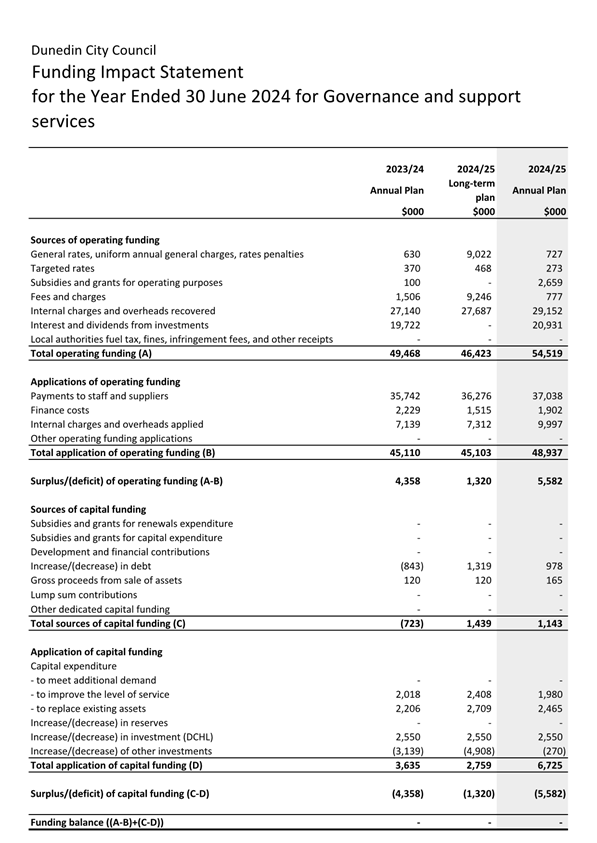
|

|
Council
12 March 2024
|

|

|
Council
12 March 2024
|
Dunedin Railways 2024/25
Department: Enterprise Dunedin
EXECUTIVE SUMMARY
1 The
purpose of this report is to defer the proposed decision on the future of
Dunedin Railways Limited (DRL) to the 9 year plan 2025-34 and direct Dunedin
City Holdings Limited (DCHL) to continue to fund up to $2.0M per annum to
maintain and operate DRL using the KiwiRail line and Taieri Gorge line to
Hindon until 30 June 2025.
2 On
31 January 2023, Council approved the retention of a train service through the
Taieri Gorge and noted that staff would provide further updates in time for the
10 year plan 2024-34. On 27 February 2024 Council approved the preparation of
an Annual Plan 2024/25 for community consultation followed by a 9 year plan
2025-34.
3 Since
the Council resolution to separate operational above-rail services and
below-rail maintenance several challenges have been identified. Advice from
Deloitte has indicated that additional regulatory compliance and costs would
eventuate in separating above rail services and below maintenance and therefore
this option is longer recommended.
4 An
economic impact assessment on the possible extension of the Taieri Gorge to the
Otago Central Rail Trail was produced for the Otago Central Rail Trail Trust
(OCRTT) by Benje Patterson People and Places in October 2023.
5 This
report, Economic Impact of a Taieri Gorge Extension to the Otago Central
Rail Trail followed two previous reports prepared by Mr Patterson for
Dunedin Council in relation to rail usage through the Taieri Gorge:
a) Dunedin
Railways - Economic Impacts on Dunedin’s Economy report (March 2020).
b) Dunedin
Railways - The Economic Impacts of Future Options report (September 2021).
6 MartinJenkins
was commissioned to undertake a peer review of the three Benje Patterson
reports. They concluded the timing and use of economic impact assessment
methodology makes it difficult to compare the relative costs and benefits of
using the Taieri Gorge corridor for either rail, cycling or walking.
7 As
a result, staff propose to undertake further work to compare the continued use
of the Taieri Gorge for rail services with options
including cycling or walking. This work would be carried out independently
using cost benefit analysis and brought back to Council in advance of the 9
year plan 2025-34.
8 In
order to meet the future visitor demand for DRL particularly the cruise market,
DCHL will need to continue to maintain the current hibernated service for the
2024/25 summer period.
RECOMMENDATIONS
That the Council:
a) Defers the proposed
decision on the future of Dunedin Railways to the 9 year plan 2025-34.
b) Directs Dunedin City
Holdings Limited to continue to fund up to $2.0M per annum for maintaining and
operating Dunedin Railways Limited using the KiwiRail line and Taieri Gorge
line to Hindon until 30 June 2025.
c) Directs staff to
prepare an options assessment of rail, cycling and walking in advance of the 9
year plan 2025-34.
d) Notes the report will
also include governance options and will align with any proposals in the
Council’s Draft Investment Plan.
e) Notes this work will
include liaison with various groups interested in the future use of the rail
corridor.
BACKGROUND
9 On
6 April 2020, Council instructed DCHL to hibernate DRL as a result of the
Covid-19 pandemic while potential sustainable options for the future were
identified and evaluated.
10 In a report
to Council on 23 November 2021, Council directed DCHL to continue to fund up to
$2.4M per annum for maintaining and operating DRL using the KiwiRail line and Taieri
Gorge line to Hindon until 30 June 2024:
Moved (Cr Sophie Barker/Cr
Steve Walker):
That the
Council:
a) Directs Dunedin City Holdings Limited to continue
to fund up to $2.4M per annum for maintaining and operating Dunedin Railways
Limited using the KiwiRail line and Taieri Gorge line to Hindon until 30 June
2024.
b) Approves Dunedin City Holdings Limited incurring a
one-off cost of $400k in 2021/22 for developing an alternative storage and
workshop facility for Dunedin Railways Limited.
c) Notes that staff
would continue supporting the Otago Central Rail Trail Trust to develop a
feasibility study on the possible options for the Otago Central Rail Trail
between Middlemarch and Wingatui.
d) Notes
that staff would report back to Council on options for the long-term
operations and governance of Dunedin Railways Limited as part of the 10 year
plan 2024-34.
Division
The Council voted by division:
For: Crs
Sophie Barker, David Benson-Pope, Rachel Elder, Doug Hall, Carmen Houlahan,
Marie Laufiso, Mike Lord, Jim O'Malley, Jules Radich, Chris Staynes, Steve
Walker, Andrew Whiley and Mayor Aaron Hawkins (13).
Against: Cr Lee
Vandervis (1).
Abstained: Nil
The division was declared CARRIED by 13 votes to 1.
Motion carried (CNL/2021/195).
11 Since this
time DRL has entered into a charter service agreement with Pounamu Tourism Group.
Under this arrangement DRL has operated services through the Taieri Gorge
during 2022/23 and 2023/24 targeted to the cruise market. Public excursions
have also been operated during this period.
12 On 31
January 2023 Council resolved to retain a train service through the Taieri
Gorge.
Moved (Cr Sophie Barker/Cr
Mandy Mayhem):
That the Council:
a) Approves
the retention of a train service through the Taieri Gorge.
b) Approves
the separation of above-rail operations and below-rail maintenance in any
future Dunedin Railways Limited model.
c) Authorises
the Chief Executive Officer to seek proposals from potential operators for
above and below-rail services along the Taieri Gorge.
d) Notes
that staff will provide further updates to Council on these matters in time
for the 10-year plan 2024-34.
Division
The Council voted by
division.
For: Crs
Bill Acklin, Sophie Barker, David Benson-Pope, Christine Garey, Kevin Gilbert,
Carmen Houlahan, Marie Laufiso, Cherry Lucas, Mandy Mayhem, Jim O'Malley,
Steve Walker, Andrew Whiley and Mayor Jules Radich (13).
Against:
Crs Lee Vandervis and Brent Weatherall (2).
Abstained: Nil
The division was declared
CARRIED by 13 votes to 2.
Motion carried
(CNL/2023/019)
Lease Arrangements
13 In April
2020 DCHL became the sole shareholder in DRL after purchasing the Otago
Excursion Train Trust’s (OETT) 27.97% holding.
14 The Taieri
Gorge Rail corridor, bridges, and tunnels are owned by the New Zealand Railways
Corporation (NZRC) who lease them to KiwiRail, who in turn sublease the
corridor to DRL for $1 per annum.
15 Although
NZRC owns the corridor, bridges, and tunnels, DRL has responsibility for
maintenance of the corridor, bridges, and tunnels. DRL owns the railway
track, sleepers, and other railway infrastructure (fastening, ballast, poles,
pylons, and signalling equipment).
16 The current
lease between DCC and KiwiRail is for 40 years (less one day) with one right of
renewal for another 40 years (less one day). Subject to renewal on 31
December 2030 the lease has an end date of 30 December 2070.
17 Under the
current lease DRL is not required to operate a railway. However, NZRC and
KiwiRail approval is required for any use of the corridor other than a
railway. Further details of the lease arrangements, ownership and health
and safety are set out in Attachment A.
DISCUSSION
18 Since
Council’s 31 January 2023 resolution, staff have sought further advice
from Deloitte to understand the implications of separating above rail
operations and below rail maintenance.
19 Deloitte
noted the following disadvantages with this option:
a) The
NZTA requirements would be more onerous.
b) There would
be additional compliance costs, including:
· Governance.
· Administrative.
· Accounting,
financial reporting and statutory auditing.
· Management.
· The
need for a contract between the respective entities covering the commercial
aspects of the arrangement/use of asset.
20 Deloitte
have advised this approach would result in further regulatory compliance and
additional costs and therefore the option to separate above rail services and
below rail maintenance is longer recommended.
Economic
Impact Reports – (Attachments B, C and D)
21 The three
Economic impact reports are attached even though they have a confidential
watermark, the reports are public documents.
22 A report Economic
impact assessment on the possible extension of the Taieri Gorge to the Otago
Central Rail Trail was produced for the Otago Central Rail Trail Trust
(OCRTT) by Benje Patterson People and Places (Mr Patterson) in October 2023.
23 This report
followed two previous reports prepared by Mr Patterson in relation to rail
usage through the Taieri Gorge:
a) The
March 2020 Dunedin Railways-Economic Impacts on Dunedin’s Economy
report prepared for Dunedin City Council.
b) The
September 2021 Dunedin Railways – The Economic Impacts of Future
Options report prepared for Dunedin City Council.
24 The three
reports are included in Attachments B-D of this report.
Review of Economic Impact Assessments
25 A peer
review of the three reports prepared by Mr Patterson was undertaken by
MartinJenkins, see Attachment E. The intention of the review was to
develop a better understanding of the methodology and assumptions used across
all three reports which were produced at different times. MartinJenkins
concluded:
a) Overall,
the individual analyses and underlying methods used in each of the reports are
based on accepted economic principles and methods.
b) But when
considered together there are some inconsistencies in approach that make direct
comparison difficult.
c) In
some instances, there was limited evidence or justification regarding some key
inputs and assumptions could have been more clearly stated and validated.
d) The
omission of relevant factors set out elsewhere in this report, specifically the
exclusion of the wider direct and indirect economic impacts of DRL’s
capital and operational expenditure, underestimate the total economic impact of
DRL.
e) Further,
the exclusion of employment impacts in DRL reports and their inclusion in the
impact of the trail extension, makes the reports incomparable.
f) The
Taieri Gorge cycle track extension analysis acknowledges that it does not
include any assessment of the costs of removing the existing rail track and
establishing the cycle track.
g) These
differences in approach and method make it difficult to make direct comparisons
between the assessments.
h) More
generally, the economic impact analysis reports should not be confused with
evaluative methods like cost benefit analysis where the economic benefits
(among others) would be weighed against investment costs and other opportunity
costs to estimate the return on investment.
26 DRL have
continued to undertake required maintenance to run charter services to Hindon and
operational activities including marketing and staffing. DRL estimate the
cost to continue these services at their current levels will be up to $2M for
2024/25.
2024/25 Annual Plan and Next Steps for the 9 year
plan 2025-34
27 As noted by
MartinJenkins the three economic impact assessment reports produced by Mr
Patterson make it challenging to compare the relative costs and benefits of
rail with cycling and walking options in the Taieri Gorge.
28 As a
result, further work will be undertaken to compare the continued use of the
Taieri Gorge for rail services with alternative options such as cycling or
walking. This work would be carried out independently by a consultant and
would take a broad approach that will include a cost benefit analysis.
29 This analysis
will consider a wide range of options including but not limited to:
· The use of
the Taieri Gorge and rail corridor for rail services.
· Use
of the Taieri Gorge rail corridor for cycling and walking.
· Use
of the Taieri Gorge corridor for rail and other areas of the Taieri Gorge for
cycling and walking.
30 The
consultant would work with various interested groups in preparing advice for
Councillors to consider as part of the 9 year plan process. These groups
would include (but are not limited to) the Otago Excursion Train Trust, Project
Steam, Otago Central Rail Trail Trust, and the Dunedin Tracks Network
Trust.
31 The two
community boards would be key contributors to this work.
32 At the same
time, staff would review governance options for ongoing operation of the train
to ensure that the advice provided to Council was aligned to any proposals in
the Council’s draft Investment Plan that will also be considered and
consulted on as part of the 9 year plan.
33 Enterprise
Dunedin staff will work with the local Strath Taieri community to look at
opportunities in Middlemarch and surrounds for the development of further
tourism product were the train service to resume to the village on a regular
basis.
34 In order to
meet the future visitor demand for DRL (particularly the cruise market), DCHL
would need to maintain the current hibernated level of service for the 2024/25
summer period.
35 This would
continue the current arrangements whereby DCHL funds up to $2.0m per annum for maintaining and operating Dunedin
Railways Limited using the KiwiRail line and Taieri Gorge line to Hindon until
30 June 2025.
OPTIONS
Option One – Recommended Option - Continue with the
DCHL model until 30 June 2025 and undertake evaluation of options for use of
Taieri Gorge
36 This option
would continue the current arrangements whereby DCHL funds up to $2.0m for the
operation and maintenance of the DRL service using the national rail network
and Taieri Gorge to Hindon until 30 June 2025.
37 An
independent cost benefit analysis would be undertaken to compare the continued
use of the Taieri Gorge for rail services with alternative use such as cycling
or walking. The consultant will engage with a wide range of stakeholders
on this work which would inform advice to Council in advance of public
consultation as part of the 9 year plan 2025-2034.
38 Staff will
look at options for ongoing governance for DRL aligned to any decision of
Council in their draft Investment Plan.
39 Enterprise
Dunedin staff will look at opportunities for developing additional tourism
product in Middlemarch to strengthen the tourism offering for domestic and
international visitors.
Advantages
· Allows the
continued operation of the DRL service, maintenance of assets and regulatory
requirements to be met.
· Retains an
important visitor attraction in the short term while not constraining future
decision making on the long-term use of the Taieri Gorge.
· Maintains the
current rail service provided by DCHL with the potential for costs being
partially offset by passenger revenue.
· Allows time for a
comprehensive analysis on the costs and benefits of continued use of the
Taieri Gorge corridor for rail services with other options such as cycling and
walking (or combination of rail, cycling and walking).
· Allows time for
OCRTT to complete their feasibility study on options for cycle trail extensions
from Middlemarch to Wingatui.
· Allows time for
OETT to further develop their business case on future rail use of the Taieri
Gorge.
Disadvantages
· Requires
investment of up to $2.0M per annum by DCHL in maintenance and operations until
30 June 2025.
· Continued
constrained economic benefit to the city due to the operation of hibernated
rail services.
· May
require additional investment by DCHL to maintain rail infrastructure from
Hindon to Middlemarch to 30 June 2025.
· Ongoing
hibernation may impact on the brand value of DRL as a product and
attractiveness of Dunedin as a visitor destination.
Option Two – Discontinue Funding
40 Under this
option (which was also presented to Council on 23 November 2021) staff would
prepare further advice to discontinue the use of the Taieri Gorge and report
back to Council.
Advantages
· Allows
consideration of alternative uses of the Taieri Gorge.
· Less
investment may be required than maintaining infrastructure tracks and
structures from Wingatui to Middlemarch.
Disadvantages
· No
interim operation of the DRL service, loss of a tourism product and
attractiveness of Dunedin as a visitor destination.
· Constrains
future decision making and public consultation on the future use of the Taieri
Gorge corridor.
· Will
still likely require some investment by DCHL for the maintenance of the rail corridor,
bridges, and tunnels under the sublease with NZRC and KiwiRail without the
opportunity to generate revenue.
· May
impact and defer future maintenance costs should a service be reinstated to
meet increasing visitor demand in the future.
NEXT STEPS
41 If Council
approves the recommended option staff will prepare a scope of work and then
engage a consultant to undertake the review of the Taieri Gorge for rail
services, cycling and walking.
42 The work
will be added to the forward work programme for the Strategy, Planning and
Environment Committee to ensure Councillors are kept up-to-date with the
progress of the work.
43 A report
will be prepared in time for Council to consider options for consultation with
the community as part of the 9-year plan 2025-34.
Signatories
|
Author:
|
Fraser Liggett - Economic Development Programme Manager
|
|
Authoriser:
|
Sandy Graham - Chief Executive Officer
|
Attachments
|
|
Title
|
Page
|
|
⇩a
|
Summary of Leasing,
Ownership and Health and Safety Matters for the Taieri Gorge Corridor
|
219
|
|
⇩b
|
Dunedin Railways-
Economic Impacts on Dunedin's Economy March 2020
|
224
|
|
⇩c
|
Dunedin Railways - The
Economic Impacts of Future Options September 2021
|
233
|
|
⇩d
|
Economic Impacts of a
Taieri Gorge Extension to the Otago Central Rail Trail October 2023
|
250
|
|
⇩e
|
MartinJenkins Peer
Review of Economic Impact Assessment Reports
|
267
|
|
SUMMARY OF CONSIDERATIONS
|
|
Fit with purpose of Local Government
This decision enables democratic local
decision making and action by, and on behalf of communities.
|
|
Fit with strategic framework
|
|
Contributes
|
Detracts
|
Not applicable
|
|
Social Wellbeing Strategy
|
✔
|
☐
|
☐
|
|
Economic Development Strategy
|
✔
|
☐
|
☐
|
|
Environment Strategy
|
☐
|
☐
|
✔
|
|
Arts and Culture Strategy
|
☐
|
☐
|
✔
|
|
3 Waters Strategy
|
☐
|
☐
|
✔
|
|
Spatial Plan
|
☐
|
☐
|
✔
|
|
Integrated Transport Strategy
|
✔
|
☐
|
☐
|
|
Parks and Recreation Strategy
|
✔
|
☐
|
☐
|
|
Other strategic projects/policies/plans
|
☐
|
☐
|
✔
|
The operation of Dunedin Railways Limited and its assets
contributes to the Dunedin 2013-23 Economic Development Strategy theme of a
‘Compelling Destination’ through the tourism service which it
provides. Dunedin Railways Limited operations also contribute to the social
wellbeing strategy by supporting stronger communities.
|
|
Māori Impact Statement
Representatives from Te Runaka o Otakou and Kati Huirapa
Runaka ki Puketeraki have previously been engaged in discussions and
workshops regarding Dunedin Railways Limited.
|
|
Sustainability
Representatives from Council’s Zero Carbon Team have
been engaged and involved in the future options on Dunedin Railways Limited.
Dunedin Railways Limited have developed an emissions reduction action plan
that states while some operational efficiency savings could be achieved in
the use of diesel fuel, this would be minor, and more significant changes
would be required to achieve substantial gross emissions reduction.
|
|
LTP/Annual Plan / Financial Strategy /Infrastructure
Strategy
The options proposed in the report will result in a report
for Councillors to consider as part of the 9 year plan.
|
|
Financial considerations
DCHL have previously estimated the financial support for
Dunedin Railways Limited will be up to $2.4M per annum until 30 June 2024. DRL
estimate up to $2M may be required for 2024/25.
|
|
Significance
The decision to maintain the current arrangements for a
further year is considered low in terms of Council’s Significance and
Engagement Policy. The decision on the future of Dunedin Railways limited
will be further considered as part of the 9 Year Plan 2025-34.
|
|
Engagement – external
The report that will be prepared for the 9 year plan will
involve engagement with a wide range of external groups.
|
|
Engagement - internal
The Finance, Legal, Transport, Zero Carbon, Procurement
and Māori Partnerships have been engaged on the future options for
Dunedin Railways Limited.
|
|
Risks: Legal / Health and Safety etc.
Risks have been identified in the main body of this
report.
|
|
Conflict of Interest
There are no known conflicts of interest.
|
|
Community Boards
Matters in this report will be of particular interest to
the Mosgiel-Taieri and Strath Taieri boards who have a direct interest in
future plans for the Taieri Gorge part of the DRL service. Both the West
Harbour and Waikouaiti Coast Community Boards also have an interest in the
future operation of the train .
|
|

|
Council
12 March 2024
|
DCC Grants - Update Report
Department: Corporate Policy
EXECUTIVE SUMMARY
1 This
report provides an update about the Dunedin City Council’s (DCC) Grants
Review.
2 It
outlines the next steps in the Grants Review work programme taking into account
Council’s decision to proceed with an annual plan for 2023/2024, followed
by a 9-year plan 2025-2034 (9YP).
RECOMMENDATIONS
That the Council:
a) Notes the next steps
in the DCC’s Grants Review work programme.
BACKGROUND
3 DCC
grants support the well-being of Ōtepoti Dunedin residents through
investment in local community activities and events, and supporting local
groups who want to make a positive contribution to the city.
4 A
grants workstream was established as part of 10-year plan 2024-2034 (10YP)
preparations. This workstream has collated and identified a range of DCC grant categories, budgets and expenditure
in order to inform the 10YP process.
5 In
September 2023, Council was provided with an overview of 10 DCC grant
categories, budgets, and expenditure. The overview report noted the need to
better understand the wider granting context and Council’s role, noting
that the DCC’s Grants Management Policy (the Grants Policy) was due to be
reviewed in 2024.
6 In
February 2024, Council agreed to proceed with an annual plan for 2023/2024,
followed by a nine-year plan (9YP).
7 This
report outlines the work undertaken since September 2023. It details the next
steps in the Grants Review work programme, taking into account the annual plan
process for 2024/2025, and the review of the Grants Policy.
DISCUSSION
A summary of work undertaken since September 2023
8 The
initial review of DCC’s grant information suggests that further
assessment is required to establish whether:
a) some
grants need to increase in order to meet short-to-medium term community need;
b) grants
align with original intent and purpose and
c) whether
grants meet medium-to-longer term need (where appropriate.)
9 Other
factors to consider are:
a) grant
criteria. For example, whether grants to maintain community assets such as
community halls, include factoring in the increase cost in building materials,
labour or inflation;
b) opportunities
to streamline grants administration, monitoring and reporting.
10 The above
work will inform the Grants Policy Review. This is expected to take 12 months
to complete. The review findings in turn, will be integrated into the
DCC’s 9YP.
Annual Plan Considerations
11 An updated
list of Grants budgets will be circulated on 12 March 2024 as these are still
being finalised. The updated figures reflect some minor changes from the
September 2023 numbers which will be explained by staff.
12 A
budget of $13,372,512 has been allocated for all grants and SLAs in the draft
Annual Plan. This includes an unallocated amount of $100,000 due to several
expired grants. A separate report discusses the approach to the Tuhura Otago
Museum Grant.
13 The Grants
Policy Review and processes will provide an opportunity to align grants with
the DCC’s Strategic Refresh work programme and the DCC’s Level of
Services, for 9YP preparations.
14 This
approach will provide the community with assurance that the DCC’s grant
funding will continue, while the review of the Grants Policy is underway.
OPTIONS
15 As this
report is for noting, there are no options.
NEXT STEPS
16 The next steps are to define the Grants Review process over
the next 12 months that aim to:
· produce
a cohesive picture of grants that are currently being delivered from across the
DCC;
· understand
the community’s short-to-medium term needs
and priorities;
· identify
the Council’s role in granting along with central government and
philanthropic funding;
· identify
how grants contribute to wellbeing outcomes for Ōtepoti Dunedin and
· align
grants with Levels of Service and DCC’s Strategic Framework.
17 Grants
Management Policy and Review will be reported via the Strategy, Planning and
Engagement Committee (SPEC). Regular reports will be included in SPEC’s
forward work programme.
18 An options
report will feed into the 9YP in time for consultation with the community.
Signatories
|
Author:
|
Gina Hu'akau - Corporate Policy Manager
|
|
Authoriser:
|
Nicola Morand - Acting Manahautū (General Manager
Māori Partnerships and Policy)
|
Attachments
There are no attachments
for this report.
|
SUMMARY OF CONSIDERATIONS
|
|
Fit with purpose of Local Government
This report supports democratic local
decision making and action by, and on behalf of communities. This report
supports future decisions about the social, economic, environmental and
cultural well-being of communities in the present and for the future.
|
|
Fit with strategic framework
|
|
Contributes
|
Detracts
|
Not applicable
|
|
Social Wellbeing Strategy
|
✔
|
☐
|
☐
|
|
Economic Development Strategy
|
✔
|
☐
|
☐
|
|
Environment Strategy
|
✔
|
☐
|
☐
|
|
Arts and Culture Strategy
|
✔
|
☐
|
☐
|
|
3 Waters Strategy
|
☐
|
☐
|
✔
|
|
Spatial Plan
|
☐
|
☐
|
✔
|
|
Integrated Transport Strategy
|
☐
|
☐
|
✔
|
|
Parks and Recreation Strategy
|
✔
|
☐
|
☐
|
|
Other strategic projects/policies/plans
|
✔
|
☐
|
☐
|
The review of the DCC’s grants contributes to many
of the objectives and priorities of the DCC’s strategies.
|
|
Māori Impact Statement
The distribution of DCC grants has been used to support
and give effect to the Council’s commitment to Māori and to its
obligations under the Treaty of Waitangi. The adoption of Te Taki Haruru
outlines the DCC’s commitment to mana whenua. Te Taki Haruru will guide
the grants review including assessing the potential impacts that grants can
have for Māori. During the grants management policy review, consultation
with mana whenua and and mātā waka will take place.
|
|
Sustainability
DCC grants have been used to support and give effect to
the Council’s commitment to sustainability. In reviewing the grant
policy, the Zero Carbon Policy as well as Council’s commitment to
sustainability more broadly will be included in the process.
|
|
LTP/Annual Plan / Financial Strategy /Infrastructure
Strategy
Decisions related to the upcoming 10 Year Plan will be
taken into consideration in the grants review of the policy, and in relation
to granting budgets.
|
|
Financial considerations
Financial considerations will be taken into consideration
in the grants review of the policy, and in relation to granting budgets.
|
|
Significance
There are no significant matters
|
|
Engagement – external
A review of the grants management policy will require
engagement with the wider community
|
|
Engagement - internal
A review of the grants management policy will require
engagement with internal staff teams. In preparing granting information for
the upcoming 10 Year Plan, the grants workstream included representatives
from Council and from across key staff teams involved with grants.
|
|
Risks: Legal / Health and Safety etc.
There is legal, reputational, financial and strategic risk
if the DCC grants are not delivered or managed well. The grants review work
programme will actively manage these risks by ensuring any recommendations
for change, take into account the role of the DCC in managing public
resources well.
|
|
Conflict of Interest
There are no known conflicts of interest.
|
|
Community Boards
Community Boards will be engaged with as part of the grants
policy review.
|
|

|
Council
12 March 2024
|
Economic Development - Operating Budget 2024/25
Department: Civic
EXECUTIVE SUMMARY
1 This
report provides an overview of the operating expenditure budgets for the Annual
Plan 2024/25 for the Economic Development Group, as shown at Attachment
A. A draft funding impact statement is shown at Attachment B. The
following activities are provided for:
· Economic
development
· Marketing
Dunedin
· Dunedin
i-site visitors’ centre
2 A
schedule of proposed fees and charges for the 2024/25 year is also presented at
Attachment C.
RECOMMENDATIONS
That the Council:
a) Adopts for the
purposes of developing the Annual Plan 2024/25 and consulting with the
community:
i) The draft 2024/25 operating budget for the Economic
Development Group as shown/amended at Attachment A.
ii) The draft 2024/25 fees and charges schedules for the
Economic Development Group as shown/amended at Attachment C.
operating budgets
Revenue
Rates
3 Rates
revenue has increased in the Economic Development Group by $240k, 4.5%.
External Revenue
4 External
Revenue has increased by $40k, 6.9% due to an increase in expected merchandise
sales.
Grants and Subsidies Revenue
5 Grants
and subsidies operating revenue has decreased by $77k, 100%. A subsidy
from NZTA NZTA Waka Kotahi of $77k relating to the central city upgrade is not
required in the 2024/25 year.
6 Grants
and subsidies capital revenue has decreased by $200k, 100%. In 2023/24
Council received a one-off capital grant towards the Dunedin Visitor Centre
i-site refresh.
Expenditure
Personnel costs
7 Personnel
costs have increased by $325k, 13.5%. This includes a general salary increase, and
one additional FTE position transferred from another department of
Council.
Consumables and general costs
8 Consumables
and general costs have decreased by $152k, 13.2% due to removal of the central
city marketing budget.
FEES AND CHARGES
9 Fees
and charges for activities in the Economic Development Group remain unchanged
from 2023/24.
Signatories
|
Authoriser:
|
Leanne Mash - General Manager Business and Community
Engagement
|
Attachments
|
|
Title
|
Page
|
|
⇩a
|
Economic Development
Income Statement
|
291
|
|
⇩b
|
Economic Development
FIS
|
292
|
|
⇩c
|
Draft Fees and Charges
2024/25 Economic Development
|
293
|
|
SUMMARY OF CONSIDERATIONS
|
|
Fit with purpose of Local Government
This decision enables democratic local
decision making and action by, and on behalf of communities, and promotes the
social, economic, environmental and cultural well-being of communities in the
present and for the future.
|
|
Fit with strategic framework
|
|
Contributes
|
Detracts
|
Not applicable
|
|
Social Wellbeing Strategy
|
☐
|
☐
|
☐
|
|
Economic Development Strategy
|
✔
|
☐
|
☐
|
|
Environment Strategy
|
☐
|
☐
|
☐
|
|
Arts and Culture Strategy
|
✔
|
☐
|
☐
|
|
3 Waters Strategy
|
☐
|
☐
|
☐
|
|
Spatial Plan
|
☐
|
☐
|
☐
|
|
Integrated Transport Strategy
|
☐
|
☐
|
☐
|
|
Parks and Recreation Strategy
|
☐
|
☐
|
☐
|
|
Other strategic projects/policies/plans
|
✔
|
☐
|
☐
|
The Economic Development Group activities primarily
contribute to the objectives and priorities of the above strategies.
|
|
Māori Impact Statement
Council budgets impact broadly across all Dunedin
communities including Māori. The adoption of Te Taki Haruru –
Māori Strategic Framework signals Council’s commitment to mana
whenua and to its obligations under the Treaty of Waitangi. Mana whenua
and Māori will have the opportunity to engage in the Annual Plan 2024/25
consultation process.
|
|
Sustainability
The Annual Plan 2024/25
is not proposing any changes to that provided for
in the 10 year plan. Major issues and implications for sustainability
are discussed in the Infrastructure Strategy and financial resilience is
discussed in the Financial Strategy of the current 10 year plan 2021-31.
|
|
LTP/Annual Plan / Financial Strategy /Infrastructure
Strategy
This report provides draft budgets for the Economic Development
Group for inclusion in the Annual Plan 2024/25.
|
|
Financial considerations
Financial considerations are detailed in the report.
|
|
Significance
The 10 year plan 2021-31 budgets were considered
significant in terms of the Council’s Significance and Engagement
Policy, and were consulted on. Variations to those budgets are
discussed in this report. The draft budgets will be included in the
Annual Plan 2024/25 and will be consulted on.
|
|
Engagement – external
There has been no external engagement in developing the
draft budgets for the Economic Development Group.
|
|
Engagement - internal
Staff and managers from across council have been involved
in the development of the draft budgets.
|
|
Risks: Legal / Health and Safety etc.
There are no identified risks.
|
|
Conflict of Interest
There are no known conflicts of interest.
|
|
Community Boards
Community Boards will have an opportunity to engage with
the Annual Plan 2024/25 consultation process.
|
|

|
Council
12 March 2024
|
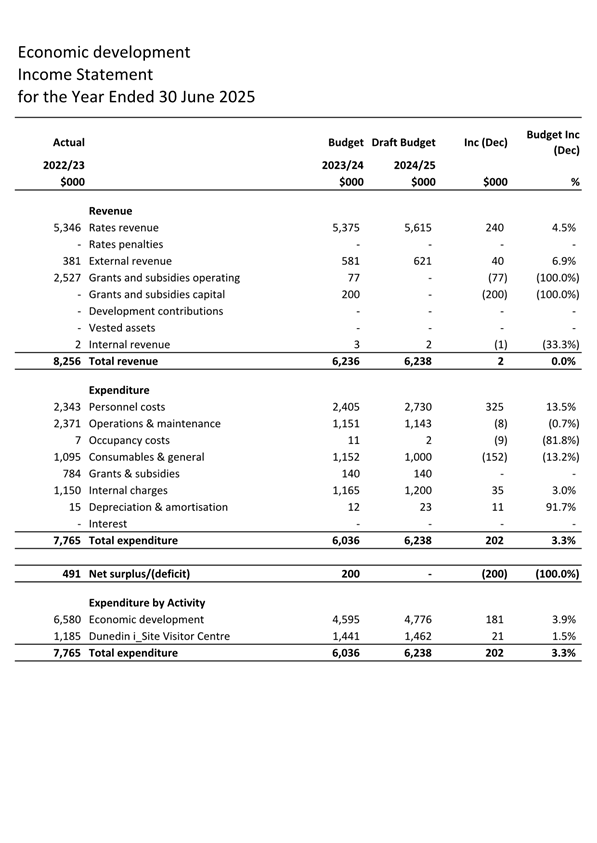
|

|
Council
12 March 2024
|
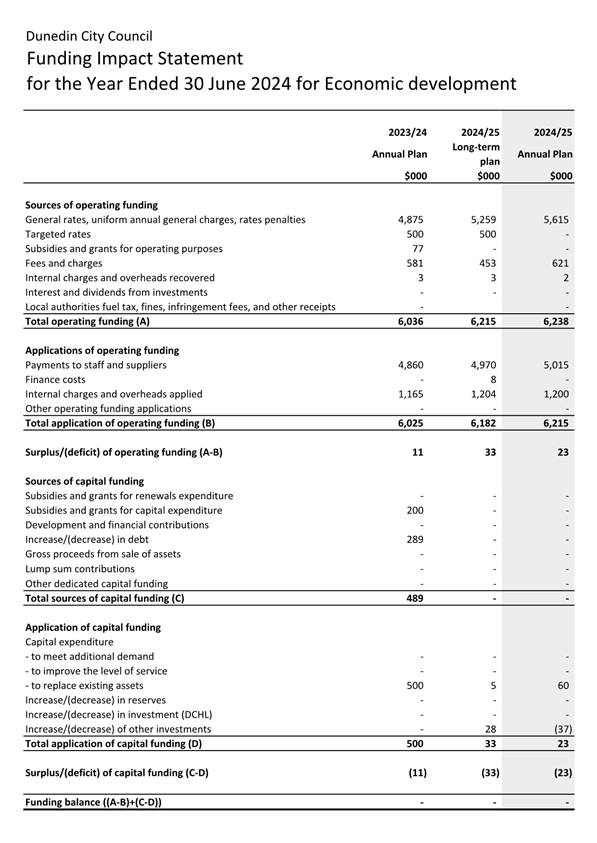
|

|
Council
12 March 2024
|
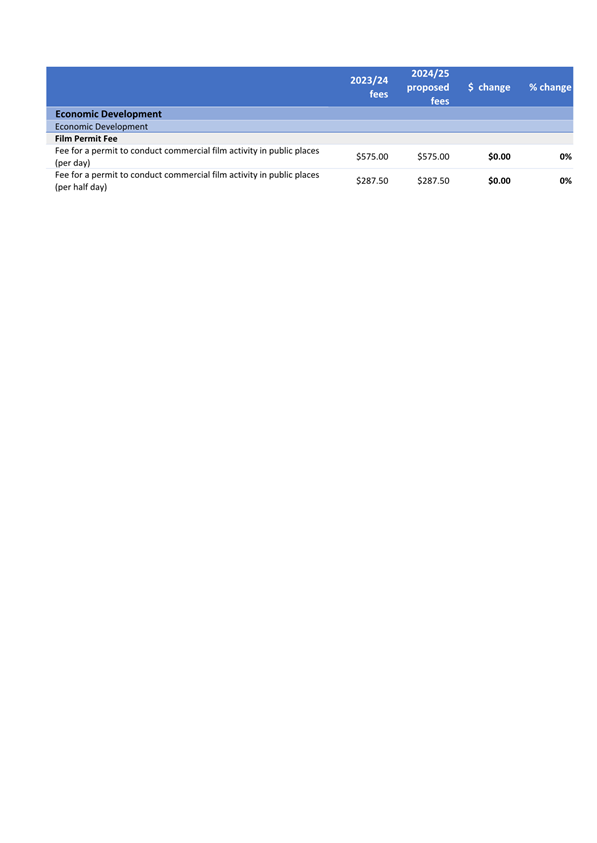
|

|
Council
12 March 2024
|
Galleries, Libraries and Museums - Operating Budget 2024/25
Department: Arts and Culture
EXECUTIVE SUMMARY
1 This
report provides an overview of the operating expenditure budgets for the Annual
Plan 2024/25 for the Galleries, Libraries and Museums Group, as shown at
Attachment A. A draft funding impact statement is shown at Attachment
B. The following activities are provided for:
· Dunedin
Public Libraries and City of Literature
· Dunedin
Public Art Gallery (DPAG),
· Lan
Yuan Chinese Garden
· Toitū
Otago Settlers Museum (Toitū),
· Creative
partnerships
· Olveston
Historic Home
· Otago
Museum Levy
2 A
schedule of proposed fees and charges for the 2024/25 year is also presented at
Attachment C.
RECOMMENDATIONS
That the Council:
a) Adopts for the
purposes of developing the Annual Plan 2024/25 and consulting with the
community:
i) The draft 2024/25 operating budget for the Galleries,
Libraries and Museums Group as shown/amended at Attachment A.
ii) The draft 2024/25 fees and charges schedules for the
Galleries, Libraries and Museums Group as shown/amended at Attachment C.
operating budgets
Revenue
Rates
3 Rates
have increased overall in the Galleries, libraries and museums group by $967k,
3.6%. This is due to cost increases and grants expenditure transferred from the
Community Development activity.
External Revenue
4 External
revenue has increased by $160k, 9.1%. The main changes incorporate the
following:
a) An
increase in DPAG, Toitū and Lan Yuan revenue of $85k due to increased shop
sales, functions and facility hire and increased admissions revenue at Lan
Yuan.
b) An increase
in Olveston revenue of $77k due to increased admissions, merchandise sales and
event revenue.
Grants and Subsidies Revenue
5 Grants
and subsidies revenue has increased by $163k. The increase relates to:
a) the
transfer of $93k grant revenue, from Creative New Zealand (CNZ), previously
received by Community Development,
b) a
$64k grant received to produce an Olveston Book, and
c) a
$7k increase in funding from CNZ to the Art Gallery for International and NZ
Artist residency.
Expenditure
Personnel costs
6 Personnel
costs have increased by $553k, 5.0%. This includes a general salary increase
and an increase in staffing for the opening of the South Dunedin Community
Complex from May 2025.
Consumables and general costs
7 Consumables
and general costs have increased by $210k, 16.1%. The main changes incorporate
the following:
a) Increased
stock purchases and catering at DPAG, Toitū and Olveston of $157k which
are recovered through external revenue.
b) An increase
in the Dunedin Public Libraries budget of $51k due mainly to additional subscription
fees and 10-year anniversary celebrations for City of Literature.
Grants & Subsidies
8 Grants
and subsidies costs have increased by $550k, 10.9% due to the following:
a) A
transfer of budget ($501k) from Community Development, $93k of which is funded
by Creative New Zealand
b) Re-categorisation
of a $50k grant paid to Dunedin Dream Brokerage, previously coded to operations
and maintenance expenses.
c) No
provision has been included in the budget for an increase in the levy for the
Tūhura Otago Museum. A separate report on a funding approach for the
museum is on the agenda.
Internal
charges
9 Internal
charges have increased by $184k, 2.6% due to increased Corporate, Fleet and
Business Information Services charges.
Depreciation
10 Depreciation
has decreased by $224k, 14.5% reflecting certain Library assets becoming fully
depreciated.
FEES AND CHARGES
11 Fees and
charges remain largely unchanged with the exception of:
· Lan
Yuan Chinese Garden admission fees have increased by between 6%-11% ($0.80 -
$2.00) to reflect an increase in operational costs.
· Olveston
Historic Home fees and charges have increased by between 2% - 10% ($0.50-$5.00)
with an average increase of around 4%, due to increased costs. Some of
the 1 hour tour fees have been removed in order to simplify the tour options
and charging structure.
· Toitū
Otago Settlers Museum Archive/Collection queries fees have increased 2%
($1.50).
Signatories
|
Author:
|
Cam McCracken - Director DPAG, Toitū, Lan Yuan and
Olveston
|
|
Authoriser:
|
Jeanette Wikaira - General Manager Arts, Culture and
Recreation
|
Attachments
|
|
Title
|
Page
|
|
⇩a
|
Galleries, Libraries
and Museums Income Statement
|
299
|
|
⇩b
|
Galleries, Libraries
and Musems FIS
|
300
|
|
⇩c
|
Draft Fees and Charges
2024/25 - Galleries, Libraries and Museums
|
301
|
|
SUMMARY OF CONSIDERATIONS
|
|
Fit with purpose of Local Government
This decision enables democratic local
decision making and action by, and on behalf of communities, and promotes the
social, economic, environmental and cultural well-being of communities in the
present and for the future.
|
|
Fit with strategic framework
|
|
Contributes
|
Detracts
|
Not applicable
|
|
Social Wellbeing Strategy
|
☐
|
☐
|
☐
|
|
Economic Development Strategy
|
☐
|
☐
|
☐
|
|
Environment Strategy
|
☐
|
☐
|
☐
|
|
Arts and Culture Strategy
|
✔
|
☐
|
☐
|
|
3 Waters Strategy
|
☐
|
☐
|
☐
|
|
Spatial Plan
|
☐
|
☐
|
☐
|
|
Integrated Transport Strategy
|
☐
|
☐
|
☐
|
|
Parks and Recreation Strategy
|
☐
|
☐
|
☐
|
|
Other strategic projects/policies/plans
|
✔
|
☐
|
☐
|
The Galleries, Libraries and Museums Group activities
primarily contribute to the objectives and priorities of the above
strategies.
|
|
Māori Impact Statement
Council budgets impact broadly across all Dunedin
communities including Māori. The adoption of Te Taki Haruru – Māori
Strategic Framework signals Council’s commitment to mana whenua and to
its obligations under the Treaty of Waitangi. Mana whenua and Māori
will have the opportunity to engage in the Annual Plan 2024/25 consultation
process.
|
|
Sustainability
The Annual Plan 2024/25
is not proposing any changes to that provided for in the 10 year plan. Major
issues and implications for sustainability are discussed in the
Infrastructure Strategy and financial resilience is discussed in the
Financial Strategy of the current 10 year plan 2021-31.
|
|
LTP/Annual Plan / Financial Strategy /Infrastructure
Strategy
This report provides draft budgets for the Galleries, Libraries
and Museums Group for inclusion in the Annual plan.
|
|
Financial considerations
Financial considerations are detailed in the report.
|
|
Significance
The 10 year plan 2021-31 budgets were considered
significant in terms of the Council’s Significance and Engagement
Policy, and were consulted on. Variations to those budgets are
discussed in this report. The draft budgets will be included in the Annual
Plan 2024/25, and will be consulted on.
|
|
Engagement – external
There has been no external engagement in developing the
draft budgets for Galleries, Libraries and Museums Group.
|
|
Engagement - internal
Staff and managers from across council have been involved
in the development of the draft budgets.
|
|
Risks: Legal / Health and Safety etc.
There are no identified risks.
|
|
Conflict of Interest
There are no known conflicts of interest.
|
|
Community Boards
Community Boards will have an opportunity to present on
the draft Annual Plan 2024/25.
|
|

|
Council
12 March 2024
|
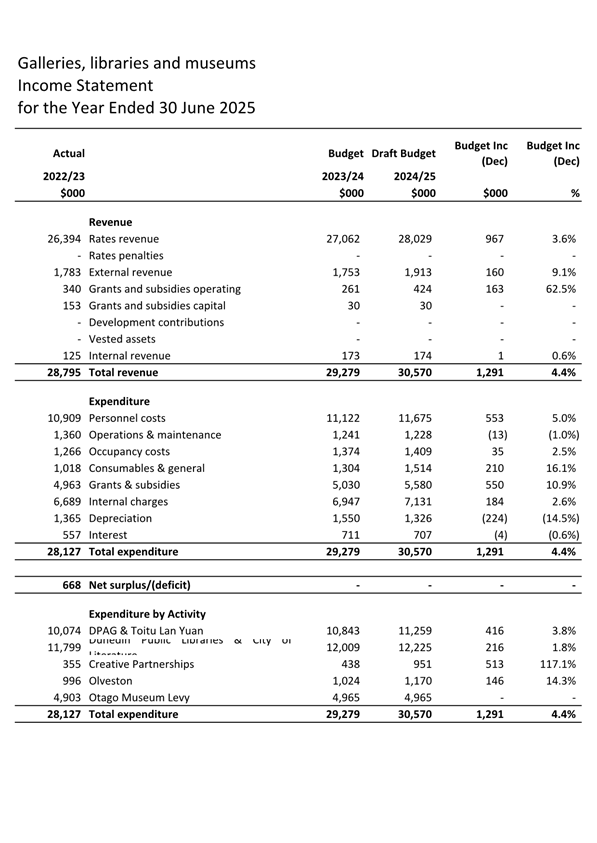
|

|
Council
12 March 2024
|
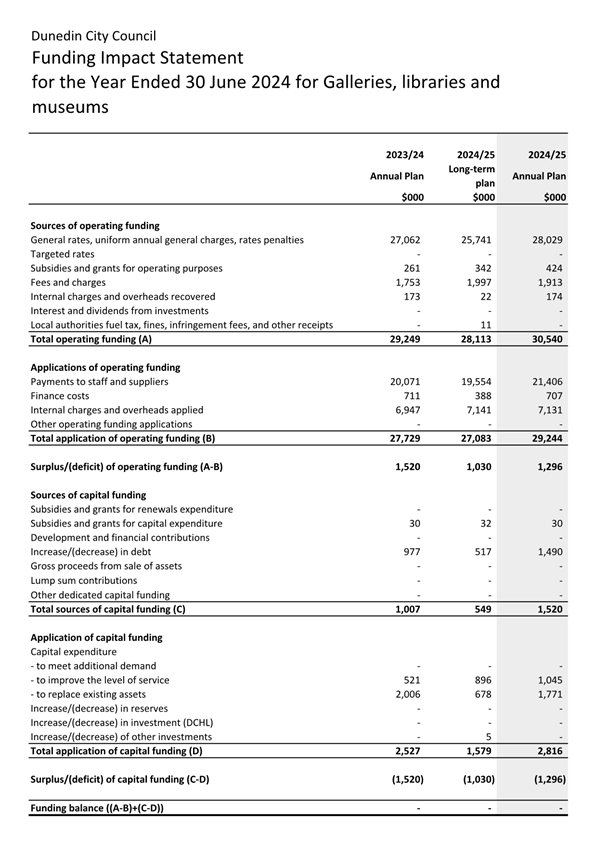
|

|
Council
12 March 2024
|
Tuhura Otago Museum - DCC Funding Approach
Department: Executive Leadership Team
EXECUTIVE SUMMARY
1 This
report provides background information in relation to the Otago Museum Trust
Board Act 1996 (the Act). In particular the sections of the legislation that
outline the calculation of the museum levy to be paid by the Dunedin City
Council (DCC).
2 The
report also provides a summary of the DCC levy that has been paid to Tūhura
– The Otago Museum (Otago Museum) over the previous 26 years since the
legislation was enacted.
3 The
report also outlines proposed next steps to be undertaken by DCC staff in collaboration
with Otago Museum. This work will seek to develop a plan with long term
sustainable options for supporting the museum.
RECOMMENDATIONS
That the Council:
a) Notes an options
report on the Otago Museum operating budget
requirements will be prepared in time for Annual Plan deliberations in May
2024.
b) Notes an options
report on the Otago Museum’s ongoing operating budget requirements will
be prepared for consideration as part of the DCC’s 9 Year Plan.
BACKGROUND
1 The
DCC has a commitment to provide opportunities to access and experience arts,
culture and heritage by viewing and experiencing collections held in safe and
quality environments. The DCC maintains and preserves a rich heritage of
stories, treasures and knowledge through the cultural facilities we own and
operate as well as through the support we provide to the Otago Museum.
2 The
DCC currently supports the Otago Museum by contributing to the management
and funding of the museum under the Otago Museum Trust Board Act 1996. In
particular, sections 16 and 17 of the Act relate to the process by which
contributing Council’s pay levies for the operation of the Otago
Museum.
3 The
DCC is one of four local authorities in Otago (Dunedin, Central Otago, Clutha
and Waitaki Councils) that contributes to the management and funding of the
museum under the Act.
4 The
museum levy for each contributing local authority is calculated in accordance
with s17 of the Act. This section outlines a method for apportionment of levies
between the contributing authorities. The initial schedule that was established
in 1996 was set in place for first 5 years after the Act was passed (July 1997
to July 2001).
5 Following
the first 5 years of the Act, the Act then made an allowance for the
contributing authorities to come to an apportionment funding agreement between
Councils. The Act also makes an allowance for if the contributing local
authorities failed to come to an agreement. In the event that Councils did not
come to an agreed approach, the Act sets out the default calculation method
under schedule 2 of the Act.
DISCUSSION
6 Historically
there has not been an agreed funding apportionment arrangement between the
relevant local authorities. Therefore, the default levy calculation mechanism
set out at schedule 2 of the Act has been applied.
7 The
DCC has currently received a draft annual budget from Otago Museum in
accordance with s15 (3) of the Act.
8 Over
the last 26 years the DCC has paid the levy in accordance with the Act. The
levy paid by DCC is over and above a standard CPI adjusted amount from the base
year (1997). This is in recognition of the importance of cultural heritage to
both our city and the region. The DCC also acknowledges the unique stories and
taonga (cultural artefacts) that the Otago Museum holds and shares for all of
Aotearoa New Zealand and the world.
9 The
total amount paid by the DCC to the Otago Museum over the last 26 years
(1997-2023) is outlined below.
|
DCC Levy
Calculation
Based on the CPI
adjusted amount from the base year (1997)
TOTAL (1997-2023)
|
Actual DCC Levy
Paid to Otago Museum
TOTAL (1997-2023)
|
|
$52,645,242
|
$88,034,414
|
10 The below
graph shows the calculated levy amount in blue (based on a CPI adjusted amount
from the base year of 1997); and the actual levy amount in red, paid by the DCC
to Otago Museum over the period from 1997 to 2023.
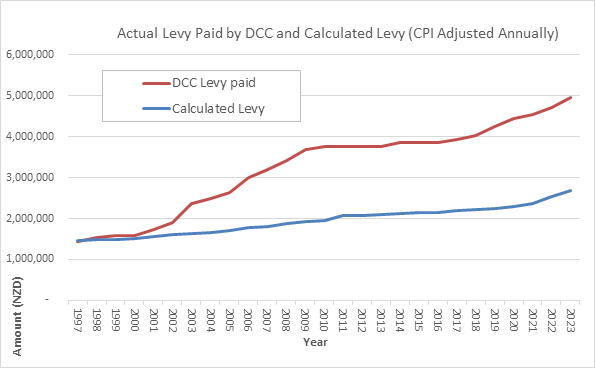
11 The DCC has
worked collaboratively with the museum over many years. The DCC has four
appointed members on the Otago Museum Board ensuring that there is aligned
strategic governance oversight between the DCC and the Museum. At a staff
level, senior management across both organisations meet on a regular basis to
discuss operational matters and to keep updated on proposed annual plan
budgets. However, for many years the Otago Museum has been seeking a more
consistent approach to its funding to provide certainty.
12 The Otago
Museum’s proposed 2024-25 draft budget includes an increase in the
DCC’s levy from $4,949,232m in 2023-24 to $5,162,124m in 2024-25. The
Otago Museum’s proposed budget is a 4.3% increase of $212,892.
13 This
increase has not been included in the DCC’s proposed annual plan budget
2024-25.
14 Under the
Act, the DCC may give notice in writing, objecting to the levy proposed by the
Otago Museum Board. This notice must be undertaken prior to 31 May and state
the grounds for DCC’s objection. The process following this notice is set
out in section 16 of the Act.
15 If the DCC
wishes to object, the following steps are to be taken:
a) The
DCC is to write to the Museum Board, no later than 31 May 2024, stating the
grounds of objection.
b) Within 14
days the Museum Board is to convene a meeting of all contributing authorities,
who are to be represented by at least one delegate. The meeting is to be held
no later than 1 month following 31 May 2024.
c) Within
14 days of this meeting, the delegates are required to make a recommendation to
their authority who are to inform the Board of such recommendations.
d) If an
agreement cannot be reached within 28 days of the meeting, the contributing
authorities may resolve that the total Levy be reduced to an amount not less
than the previous year.
NEXT STEPS
16 In the
short term the recommendation is that DCC staff work with Otago Museum to
discuss and understand the Otago Museum operating budget requirements. A report
with options will be presented to Council as part of the DCC’s Annual
Plan 2024-25 deliberations in May. This report would be prepared for
consideration in time to give written notice to Otago Museum (under section 16
of the Act) if Council decides to object to the proposed levy increase.
17 In the
medium term the recommendation is that staff work with Otago Museum to develop
a long term forecast of operating revenue and operating expenditure. This
information would form the basis of a sustainable funding mechanism to
provide the necessary certainty to both parties for how the DCC will continue
to support the Otago Museum. A report outlining the plan with options will be
prepared for consideration as part of the DCC’s 9 Year Plan.
18 OPTIONS There
are no options.
Signatories
|
Author:
|
Jeanette Wikaira - General Manager Arts, Culture and
Recreation
|
|
Authoriser:
|
Sandy Graham - Chief Executive Officer
|
Attachments
There are no attachments for
this report.
|
SUMMARY OF CONSIDERATIONS
|
|
Fit with purpose of Local Government
This decision enables democratic local
decision making and action by, and on behalf of communities, and promotes the
social, economic, environmental and cultural well-being of communities in the
present and for the future.
|
|
Fit with strategic framework
|
|
Contributes
|
Detracts
|
Not applicable
|
|
Social Wellbeing Strategy
|
☐
|
☐
|
☐
|
|
Economic Development Strategy
|
☐
|
☐
|
☐
|
|
Environment Strategy
|
☐
|
☐
|
☐
|
|
Arts and Culture Strategy
|
✔
|
☐
|
☐
|
|
3 Waters Strategy
|
☐
|
☐
|
☐
|
|
Spatial Plan
|
☐
|
☐
|
☐
|
|
Integrated Transport Strategy
|
☐
|
☐
|
☐
|
|
Parks and Recreation Strategy
|
☐
|
☐
|
☐
|
|
Other strategic projects/policies/plans
|
✔
|
☐
|
☐
|
Tūhura – The Otago Museum primarily contributes
to the objectives and priorities of DCC’s Arts and Culture Strategy.
|
|
Māori Impact Statement
As a cultural heritage institution, Tūhura –
The Otago Museum impacts broadly across all Dunedin communities including
Māori. The adoption of Te Taki Haruru – Māori Strategic
Framework signals Council’s commitment to mana whenua and to its
obligations under the Treaty of Waitangi. Mana whenua and Māori
will have the opportunity to engage in the Annual Plan 2024/25 consultation
process.
|
|
Sustainability
Major issues and implications for sustainability are
discussed in the Infrastructure Strategy and financial resilience is discussed
in the Financial Strategy of the current 10 year plan 2021-31.
|
|
LTP/Annual Plan / Financial Strategy /Infrastructure
Strategy
There are no immediate implications for the Annual Plan.
|
|
Financial considerations
An increase to Tūhura – The Otago
Museum’s 2024-25 funding levy would have budgetary implications for
Council.
|
|
Significance
The decision is assessed to be of low significance in
terms of the Council’s Significance and Engagement Policy.
|
|
Engagement – external
Relevant DCC staff have met and been in contact with
senior Museum representatives and financial advisors to the Museum.
|
|
Engagement - internal
Staff and managers from across council have been involved
in the development of this report.
|
|
Risks: Legal / Health and Safety etc.
There are no identified risks.
|
|
Conflict of Interest
There are no known conflicts of interests.
|
|
Community Boards
Tūhura – The Otago Museum is of interest to all
Community Boards in Dunedin.
|
|

|
Council
12 March 2024
|
Community and Planning - Operating Budget 2024/25
Department: Executive Leadership Team
EXECUTIVE SUMMARY
1 This
report provides an overview of the operating expenditure budgets for the Annual
Plan 2024/25 for the Community and Planning Group, as shown at Attachment
A. A draft funding impact statement is shown at Attachment B. The
following activities are provided for:
· Community
development
· Events
· City
development
· Resource
consents
2 A
schedule of proposed fees and charges for the 2024/25 year is also presented at
Attachment C.
RECOMMENDATIONS
That the Council:
a) Adopts for the
purposes of developing the Annual Plan 2024/25 and consulting with the community:
i) The draft 2024/25 operating budget for the Community and
Planning Group as shown/amended at Attachment A.
ii) The draft 2024/25 fees and charges schedules for the
Community and Planning Group as shown/amended at Attachment C.
operating budgets
Revenue
Rates
3 Rates
have decreased in the Community and Planning Group by $934k, -6.5%. In
2023/24, the budget included FIFA associated costs which are not required in
2024/25, and some rates funded costs have been transferred to other activities.
External Revenue
4 External
Revenue has increased by $70k. Resource consents revenue is budgeted to
increase by $242k but is offset by a reduction in revenue of $139k for the
Masters Games, as no games will be held in 2024/25, and a reduction in FIFA
reimbursement of costs.
Grants and subsidies
5 Grants
and subsidies operating revenue had decreased by $739k, 100%. The 2023/24
budget included a grant for the FIFA event of $645k. It also included
subsidy from NZTA Waka Kotahi of $76k relating to the central city
upgrade. These budgets are not required in the 2024/25 year.
Internal Revenue
6 Internal
Revenue has increased by $296k, 106.5% reflecting Better Off Funding for City
Growth within the City Development activity.
Expenditure
Personnel Costs
7 Personnel
costs have increased by $352k, 5.1%. The budget includes a general salary
increase and the transfer of 3 FTE positions from 3 Waters. One FTE
position is funded through the Better Off Funding revenue.
Operations and maintenance
8 Operations
and Maintenance costs have decreased by $1.080 million, -40.2% due mainly to the
removal of FIFA costs not required in 2024/25.
Consumables and general costs
9 Consumables
and general costs have decreased by $113k, -11% due mainly to removal of FIFA costs
not required for 2024/25.
Grants and subsidies
10 Grants
and subsidies have decreased by $517k, 12.1%, due primarily to the transfer of $501k
budget to Creative Partnerships (in Galleries, Libraries and Museums).
11 The
draft budget provides for an increase in place-based grants of $30k to $490k, approved
as part of the 10 year plan 2021-31.
FEES AND CHARGES
12 Fees
and charges have generally remained the same or have been increased by 4% -
10%. A small number of fees have increased by 14% - 57%. The
increases in fees and charges provide for the recovery of actual and reasonable
costs from consent applicants, and better reflect the average processing time. Changes to the fees and charges include:
· Consent
monitoring fees have increased by between $5 - $70, 4% - 28%.
· Designations/Heritage
Orders/Plan Change charges have increased by between $360 - $7,000, 30% - 56%.
· Development
contribution objection and remission fees have increased by $40, 9%.
· Planning -
Other Legislation deposit fees have increased by between $10 - $240, 4% - 36%.
· Pre-application
meeting cost will be charged on a time cost basis from 1 July 2024. Initial
consultations will remain a “public good” service and there would
also be no charge to applicants who do not proceed with their development.
· Site
contamination search fixed fees are increasing by $200 - $230, 37% - 57%.
Signatories
|
Authoriser:
|
David Ward - General Manager, 3 Waters and Transition
Claire Austin - General Manager Customer and Regulatory
|
Attachments
|
|
Title
|
Page
|
|
⇩a
|
Community and Planning
Income Statement
|
315
|
|
⇩b
|
Community and Planning
FIS
|
316
|
|
⇩c
|
Draft Fees and Charges
2024/25 - Community and Planning
|
317
|
|
SUMMARY OF CONSIDERATIONS
|
|
Fit with purpose of Local Government
This decision enables democratic local
decision making and action by, and on behalf of communities, and promotes the
social, economic, environmental and cultural well-being of communities in the
present and for the future.
|
|
Fit with strategic framework
|
|
Contributes
|
Detracts
|
Not applicable
|
|
Social Wellbeing Strategy
|
☐
|
☐
|
☐
|
|
Economic Development Strategy
|
☐
|
☐
|
☐
|
|
Environment Strategy
|
✔
|
☐
|
☐
|
|
Arts and Culture Strategy
|
☐
|
☐
|
☐
|
|
3 Waters Strategy
|
☐
|
☐
|
☐
|
|
Spatial Plan
|
✔
|
☐
|
☐
|
|
Integrated Transport Strategy
|
☐
|
☐
|
☐
|
|
Parks and Recreation Strategy
|
☐
|
☐
|
☐
|
|
Other strategic projects/policies/plans
|
✔
|
☐
|
☐
|
The Community and Planning Group activities primarily
contribute to the objectives and priorities of the above strategies.
|
|
Māori Impact Statement
Council budgets impact broadly across all Dunedin
communities including Māori. The adoption of Te Taki Haruru – Māori
Strategic Framework signals Council’s commitment to mana whenua and to
its obligations under the Treaty of Waitangi. Mana whenua and Māori
will have the opportunity to engage in the Annual Plan 2024/25 consultation
process.
|
|
Sustainability
The Annual Plan 2024/25
is not proposing any changes to that provided for in the 10 year plan. Major
issues and implications for sustainability are discussed in the
Infrastructure Strategy and financial resilience is discussed in the
Financial Strategy of the current 10 year plan 2021-31.
|
|
LTP/Annual Plan / Financial Strategy /Infrastructure
Strategy
This report provides draft budgets for the Community and
Planning Group for inclusion in Annual Plan 2024/25.
|
|
Financial considerations
Financial considerations are detailed in the report.
|
|
Significance
The 10 year plan 2021-31 budgets were considered
significant in terms of the Council’s Significance and Engagement
Policy, and were consulted on. Variations to those budgets are
discussed in this report. The draft budgets will be included in the Annual
Plan 2024/25, and will be consulted on.
|
|
Engagement – external
There has been no external engagement in developing the
draft budgets for Community and Planning Group.
|
|
Engagement - internal
Staff and managers from across council have been involved
in the development of the draft budgets.
|
|
Risks: Legal / Health and Safety etc.
There are no identified risks.
|
|
Conflict of Interest
There are no known conflicts of interest.
|
|
Community Boards
Community Boards will have an opportunity to engage with
the Annual Plan 2024/25 consultation process.
|
|

|
Council
12 March 2024
|
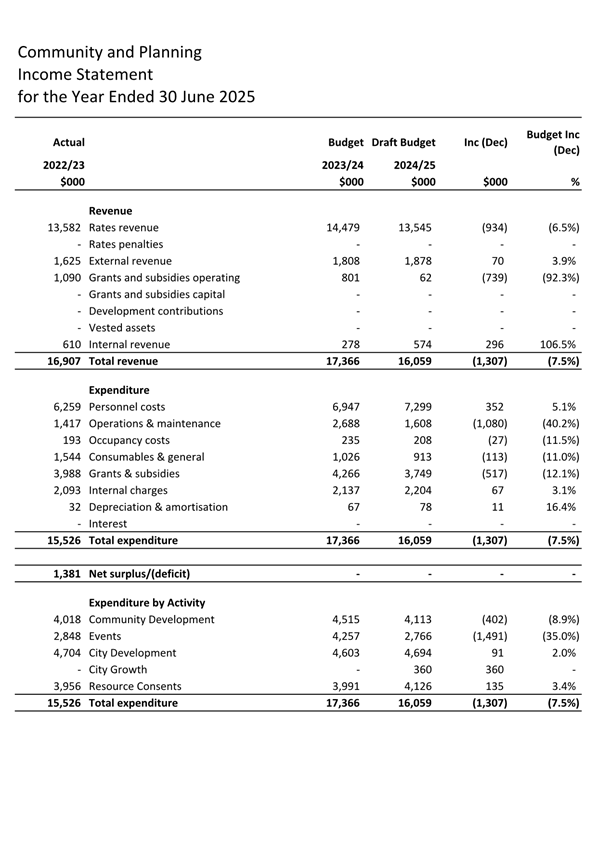
|

|
Council
12 March 2024
|
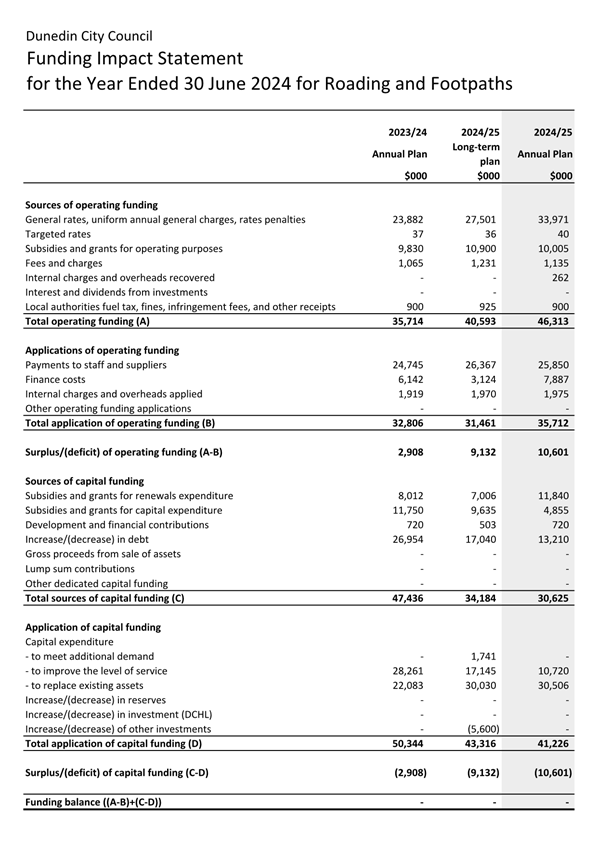
|

|
Council
12 March 2024
|
Regulatory Services - Operating Budget 2024/25
Department: Customer and Regulatory and Finance
EXECUTIVE SUMMARY
1 This
report provides an overview of the operating expenditure budgets for the Annual
Plan 2024/25 for the Regulatory Services Group, as shown at Attachment A.
A draft funding impact statement is shown at Attachment B. The following
activities are provided for:
· Animal
services
· Building
services
· Environmental
health and alcohol licensing
· Parking
operations
· Parking
services (enforcement)
2 A
schedule of proposed fees and charges for the 2024/25 year is also presented at
Attachment C.
RECOMMENDATIONS
That the Council:
a) Adopts for the
purposes of developing the Annual Plan 2024/25 and consulting with the
community:
i) The draft 2024/25 operating budget for the Regulatory
Services Group as shown/amended at Attachment A.
ii) The draft 2024/25 fees and charges schedules for the
Regulatory Services Group as shown/amended at Attachment C.
operating budgets
Revenue
External Revenue
3 External
revenue has increased by $499k, 2.5% due to fee increases to recover increased
costs of processing consents and licenses.
4 A
review of fees and charges was undertaken, and fees amended to reflect the cost
of providing regulatory services. Increases in revenue are made up of:
· Animal Services
$68k increased revenue is due to proposed 5 % fee increase in registration fee
to cover increased operational costs.
· Building Services
revenue increase of $281k with the proposed increase in hourly charges which
are benchmarked against similar sized Councils to cover the increased cost of
consent processing and inspection costs.
· Environmental
Health revenue increase of $92k from the proposed 20% fee increase.
· Alcohol Licensing
$20k revenue increase was based on actual number of licenses issued.
· Parking
Operations revenue is budgeted to reduce by $36k. The on-street parking
revenue budget has reduced by $547k, to reflect lower occupancy due to the
Central City upgrade and other works around the city. Offsetting this is
an increase in revenue of $486k from parking buildings and off-street metered
parking.
Expenditure
Personnel costs
5 Personnel
costs have increased by $216k, 2.1%. The budget provides for a general
salary increase, but this has been partially offset by a reduction in staff
numbers of 2.4 FTEs. Parking Operations and Animal Services have decreased
by 1 FTE each, and Alcohol Licensing has decreased by 0.4 FTE.
Operations and maintenance
6 Operations
and maintenance costs have increased by $124k, 15.9% due to increased Animal Control
afterhours services and increased City Safety costs for the Bus Hub project,
which is run in conjunction with the Otago Regional Council (ORC). DCC
City Safety officers cover the 3pm-7pm weekday timeslot and the later times are
covered by the ORC.
Occupancy costs
7 Occupancy
costs have increased by $138k, 21.3%, reflecting increases in insurance costs and
rates for off-street metered and leased carparks.
Internal
charges
8 Internal
charges have increased by $352k, 5.8% due to increases in Business Information Services,
administration, and property charges.
9 For
parking operations, $140k of the increase reflects the return to full year
rental for the Lower Moray Place carpark building. The carpark, which has been
closed since March 2023 for earthquake strengthening, reopens in April 2024.
FEES AND CHARGES
10 Fees
and charges for activities in the Regulatory Services Group have either
remained the same or have been increased to reflect the actual costs to deliver
services.
· Animal
Services fees largely remained the same with about a third increasing by 2% -
6% to reflect actual costs. Fees for impounding animals other than dogs have
increased by between 54%-150%, being $18-$35, also to reflect actual cost.
· Around
half of the Building Services fees are increasing by between 4%-15% to reflect
increases in actual and projected consent processing and inspections costs.
· Environmental
health fees that are not set by legislation are increasing by between 15-38% to
reflect actual costs.
· Alcohol
licensing fees are set by legislation and are unchanged.
· Parking
Services (enforcement) fees are set by legislation and are unchanged. E-scooter
fees per ride have increased by 2 cents.
· Parking
Operations fees and charges have remained generally the same, with no changes
to the fees and charges for on-street parking or leased parking.
· The
one day Parking Permit charge for areas outside of the Octagon and George
Street (Octagon – Albany Street) has increased by $1.00, 4%.
· Hourly
fees for off-street metered carparks and parking buildings have increased by
$0.50. Most of these have not had a fee increase in the previous 13
years. The proposed changes reflect increased costs, and a move toward
aligning with other parking options available.
· There
are no changes to regulatory fines, licensing and levies as these are set by
legislation.
Signatories
|
Author:
|
Ros MacGill - Manager Compliance Solutions
Carolyn Allan - Chief Financial Officer
|
|
Authoriser:
|
Claire Austin - General Manager Customer and Regulatory
|
Attachments
|
|
Title
|
Page
|
|
⇩a
|
Regulatory Services
Income Statement
|
327
|
|
⇩b
|
Regulatory Services FIS
|
328
|
|
⇩c
|
Draft Fees and Charges
2024/2025 - Regulatory Services
|
329
|
|
⇩d
|
Draft Fees and Charges
2024/2025 - Regulatory Services: Building Services
|
341
|
|
SUMMARY OF CONSIDERATIONS
|
|
Fit with purpose of Local Government
This decision enables democratic local
decision making and action by, and on behalf of communities, and promotes the
social, economic, environmental and cultural well-being of communities in the
present and for the future.
|
|
Fit with strategic framework
|
|
Contributes
|
Detracts
|
Not applicable
|
|
Social Wellbeing Strategy
|
✔
|
☐
|
☐
|
|
Economic Development Strategy
|
✔
|
☐
|
☐
|
|
Environment Strategy
|
✔
|
☐
|
☐
|
|
Arts and Culture Strategy
|
☐
|
☐
|
✔
|
|
3 Waters Strategy
|
✔
|
☐
|
☐
|
|
Spatial Plan
|
✔
|
☐
|
☐
|
|
Integrated Transport Strategy
|
✔
|
☐
|
☐
|
|
Parks and Recreation Strategy
|
✔
|
☐
|
☐
|
|
Other strategic projects/policies/plans
|
✔
|
☐
|
☐
|
The Regulatory Services Group activities primarily
contribute to the objectives and priorities of the above strategies.
|
|
Māori Impact Statement
Council budgets impact broadly across all Dunedin
communities including Māori. The adoption of Te Taki Haruru – Māori
Strategic Framework signals Council’s commitment to mana whenua and to
its obligations under the Treaty of Waitangi. Mana whenua and Māori
will have an opportunity to engage on the Annual Plan 2024/25.
|
|
Sustainability
The Annual Plan 2024/25 is not proposing any changes to
that provided for in the 10 year plan. Major issues and implications
for sustainability are discussed in the Infrastructure Strategy and financial
resilience is discussed in the Financial Strategy of the current 10 year plan
2021-31.
|
|
LTP/Annual Plan / Financial Strategy /Infrastructure
Strategy
This report provides draft budgets for the Regulatory
Services Group for inclusion in the Annual Plan 2024/25.
|
|
Financial considerations
Financial considerations are detailed in the report.
|
|
Significance
The 10 year plan 2021-31 budgets were considered
significant in terms of the Council’s Significance and Engagement
Policy, and were consulted on. Variations to those budgets are
discussed in this report. The draft budgets will be included in the Annual
Plan 2024/25, and will be consulted on.
|
|
Engagement – external
There has been no external engagement in developing the
draft budgets for the Regulatory Services Group.
|
|
Engagement - internal
Staff and managers from across council have been involved
in the development of the draft budgets.
|
|
Risks: Legal / Health and Safety etc.
There are no identified risks.
|
|
Conflict of Interest
There are no known conflicts of interest.
|
|
Community Boards
Community Boards will have an opportunity to present on
the draft 2024/25 Annual Plan.
|
|

|
Council
12 March 2024
|
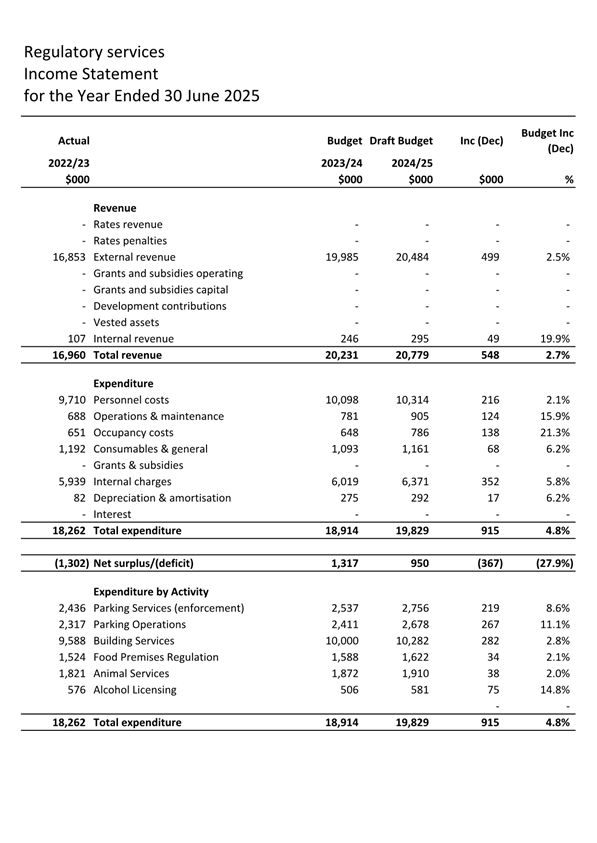
|

|
Council
12 March 2024
|
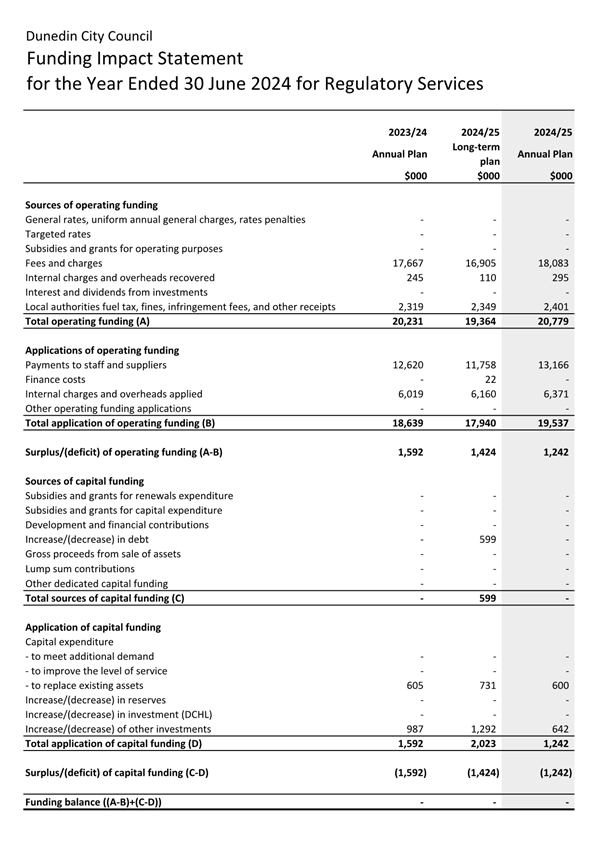
|

|
Council
12 March 2024
|
Revised meeting schedule March - December 2024
Department: Civic
EXECUTIVE SUMMARY
1 The
report seeks the adoption of a revised meeting schedule for 2024, in accordance
with Clause 19(6)(a) of Schedule 7 of the Local Government Act 2002.
2 The
proposed meeting schedule, appended as Attachment A, covers the period from March
2024 through to December 2024.
3 This
follows the decision that Council is progressing an Annual Plan for the 2024/25
year.
RECOMMENDATIONS
That the Council:
a) Approves the revised
meeting schedule as attached to the report.
BACKGROUND
4 The
revised timeline includes the timeframes for the Annual Plan 2024/25 hearings
and deliberations.
5 Once
approved the revised schedule will be published on the DCC website and
calendars updated.
6 As
this is an administrative report only, there are no options or Summary of
Considerations.
NEXT STEPS
7 If
approved, the meeting dates will be entered into diaries and the website
updated.
Signatories
|
Author:
|
Clare Sullivan - Manager Governance
|
|
Authoriser:
|
Leanne Mash - General Manager Business and Community
Engagement
|
Attachments
|
|
Title
|
Page
|
|
⇩a
|
Revised Meeting
Schedule March to December 2024
|
345
|
|

|
Council
12 March 2024
|
Resolution to Exclude the Public
That the Council excludes
the public from the following part of the proceedings of this meeting (pursuant
to the provisions of the Local Government Official Information and Meetings Act
1987) namely:
|
General subject of the matter to be considered
|
Reasons
for passing this resolution in relation to each matter
|
Ground(s) under
section 48(1) for the passing of this resolution
|
Reason for
Confidentiality
|
|
C1
Potential sale
|
S7(2)(b)(ii)
The
withholding of the information is necessary to protect information where the
making available of the information would be likely unreasonably to prejudice
the commercial position of the person who supplied or who is the subject of
the information.
S7(2)(g)
The
withholding of the information is necessary to maintain legal professional
privilege.
S7(2)(h)
The
withholding of the information is necessary to enable the local authority to
carry out, without prejudice or disadvantage, commercial activities.
|
S48(1)(a)
The public conduct of
the part of the meeting would be likely to result in the disclosure of
information for which good reason for withholding exists under section 7.
|
|
This resolution is made in
reliance on Section 48(1)(a) of the Local Government Official Information and
Meetings Act 1987, and the particular interest or interests protected by
Section 6 or Section 7 of that Act, or Section 6 or Section 7 or Section 9 of
the Official Information Act 1982, as the case may require, which would be
prejudiced by the holding of the whole or the relevant part of the proceedings
of the meeting in public are as shown above after each item.
That Greg Anderson, Chris Milne, Tim Loan, Peter Hocking
(Dunedin City Holdings), Sarah Simmons, Michael Garbett (Anderson Lloyd), Kyle
Cameron (Deloitte) and Warren Allen (Chair, Dunedin City Holdings) be permitted
to remain in the meeting for Item C1 – Potential Sale and provide
assistance in the matter to be discussed.





































































